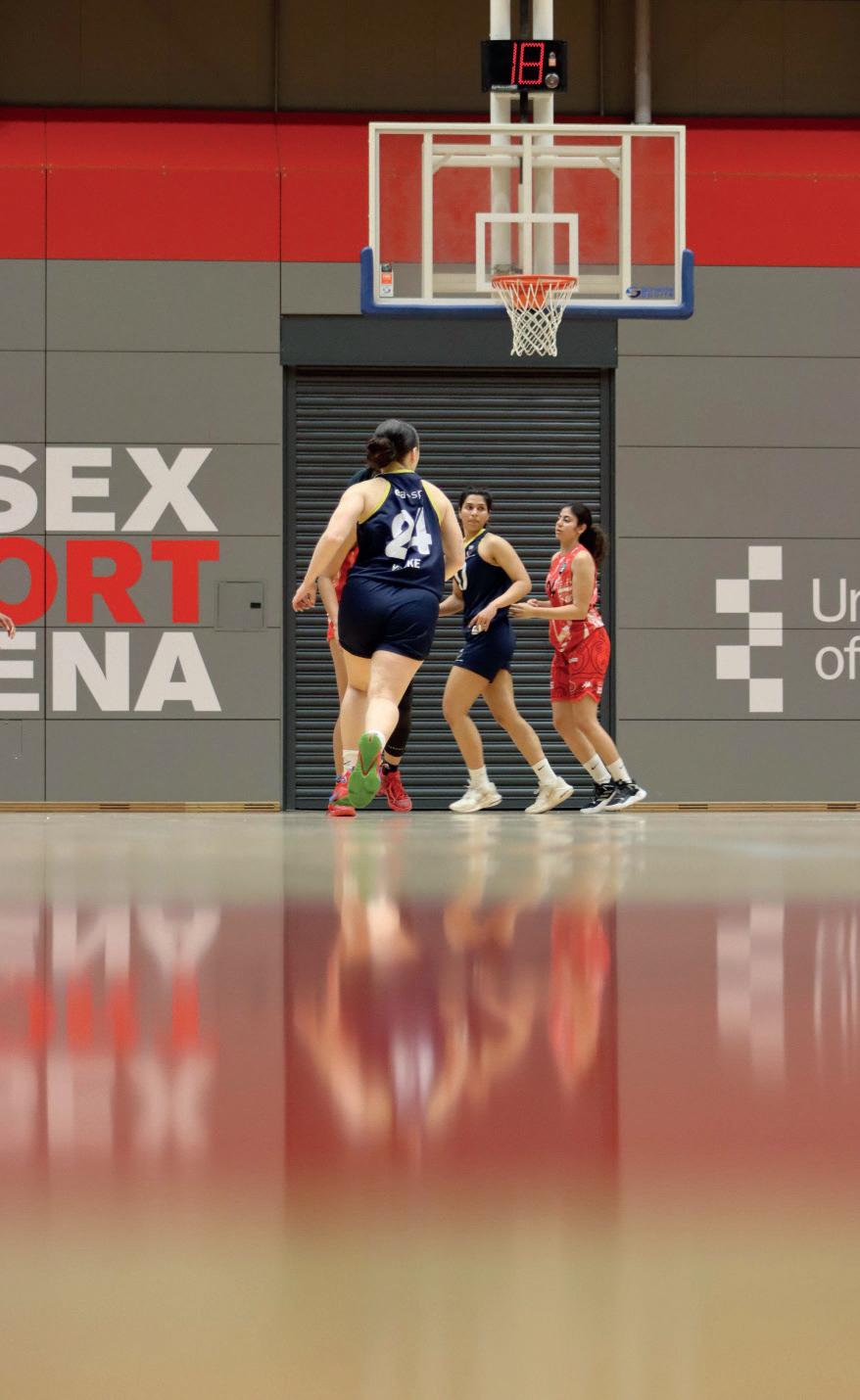


















































































































































In an exclusive interview with Concrete (see Interview p.1819), Vice Chancellor Prof. David Maguire criticised the government's current funding model for UK universities, calling for all political parties to scrap the tuition fee cap and increase student maintenance loans. Maguire— invested as UEA’s permanent VC in April—described how there is “not enough money coming in to fund a world-class educational system” and explained that UEA was “having to reduce” its offering to students and “deliv-
er things in a suboptimal sort of way.” Asked what he would request of any incoming national government, the Vice Chancellor said, ”My number one thing would be an improvement in student maintenance loans and grants”, expanding, “it's pretty clear that students are really struggling to make ends meet on a regular basis”. Referencing the current tuition fee cap, Maguire explained how the current cap of £9250 (set in 2017) is now worth just £6000 in real terms and called for the rate to be an “index linked to inflation” - citing that the 2017 set rate would now be worth £14,000 under this system.
Over 50 UK universities are in serious financial difficulties...
The Vice-Chancellor’s remarks coincide with a stark independent report commissioned by Universities UK, which warns that 40% of English and Northern Irish universities (and 36% of Scottish ones, operating under a different fee system) are on the brink of financial crisis this year. The report by the University and College Union (UCU) further reveals that 58 UK universities (out of a total of 166) are currently devising redundancy programs and additional budget cuts, underscoring the urgency of the situation.
While UEA is currently not planning any major further cutbacks for the upcoming year (in addition to those announced in 2023 following the revelation of a £45million ‘black hole’), Maguire cautions, “I can't guarantee that this won't happen at some point because who knows—the Government could alter its policy, and we’ll have to grapple with the repercussions.”
Derby Day rivals, The University of Essex, recently announced a £ 14 million budget deficit and plans to introduce pay freezes across its payroll. UoE’s Vice Chancellor, Prof Anthony Forster, claims a 38% drop in international postgraduate applications is to blame - a trend seen across the UK against a backdrop of new govern-
ment legislation that makes it harder for international students to live and study in the country.
As the sector continues to grapple with budget constraints, a staggering 96% of UK students have been forced to make cutbacks over the past year, according to a study conducted by the National Union of Students. The study also suggested that a third of these students were left with less than £50 a month to live on after rent and bills, painting a grim picture of the student costof-living crisis across the nation.
I don’t think it’ll surprise anyone to know I’ve been dreading this bit. A lot of this editorial has been wri en in parts over the last few weeks and it’s the final piece I’m finishing for this issue, but it’s been in my head for a lot longer. I’m going to take you on a journey through my amazing four years at Concrete, thanking some of the people that have made them so special.
Firstly I’d like to thank Nerisse, the first editor I wrote for. Such was the nature of the times that we never met in person, but she helped build my confidence through her trust in my writing, and also very helpfully shared my love of Lucy Worsley!
Moving into my second year, I’d like to thank my lovely Online team Rianna and Ray. Thanks too to Freyja, whose advice massively shaped my approach to leadership and Concrete as a society, and Dolly, who I feel I owe so much to – if it wasn’t for her support, encouragement and belief I wouldn’t have gone for a Concrete senior editor role, and it hardly bears thinking about how di erent the last two years would have been.
Briefly touching on last year, I want to thank my first senior team, Libby, Badriya and Louise, who got a whole editorial
dedicated to their greatness – just know it all remains true. A special shoutout to Louise and George too for helping make some of my best Concrete memories on A Week in Concrete and continuing to be so supportive since.
Now we’re up to date and I owe such a massive thank you to our incredible editorial team! Eve and I often say how lucky we were to get you all, and that couldn’t be more true. You have made layup weeks an absolute joy (and occasionally brilliantly mad – shoutout to Molly and Sofia!), you’re all ridiculously talented and I’m so proud to have been your Co-EiC and grateful to have so many of you as friends.
I so wish I had the space to name you all, but I would like to say a specific thank you to Eleanor and Fiona – one of my main aims coming into this role was to transform Features and Home of the Wonderful, and you’ve both achieved that and taken it well beyond my expectations, whilst always buying into my (slightly history-obsessed!) vision for the paper and being so personally supportive. I’d also like to say thank you to our Venue Co-Editors Millie and Tee – Venue never fails to impress me and you should be so proud of what you’ve produced.
I’d also love to thank our radio counterparts, the amazing Livewire commi ee who it’s been a joy to share
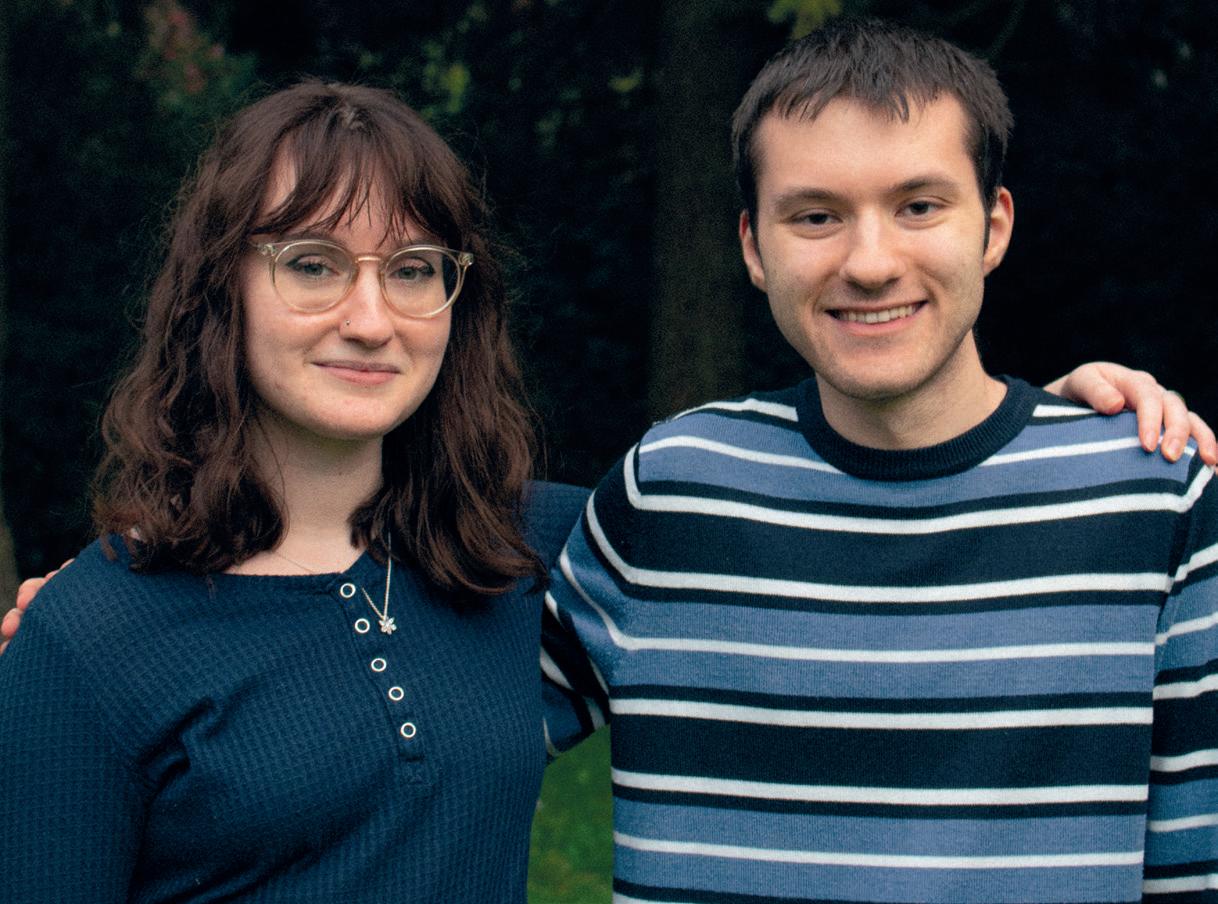
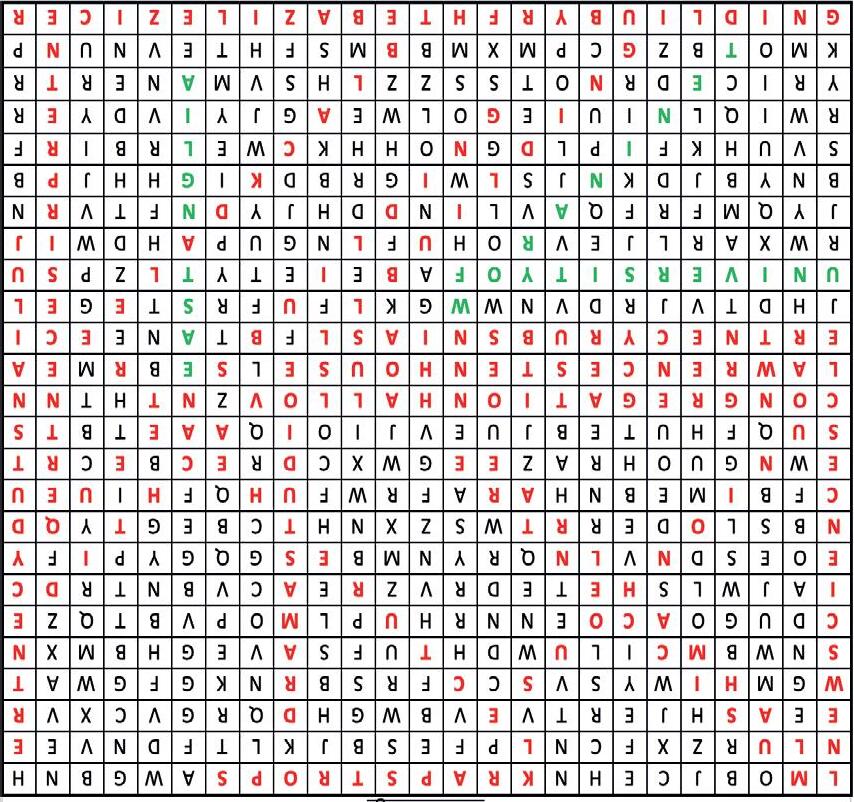
the Media O ce with this year – with particular shoutouts to George who has been a transformative and joyous Station Manager, and Alfie who I met on move-in day almost four years ago, and has been a joy to share the status of ‘person who may as well live in the O ce’ with!
Now Eve, I said to you on the day we got this role that I was glad it was with you and I was so right to be. We may not like the same fonts, but we do both like Olivia Rodrigo so I think that more than makes up for it! You’re such a talented, dedicated, caring and genuinely lovely person and I’ve adored sharing this crazy journey with you. The team loves you and you’ve become such a good friend to me. It has been an honour to support you, and I’m beyond grateful for the support you’ve given me, and so unbelievably proud
of you and everything we’ve achieved together.
So this is it – after two years of writing these I’ve reached the end. This has always been one of my favourite bits of the role and it’s been a joy to talk to you every month. We’ve shared personal highs and lows, anger at the world and massive successes and every word (well, almost!) has been a pleasure to write. I leave Concrete how I always wanted it to be – a place that champions the arts and humanities, delivers a kind and sensitive vision of journalism and nurtures talent, but most importantly a place of genuine friendship.
With all my love
Ma hew x
When I first began considering applying for Editor-in-Chief this time last year, I spent several months feeling a great deal of anxiety. I wasn’t sure if I was capable of leading a whole team, or running an entire newspaper. I had so many ideas I wanted to put into action, but I was also scared of doing it all alone. Little did I know, I didn’t have to, as I was lucky enough to become Matthew’s Co-Editor!
To try and sum up this last year in a short paragraph is nearly impossible. I can’t even begin to thank the incredible, hardworking and creative Concrete and Venue team this year who have supported Matthew and I every bit of the way. When we put this team together, Matthew and I regularly spoke about how we had lucked out. This team is full of some of the most amazing writers, editors, photographers and just general lovely people that I've come across. It is the team who made me feel like Concrete was my home. Every issue, every member of this team from senior writers, to section editors, to photographers, to our contributors, make Concrete whole. It takes every individual person and their effort to make Concrete what it is, and every person in the team plays such a vital role towards the end result.
I've put off writing this editorial until the evening before because I genuinely couldn't quite face it. It is my third and final year at UEA, and I've met friends for life here. I will remember the memories I've made at UEA and in Concrete forever, and I can't imagine a time where I won't look back and smile with fondness thinking of the team. I have been so proud seeing our section editors grow in confidence this year, and even just seeing Concrete being read and consumed on campus by students.
I have learnt so much from those in the team, as well as from interviewing various students and staff from UEA, and pushing myself out of my comfort zone. We have achieved things as a team this year that I never would've anticipated - from Best Regional Publication through the SPAs, to nominations at the STARS 2024. I am beyond grateful to have been part of such a hardworking and talented group of people.
I want to use my last opportunity in an editorial to thank everyone who has picked up a copy of Concrete this year and given it a read. To those who have contributed to Concrete or Venue, or even supported us on social media. You may not think much of it, but in an age where print publications are dying out, you are actively helping to support student journalism and to ensure that the university is always held to account. I also want to thank those in the SU who have supported us this year - your kindness really doesn't go amiss. And of course a mention for our sibling we pretend we hate but we actually love to death - Livewire1350! I am really going to miss tuning in to you all and chatting to you in the Media Office. I'm wishing you all the best of luck next year!
Finally, I want to thank Matthew (even though he's already bored to death of seeing me in the Media Office!) for being the best Co-Editor I could've asked for. We have laughed together, jammed out to Olivia Rodrigo and ABBA, as well as shared hours working tirelessly on Friday evenings to make sure every last page is ready for publication. The friendship I have formed with Matthew is for life, and I have Concrete to thank for that.
And to Fiona and Jamie, our new CoEditors for next year, I wish you guys the best of luck. I know there are loads of great things still yet to come to Concrete, and that next year will be full of many more incredible articles and memories.
So I guess even after all my sarcastic jokes, the rumour was true - UEA, you really are Home of








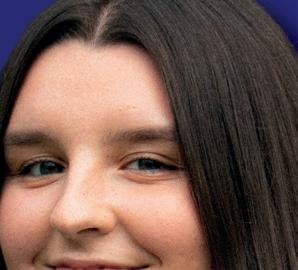

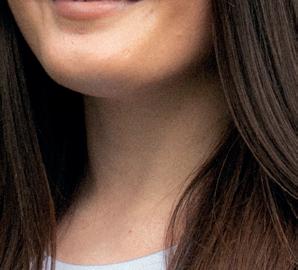


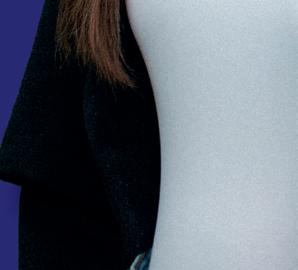
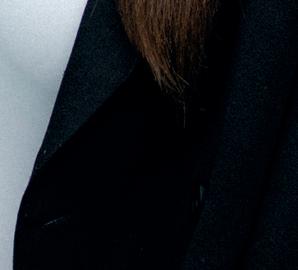








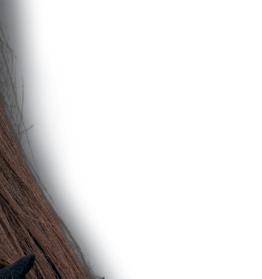



 Eleanor Radford Features Editor
Eleanor Radford Features Editor


Looking back over my time as News Editor, I just want to say a huge thank you to all the brilliant news writers I had this year; Jamie Bryson, Ma hew Stothard, Eve A wood, Eleanor Radford, Sunny Driscoll, Alex Gosling, Libby Hargreaves, Katherine Hutchison, Plum Bristow, Olivia Hennessy and Zoe Johnson. Whether you wrote just one article or several, your contributions have made my role so enjoyable, and I’m extremely grateful for everyone’s hard work. Thank you so much to all of you, and I wish you all the best for the future.
On a personal level, thank you so much to Ma hew and Eve, two of the most dedicated, intelligent and patient people I’ve ever met. You have done incredible jobs as editors; your commitment has been inspiring, and we are all so lucky to have been part of your team. From doing the ‘A week in concrete’ podcast with you both, hysterical laughter in the Media O ce, and our Christmas meal, it’s been an unforge able experience. Best of luck for whatever is next for you both, I have no doubt you have very exciting futures ahead.
Additionally, I really want to thank my incredibly talented senior news writer, Jamie Bryson. Jamie saw something in me from the beginning when he was News Editor in the year 22/23, encouraging me to write my first news story, which examined the possibility of a four-day working week being introduced in the UK. After this, I wrote a few more stories and Jamie and I conducted an interview with local MP Chloe Smith before he inspired me to apply for the role of News Editor, as he was stepping down for the next year. Without his support, belief and friendship, I wouldn’t have applied, so I owe a lot to Jamie.
During my time as News Editor, I have interviewed several MPs, as well as senior sta members at UEA including Professor David Maguire, on a range of national and local issues. I hope that the discussions I have had with these people educated readers on various topics and encouraged more conversations about some di cult issues.
Writing and editing news had its challenges, particularly remaining impartial. As a politics student, it was di cult in the beginning, and anyone who knows me, knows that I'm quite opinionated, and so biting my tongue in some of those interviews became quite a skill! Nevertheless, I’m so glad I got involved with Concrete, as it’s where I have made some of the best memories at UEA. From our trip to Bristol, to the li le things like cha ing in the o ce overlooking the square, I’ve enjoyed it all and would encourage everyone to give writing and/or editing for the paper a go!
The future of Concrete is in safe hands with Jamie and Fiona, good luck to the both of you and I’ll be checking the website each month to have a look at what you’ve been up to.







The UK government has rejected a deal with the EU that could have seen wider mobility for young people, 18- to 30-year-olds, to work and study in the EU.




The UK already has youth mobility scheme visas for young people in 10 countries including: Australia, New Zealand, Canada and South Korea. However, these deals do have constraints on areas such as studying, working, volunteering and training, as well as only lasting up to 2 years.
The deal has emerged after the UK had approached several unnamed EU countries last year to discuss deals on an individual basis. This concerned the European Commission as they said that this could lead to ‘differential treatment’ of EU citizens, and that any deal made should be (EU) bloc-wide to ensure all citizens are ‘treated equally’.
The EU free movement offer would not replicate the exact scheme seen during the UK’s time in the European Union, but it would see a significant reduction in the immigration controls on young people moving between the UK and EU countries. The EU offer would have seen the visa length doubled to 4 years, with no restrictions on the previously mentioned areas.
Since Brexit, the UK has also left schemes such as the EU’s Erasmus student exchange scheme, replacing it with the Turing Scheme.
The proposed deal would also have created opportunities for EU students applying. The European Commission stated in the offer that EU applicants shouldn’t have to pay the annual UK NHS charge, which ranges from £776 to £1,035 depending on age and student status. The offer would have also seen EU students paying the same price for university fees as UK home students, rather than the higher fees they have been paying since Brexit.
The levels of immigration from the EU to the UK have declined since freedom of movement rules ended in
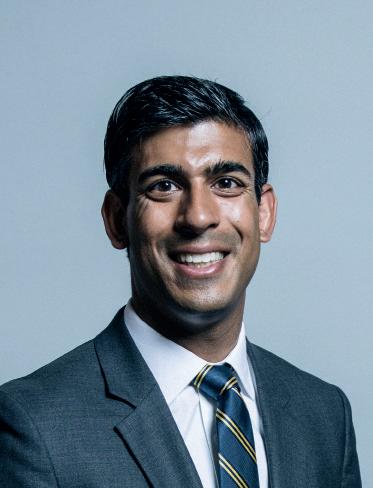
2021, requiring EU citizens to get a visa to live in the UK, study or get a job.
However, No. 10 has rejected this deal on the grounds that ‘We are not introducing an EU-wide youth mobility scheme, free movement within the Eu was ended and there are no plans to reintroduce it.’
The UK government has reiterated that it prefers country-by-country deals that would apply across all twenty-seven member states. This point of view has also been supported by the Labour party, stating that if they were elected at the next general election, there would be ‘no return to the single market, customs union or free movement’.
Some have criticised the government’s move, saying it limits young people’s opportunities for the future.
Ray Kirtley, Chair of the UK Global Learning Association for Schools said ‘What a pity that the timidity of both Labour and the Conservatives regarding anything European prevents them from committing to the proposal from the European Commission for free movement for 18-to-30-year-olds. For many young people, the motivation and confidence to work in the EU came from activity funded by Erasmus+ in schools, youth clubs or universities.
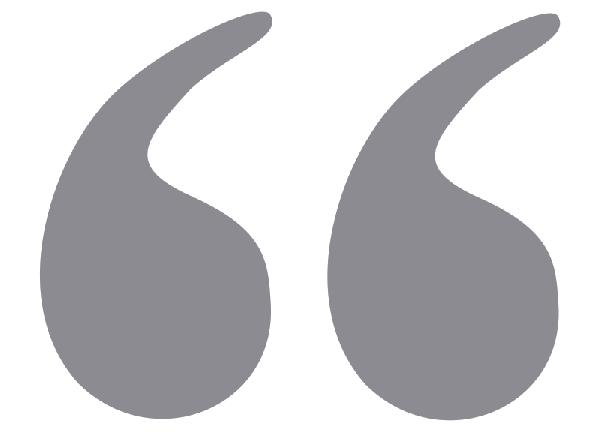
the government's move, saying it limits young people's opportunities for the future."
MI5 has warned UK universities that they are being targeted by foreign states to undermine national security.
The Vice-Chancellors of 24 leading British universities were recently briefed on this threat by General Ken McCallum, MI5 Director and Felicity Oswald, the National Cyber Security Centre chief. No specific foreign state was specified in the briefing, but last year’s report by Parliament’s intelligence and security committee highlighted China as a potential source due to their influence in British academic research.
Among the universities briefed were prestigious institutions such as Oxford, Cambridge and Imperial College, whose leaders were cautioned that their research in sensitive domains could be targeted by foreign entities seeking to gain an edge in cutting-edge technologies to enhance their own economic and military capabilities.
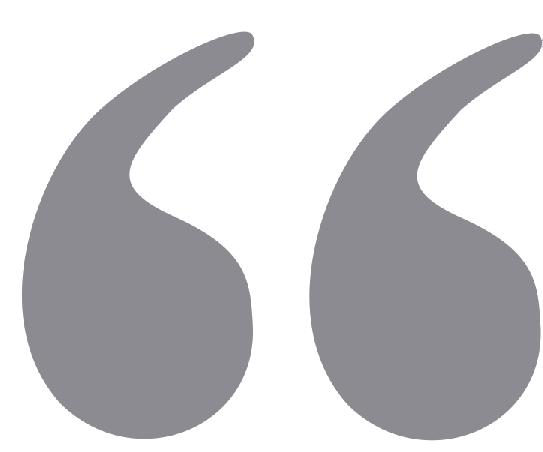



personnel should undergo security clearance processes”
Felicity Oswald, interim chief executive at the National Cyber Security Centre, emphasised the need for enhanced transparency in funding, suggesting that key university personnel should undergo security clearance processes. Additionally, she proposed funding options to bolster research security capabilities within academic institutions – these measures according to Deputy Prime Minister Oliver Dowden, are essential for “balancing evolving threats and protecting the integrity and security of our great institutions”. The Guardian reported that the UK government is considering increased funding to fortify security at sensitive sites, including universities, following a comprehensive review of protections for higher education initiated last year amid mounting concerns over hostile states (notably China), exerting undue influence over the sector.
According to a report by the Buillding Societies Association (BSA), firsttime buyers are facing the toughest conditionsin70yearstobuyahome.The BSA has said that significant changes are required in order to help first-time buyers get onto the property ladder.
In March 2024, a YouGov survey for the Building Societies Association (BSA) revealed that 32% of people reported they want to buy their own home but don’t think they will be able to.
“There is no silver bullet to increasing first-time homebuyers and it won’t be possible to help everyone who wants to become a homeowner in the current high price-to-income housing market. But there are many things that can help to fix the broken housing market. That starts with changes to regulations and support schemes that not only help today’s first-time buyers, but don’t fail future generations.”
indirectly, useful to an enemy”.
The reason as to why China is under the magnifying lens concerning the possible threat targeting British universities is as a result of two men, one of which was a parliamentary researcher,being charged with spying for China after allegedly supplying information which could be ‘useful to an enemy’. Christopher Cash, 29, and Christopher Berry, 32, were arrested in March 2023 after allegedly obtaining, recording and publishing information “for a purpose prejudicial to the safety or interests of the state”” and which could be “directly or indirectly, useful to an enemy”.
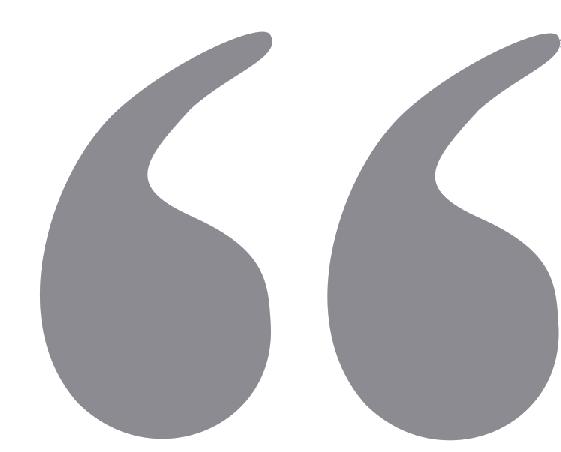
against universities funding"
reliance on overseas

Oliver Dowden cautioned against universities’ reliance on overseas funding, fearing that it could leave them susceptible to manipulation or coercion. Michelle Donelan, the Secretary of State for Science and Technology, underscored the pivotal role of universities in safeguarding national interests, stating: “maintaining the UK’s world-leading reputation as an academic superpower relies on having strong safeguards to protect research from those who wish to do us harm”.
Tim Bradshaw, the chief executive of the Russell Group presenting leading research universities, reassured the public of their commitment to national security. He emphasised the existing collaboration between Russell Group universities, the government, and the intelligence community to shield UK breakthroughs, especially in critical fields like artificial intelligence, vital to the nation’s interests.
As the spectre of foreign espionage looms over British academia, the call for robust measures to safeguard intellectual property and national security grows louder. The concerted efforts of government agencies, university leaders, and industry stakeholders are imperative to thwart the insidious threats and preserve the integrity of British research and innovation.
Neal Hudson, writer of the report, has said that the report suggests home ownership amongst younger people has been in decline over the last 2 decades, whilst Paul Broadhead, head of mortgage and housing policy at the BSA, said: "Becoming a first-time buyer is possibly the most expensive it has been over at least the last 70 years, but a properly functioning housing market is dependent on first-time buyers being able to afford their first home. New thinking and radical changes are needed.
The biggest challenge that first-time buyers are currently faced with is affordability, both affording the cost of buying a home, and the cost of owning a home. The BSA Property Tracker Report shows that the recent interest rate rises have led to affordability of mortgage repayments being cited as the biggest challenge for would-be first-time buyers.
TheBSAhassaidwhichevergovernment comes into power after the upcoming general election should commission a review of the first-time buyer market and use all its powers to help those wanting to buy their first home.

Former BBC executive and ex-UEA student Dame Jenny Abramsky has been chosen as the university’s new Chancellor. She had previously been made an honorary graduate of the university in 2003 and is UEA’s eighth Chancellor, succeeding Dame Karen Jones in the role which has also previously been held by author Dame Rose Tremain and historian Owen Chadwick. The Chancellor acts as UEA’s figurehead, chairing the annual general meeting and conferring degrees at graduation ceremonies.
Dame Abramsky graduated from UEA with a BA in English in 1968, joining the BBC as a programmes operations assistant in the following year. She worked her way up through the corporation, becoming a producer of The World at One and the first female editor of Today, whilst in the late 1990s she became
something of a trailblazer in the organization, launching Radio 5 Live, BBC News 24 (now the News Channel) and the BBC News website, all in the space of four years.
In 1999, she became the Director of BBC Radio, a role in which she oversaw the launch of 1Xtra and 6 Music, before moving to be Director of Audio and Music in 2006. When she left the BBC in 2008, she was on its executive board and the most senior female employee. She has since held a number of senior cultural roles, including Chair of the Heritage Lo ery Fund and of the Trustees of the Royal Academy of Music.
On accepting the role, Dame Abramsky said, “It is a real honour to take on the role of Chancellor at UEA. I have a great many fond memories from my time as a student
at the University, and have kept a close eye on its progress ever since, so to be able to return in this capacity is a source of huge personal pride.
“I am already looking forward to my time on campus meeting sta and students, promoting the University’s work in the wonderful city of Norwich and wider region and, of course, being able to celebrate with our graduates when they collect their degrees in July.”
The Vice-Chancellor Prof David Maguire said: “I couldn’t be more delighted to have Jenny joining UEA as Chancellor. I’m certain that her achievements, as well as the application and dedication she’s applied to her craft throughout her career, will serve as inspiration to our students and sta when she joins our graduation ceremonies in the summer.” =
Voters across England flocked to polling stations on Thursday 2nd of May, as more than 2,600 local council seats were up for grabs alongside 37 police and crime commissioners (PCC), 10 metro Mayors, and 25 London Assembly members.
Amidst a backdrop of historically low turnout, the Conservative Party faced a significant blow, experiencing its worst local results in over 40 years— losing 474 council seats. In contrast, Keir Starmer’s Labour Party made gains, securing 186 additional seats. The Liberal Democrats also saw a rise, gaining 104 seats and now represent England’s second-largest party at council level, with 6 additional seats over the Conservatives.
Success also came for The Green Party of England and Wales, which saw an additional 74 councillors elected, bringing their total to 181. The left-wing environmentalist party gained their first-ever councillors in Newcastle and Redditch, taking seats from both Labour and Conservative candidates.
Locally, the Labour Party has lost overall control of Norwich City Council, losing two seats to the Greens in Wensum and Mile Cross. This marks a distinct turning point in the Greens' gradual rise in popularity across the city and the first time since 2012 that Labour has not had full council control.
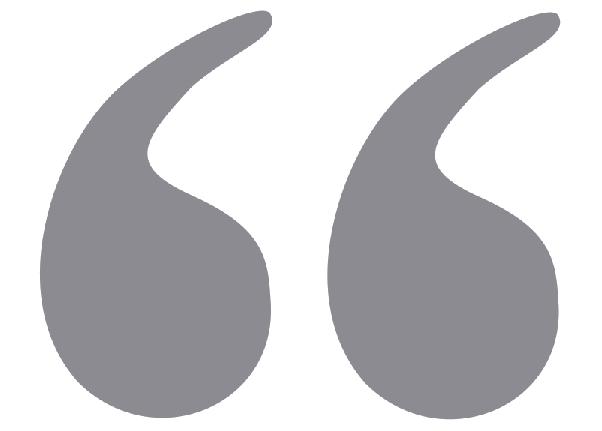
“This
The closest contest in the city was in Town Close ward, where a bitter campaign ensued between Ian Stutely - one of the ex-Labour councillors who became an independent last year - and Labour’s new candidate, Chris Smith.
On the evening of polling day, Norwich City Council’s returning officer passed on allegations of a breach of data protection rules to the Police after Norwich Labour circulated a letter accusing
National (England) results: total number of councillors; gains and losses in 2024.
Mr Stutely of “unacceptable personal behaviour”.
At the time of printing, Norfolk Police have not commented on the matter, but officers are assessing whether or not to launch an official investigation into the claims.
Standing as an independent, Mr Stutely lost his seat by just 49 votes to Labour’s Chris Smith. This year's elections also saw members of Reform UK - a far-right party started by Nigel Farage - stand for
South Norfolk Conservatives lost their slim majority.
Closer to campus, Labour’s Emma Hampton has been reelected to Univeristy Ward with a majority of almost 600.
First elected in 2021, Hampton holds the council’s cabinet position for Climate Change and sits alongside two other Labour councillors in the ward - Matthew FultonMcAlister and Beth Jones
support of so many students, who, by our account, voted for me in their droves”.
Commenting on Norwich Labour, he said, “Both locally and nationally [Labour], is taking young people's views and interests for granted. I will continue to do my utmost to provide us with a voice in the running of our fine city. It's all to play for next year.”
Another UEA student stood as the Conservative candidate for University Ward, coming
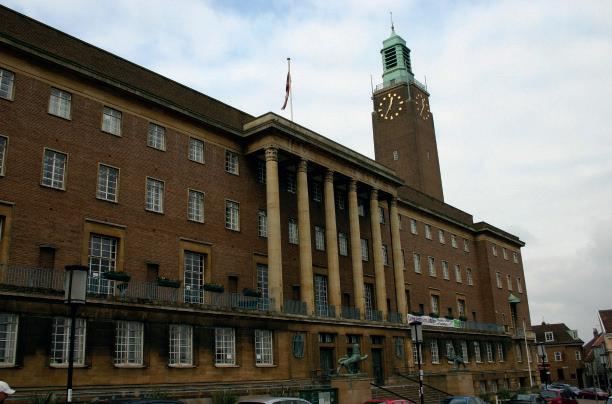
election in Norwich for the first time. Nick TaylorReform’s candidate for Crome ward - said the party aimed to build its profile through the local elections, adding, “Next time, we will be standing in every ward in Norwich”.
In another first for the wider region, Norfolk elected its first-ever Labour Police and Crime Commissioner since the role’s creation in 2012. Sarah Taylor received 52,445 votes ahead of her predecessor, Conservative Giles OrpenSmellie, on 50,567. The Green Party also won a by-election at South Norfolk Councilbeating the Conservatives by just 10 votes, meaning the
- who were last elected in 2022 and 2023, respectively.
The Liberal Democrats came in second, with UEA student James Hawketts receiving 637 votes—just 50 more than the Green Party’s Sean Gough.
Hawketts also stood for the ward in 2023, receiving 512highlighting a 24% increase in his vote share this year.
The third-year PPL student told Concrete, “While I'm disappointed not to win, this result cements the Lib Dems as the main opposition in University Ward. I'm especially pleased to have received the
in fourth place. Cody Butlera first-year PPL student, told Concrete, “University ward has consistently provided a crucial platform for student engagement, emphasising the importance of young people remaining involved in local politics regardless of their political leanings”.
Asked about his experience of the election process, Butler remarked “I'm grateful to have been part of this engagement. Despite not winning, my overall experience of the election was highly positive. It provided a valuable platform to address key issues, such as affordable housing, combatting hate
crimes, and advocating for the return of a new pharmacy” and concluding, “I remain committed to continuing these efforts in the coming months.”
“University ward has consistenly provided a crucial platform for student engagement"
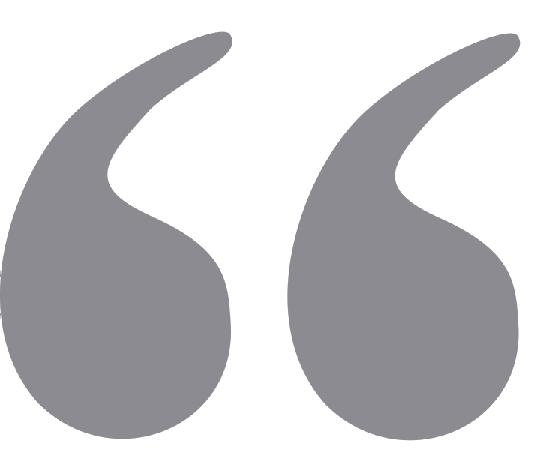
The ward received one of the lowest turnouts in the city, with just 27.75% of the eligible population choosing to cast their vote on polling day. With a three-year term cycle in place for local council seats,
Labour’s Matthew FultonMcAlister's current seat will be up for election in May 2025.
Councillor Hampton and Norwich Labour were contacted for comment but did not respond.
Norwich City Council
New make-up (number of councillors)
Labour - 19 Green - 15
Lib Dem - 3
Independents - 2
20 seats needed by one party to hold control
You can view the full results of the Norwich City Council elections by visiting norwich.gov.uk
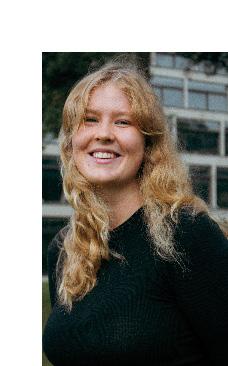
Looking back on my time at Concrete, the first person I should thank is my friend Rosie who edited the art’s section last year. She encouraged me to write my first article on Norwich frescoes for her and promised me that “I’ll edit it all if it’s really sh** don’t worry”. Since then I’ve written twenty plus articles and somewhat unexpectedly ended up as features editor, it is safe to say I got the bug.
I should also thank Jamie, as my editor for news last year, as well as this year’s Editor-in-Chiefs, Matthew and Eve, for all the support they have given me. It has been a brilliant team to work with.
I have particularly enjoyed getting into some of the longer form and investigative content this year with features. One of the standout moments for me was the archival issue (number 400), where we delved into the newspaper’s history, specifically the 2000s era for me.
Coming into the last issue of my time at Concrete has felt rather funny, just like many other areas of my university life has felt like its flown by a bit too quick. Sometimes as though I’ll wake up in my fresher’s flat, Constable Terrace Flat 1, and typically realise the past three years were a vivid dream all along. Writing this with just over two weeks to my dissertation deadline and three weeks till I leave for Belgium, it feels a strange mix of daunting and incredibly exciting.
This issue, features has an article covering the student elections, as well as a Q and A style interview with Nathan Wyatt. I hope you will enjoy them both.
Perhaps surprisingly, I think I’ll miss the media office a lot! It’s truly the best place, in my opinion, to people watch on campus. Looking down on the square you get a glimpse of what the UEA is. Whether its watching people enjoy the weather, getting their placement offers, or battling each other with fake swords, you truly see it all. There’s always something to chat about, and the background music from Livewire have been good companions to me. (As well as an excellent study spot when the library gets a tad too packed during summative season!)
I hope to see Concrete develop far into the future and am interested to see what Jamie and Fiona will do with the paper next year as the new Editors-in-Chief- congratulations to them! I encourage anyone and everyone to give it a go and see where it takes you!
Through Concrete I got to travel to Glasgow and Bristol, meet and interview a lot of incredible people, and met my boyfriend as well as friends for life. It is truly has been one of the most fulfilling parts of my university experience.
10 out of 10, would recommend to a friend, With all my love, Eleanor x
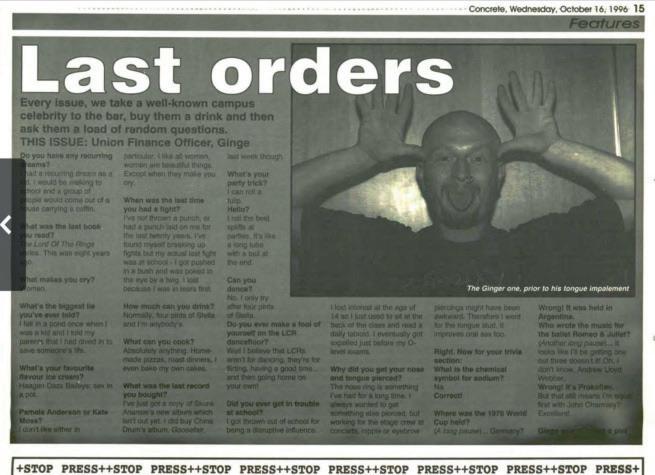
self of the LCR dancefloor then?
Eleanor Radford Eleanor Radford Features EditorFor this article we took inspiration from an October 1996 features interview. The interview was part of a series by the Features team, each issue they would take a well-known campus celebrity to the bar, buy them a drink and then ask them a load of random questions. This piece was originally meant for the 400th issue as an archive piece but had to be pushed back due to the elections running alongside publication.
This issue we took 2023-25 W, C&D, Officer Nathan Wyatt out for a pint, and asked him simlar, but slightly updated questions!
Q: Do you have any recurring dreams?
A: I used to have one when I was younger, that I got on the train near my house, and me and my mum got attacked by wolves. But I haven’t had any recently.
Q: What was the last book you read?
A: ‘My name is why’ by Lemn Sissay. It’s all about a man born in the 1960’s to a Kenyan mother. He ended up in the foster system after being taken away from his mother and given to a white foster family. He’s ended up being the official poet of the 2012 Olympics, and Chancellor of Manchester University. It was really interesting to me, as he was born around the same time as my dad, who was also adopted. It was interesting to see how different the two experiences were based on the situations of the adoptions.
Q: What makes you cry?
A: I don’t cry to often; I’ve probably only cried two times in the last year. Once when my nan died near the elections. Once really recently when I got really drunk at the SU bar, I was upset about how hard parts of my twenties are and my disability.
Q: What’s the biggest lie you’ve ever told?
A: OMG. I have told some whoppers, but nothing I can reveal now otherwise I’ll be in real trouble. I’ve lied on resumes; about jobs I haven’t done… get back to me on that one.
Q: What’s your favourite flavour of ice cream?
A: Umm, I would say cookie dough but I’m allergic to it now. When I go to the cinema and get my Baskin Robbins (my one year £10 treat!), I’ll get strawberry and chocolate. I always enjoy the chocolate and regret the strawberry.
Q: Pamela Anderson or Kate Moss?
A: Ooh… umm, Pamela Anderson!
Q: When was the last time you had a fight?
A: Like a physical fight? Never really… I’ve been hit though. I live quite a calm life and don’t get too angry, despite what it might look like on the surface.
Q: How much can you drink?
A: Not much! Maybe I can have a bit more than I like to admit, I can’t drink beer, so I mainly have spirits. Shall we say five drinks? That’s probably maximum or should be anyway.
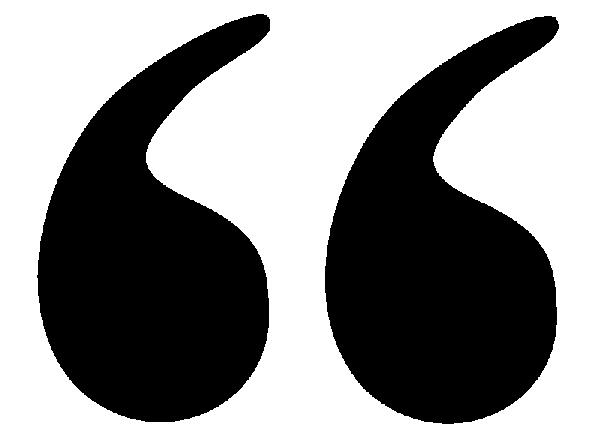
Q: What can you cook?
A: Honestly, I can be a good cook if I want to! But because of my illness my cooking is mortifying, sometimes I cook gammon steaks for my house or roast dinner. Last night, this is mortifying… I had microwaved rice, with lime juice, cut up pineapple, cheese and mayonnaise. It sounds and looks disgusting, but it tasted acceptable.
Q: What’s your top Spotify song of 2023?
A: *pulls out phone* ooh its ‘Little Baby Crush’ by Jordan Ward..
Q: What’s your party trick?
A: Oh god… I can projectile burp. I basically can yell when I burp, I’ll do it when someone’s really annoying me. It can silence a room!
Q: Can you dance?
A: NO. Categorically not, I’ll have a good time but can’t f***ing dance.
Q: Do you ever make a fool of your-
A: YES. I tried really hard with my degree, but I didn’t go to lots of stuff, now that I am an officer I’ve been to my first sports night for example. Absolutely terrible, I like making a prat of myself.
Q: Did you ever get in trouble at school?
A: Yes, a lot, I was on behaviour notice quite a bit. The worst trouble I’ve ever got into though was during my GCSEs. They stopped giving out free water during a heatwave and started selling them for a pound at the canteen. I went apes**t, and put it all over Facebook, I guess it was sort of first kind of student activism. I had to have a meeting with the headteacher and got a proper telling off.
Q: Why did you get a Zigg’s tattoo?
A: I love it! I lived there and had a really good time. Also, UEA has changed so much of my life, and while I don’t believe in ‘gut feeling’, when I came for the open day I knew it was the place for me. Since then I’ve done well in my degree, and now I’m working for students. Plus it’s such an interesting building! F*** yeh, why wouldn’t I want to rep that?!
Right, now it’s time for your trivia!
Q: What’s the chemical symbol for magnesium?
A: Mg?
Q: Yes!
Q: Which year did the first iPhone come out?
A: Ooh… 2000 and… 2007?
Q: Yes!
Q: What is the loudest animal on earth?
A: Beluga?
Q: Wrong, Sperm whale! Well done! Two out of 3 correct!

Jamie Bryson and Sofia Royal News Senior Writer and Sports Editor getting asked pointed questions, and leaving knowing that you convinced them to vote (and maybe even for you)”.
Getting students to vote is somewhat challenging, particularly when it comes to UEA’s annual SU Elections. However, this year’s voting turnout proves that the art of voting is not lost among us students but rather conveys we are more engaged than ever in the politics of our Student Union. This year saw 2537 votes cast, equating to 15.49% of the student body and a 4.5% increase in voting participation from the 2023 elections.
With planning beginning as early as the Christmas break for SU staff, their key focus is on the ‘Nominations Open’ period, raising awareness to as many students as possible about the opportunity to nominate themselves for one of the 19 roles available. A desirable factor to candidates, but unknown to many students, is that Full-time Officer roles (FTO) are paid full-time roles. Once nominations close, the manifestos are due, and candidates’ campaigning begins. At this point on the election timeline, the focal point is on voting, particularly with the leadership elections, which are “a great way to ensure that the union remains student-led.”
This year, as voting closed and we awaited the results, it became apparent voting turnout reached a five-year high. The Activities and Opportunities Officer catergory received a record 1,664 votes, with Undergrduate education receving 1,065 votes. The Campaign and Democracy Officer result nearly matched 2023’s turnout with 1,399 votes and Welfare, Community and Diversity Officer, voting reached a six-year high of 1,377. Following suit was Postgraduate Officer, which saw an increase from last year’s vote of 185 to a promising 555 votes.
As candidates begin to take on their respective roles, Democracy and Representation Coordinators, Magda De Soissons-Page and Beth Plant are responsible for overseeing democratic procedures, administrating a Code of Conduct, training all Student Officers and providing frequent website updates. Oliver Dyson, who takes on the role of Academic Representation Coordinator, oversees the following year with Academic Rep Training, contributing to the Academic Rep Newsletter whilst responsible for the Education Committee, amongst other key roles.
Our incoming officers reflect on the election...
Discussing their overall experiences of the 2024 election campaign, all five incoming officers broadly agreed they felt a deep sense of community and shared purpose throughout the process. Chris Kershaw - incoming Campaign and Democracy Officer - commented, “Meeting and chatting with the other candidates, students, and a few younglooking lecturers really put a spring in my step every day of the campaign”, adding, “The best moments, though, were walking into a classroom to canvass the students,
Further reflecting on this year’s increased campaigning across campus, Nathan Wyatt - re-elected to the role of Welfare, Community and Diversity Officer - told us, “It was incredibly fulfilling to see people engage and see what we’ve been doing this year and be like, I want a bit of that. It was a real morale boost!”. Nathan also described how, in comparison to his first election (2023), he did ”struggle a little bit in that they were so different”, explaining that a lag in disengagement from COVID meant turnout remained very low, further remarking, “The fact that I had eight people standing against me this year made me realise, sh*t - I do actually have to fight for this and show students I’ve still got it; I’ve still got stuff I want to do!”.
While the officer-elects all agreed there was a general boost to positive engagement with students this year, some described issues with members of UEA Security taking down their banners and posters in pre-approved locations on campus. The incoming Activity and Opportunities Officer, Olivia Hunt, told us, “This was quite a big issue. I had my banner taken down on the first day, which was a bit disappointing, and that was in the Square-approved areas”.
A UEA spokesperson said, “We know that the weeks leading up to SU elections are always a popular time for requests for poster and banner displays, and our security and estates teams work with the SU to support this across campus. Part of this support is identifying suitable buildingsandareasoncampusforposters.
“Security staff are briefed in advance of where these sites are, and we are not aware of any posters or banners that were removed from any pre-agreed areas in the Sqaure.”
Promptly circling back to more positive events, however, Olivia said, “I really enjoyed the Q&A, but I was so nervoushonestly, I was backstage, literally shaking, but all of us were looking after each other!”
With voter turnout increasing by 4.5% this year, our new officers unanimously agreed this was a step in the right direction for student democracy. However, turnout remains comparatively low against other union-based elections, with just 15.5% of the student population participating in the March elections. Reflecting on this, the incoming Undergraduate Education Officer, Rebekah TempleFielder, argued, “I think within a union setting, not everyone knows what the officers are really about. They just see their photos in the hive. And if you don’t necessarily know about the system, you might not be as inclined to vote unless somebody comes up to you and tells you to vote” adding, “A higher turnout would be amazing, but I think it’s unrealistic to expect every student on campus to vote.”
Over recent weeks, we’ve had some students tell Concrete how they believe
the SU officer election can become too much of a “popularity contest” and that “not enough focus is given to meaningful policy”. Nathan responded by posing the counter question, “I guess I’d put it to them - what makes people popular? If I were to consider myself popular, I’d like to think it’d be because I’m talking about things that students relate to or because I’m a friendly face on campus. Popularity doesn’t necessarily have to be this huge negative; you’ve just got to be able to convince people that you’re the right person for the job”.
Bhaskar Bukkanahalli Shivanna - incoming Postgraduate Officer- also described how “Policy and the manifesto are very important, and candidates do consider this. Most people asked me questions based on my manifesto, so it doesn’t just depend on the popularity”, adding, “I wasn’t popular, but I still won the election. I believe that was due to students engaging with and asking questions about my manifesto.”
You can find full election results and descriptions of the different officer roles by visiting the UEA SU website and selecting the ‘officers’ tab.
- Student printing allowance
- Continued reform of the academic rep system
- Improvements to timetabling
Olivia Hunt- Activities & Opportunities Officer
- An ‘Open Society Night’
- More finanical transparency for clubs
- Increased health and wellbeing awareness and resources
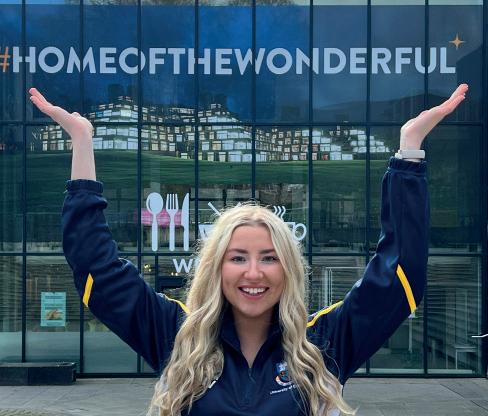
Nathan WyattWelfare, Community & Diversity Officer
- Protecting our venues
- Increased community outreach and engagement
- Action on the cost of food on campus
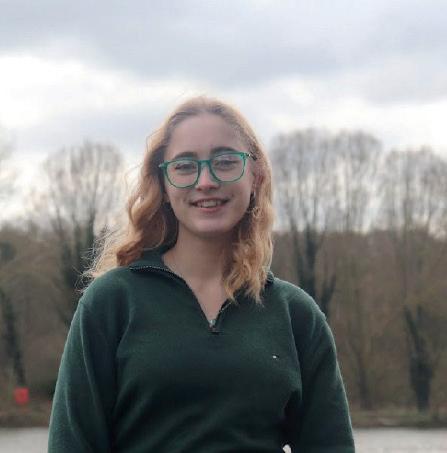
- More formals for PGs
- Increased PG engagement with campus activities
- Better support systems for international students
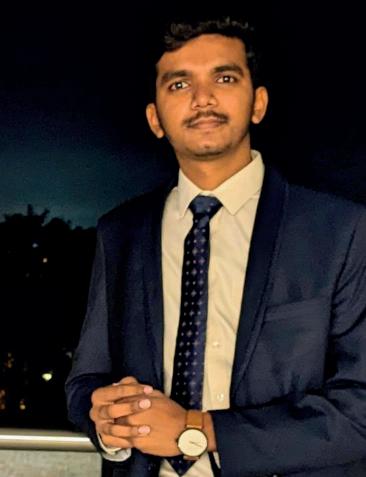
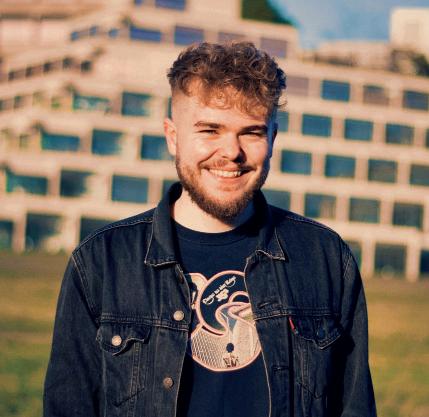
Chris Kershaw, Campaigns & Democracy Officer
- ‘One member - One vote’ at Union Council
- Empower student activists
- Increased engagement with local activist groups
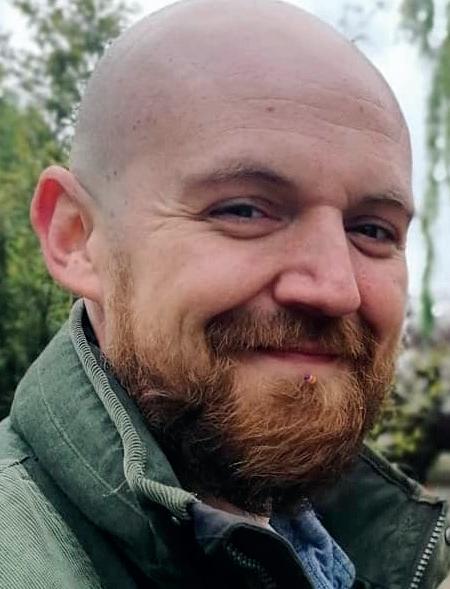















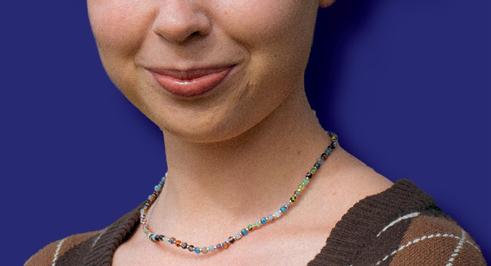

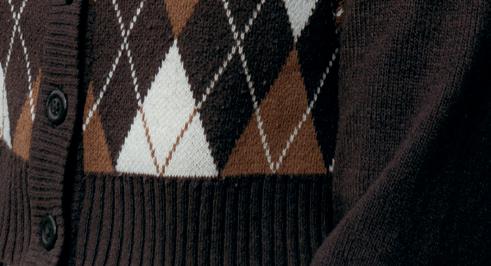
When people ask what section of Concrete I edit for, I’m always met with questions when I reply ‘Home of the Wonderful’. This is completely fair, it is a more ambiguously named section than most and so for a time I would resort to ‘happy UEA news’. However, I do think that this detracts from the gravity of many of the articles and the importance of news on our campus. I truly believe that the writers that have written for Home of the Wonderful this year have been superb in their ability to shine a light on stories that might overwise be taken for granted and in doing so gave a voice to students and staff.
Looking back at Home of the Wonderful this year, I am very proud of all the ground we have covered! Matthew’s introduction of the ‘Concrete Archive’ has been a brilliant addition to the section, making for both insightful and amusing reads each issue. I believe that this has set the tone for the wide range of student and UEA history that can be found within our pages. This has ranged from my own interludes into folklore in articles such as ‘The Haunting of UEA’ and ‘A Very Norwich Valentine’ to Matthew’s ‘A Brief History of UEA: 60 Years of Doing Different’ and ‘Exploring Norfolk’s Landscape History with Dr Sarah Spooner’. Perhaps one of Home of the Wonderful’s greatest feats this year has been the inclusion of ‘The Concrete Story’, a six-page piece covering the entire history of Concrete, from its origins in 1992 and right up to the present day.
Despite our detours into history, Home of the Wonderful has maintained its focus on stories relevant to student life in 2023/2024. This includes articles on wellbeing, trans experience, campus food and Sylvester to mention a few. Linda Vu, Home of the Wonderful’s Senior Writer, has been an incredible asset to many of these articles, with her ‘Movember at UEA- What’s ‘Give a Ruck’ and ‘An International Student Experience’ being standouts. I also have to give mention to Mia’s interview with Concrete Confessions in ‘Sex and Summative Seasons’ and Eve’s ‘Celebrating UEA’s Black Alumni as articles that have defined the section this year.
Writing for Concrete has quickly become a very special part of my time at university. I’ve had the opportunity to get to know a team who are not only exceptionally talented but also exceptionally kind. It can be quite daunting to join a completely new group of people, but I am beyond grateful that I did. Without it I wouldn’t have had the memories of the SPA weekend in Bristol, the chance to go on the radio and the interviews with some really fascinating people. However, sometimes it’s the small things that stick with you and I have to say that some of my favourite memories have been sitting in the media office each month, sunlight pouring in and simply spending hours laying out Home of the Wonderful on InDesign.
It is undeniable that you learn a lot being a Concrete editor, whether that be in terms of editing itself, laying up the articles or working with a completely new group of people. However, what has been perhaps the greatest learning curve is the ability to take confidence in myself.
Concrete can have a knack for pushing you out of your comfort zone, but I’ve become incredibly aware of what a good thing that can be.
It is difficult to express how excited I am to take up the position of CoEditor-In-Chief alongside Jamie next year. It is such a fantastic opportunity and one that I’m incredibly grateful to have received. I’ve loved every minute of the handover so far and I cannot wait for all the planning this summer. The only draw back will be no longer working with Eve and Matthew! Still, I’m convinced that it’ll be a twelve months to remember and I sincerely hope that we’ll be able to do the current team proud. FionaHill
people really need. There were already food poverty services in Norwich, but it was hygiene products that were lacking.’
this since its origin 22 years
Last month, the UEA Enactus Society attended the 2024 Enactus National Expo, for which they had been nominated within the top 5 of over 70 competing universities. It was the first time the society has achieved this since its origin 22 years ago. This May, I was lucky enough to sit down with President Katherine O’Conner and Project Leader Natalie Chabot to discuss not only their society’s success nationally, but its continued efforts to fight hygiene poverty in Norwich.
Although the word ‘Enactus’ might be unfamiliar to some, Katherine informed me of what the society is and how it operates. ‘Enactus UK is an organisation that sets up teams in universities. Every year we compete in a national expo in London to see which university can come up with the most innovative and sustainable social enterprise. At the moment we have one project at UEA, which is called ‘Soapful Hands’. This involves running soap-making workshops on campus and then taking portions of the soap and putting them in the hygiene kits we create’.
It is through this process that the UEA Enactus Society has been able to create hundreds of pieces of soap that they not only sell, but donate in their hygiene kits to YMCA, St Martins and public shower facilities in Norwich. The project itself is non-profit and therefore all money made goes back into expanding ‘Soapful Hands’. Natalie explained to me that ‘the concept for the project came about an idea session. We started off trying to pick our target beneficiaries and we settled on homelessness.’ Katherine added that ‘Enactus UK wants you to look at what
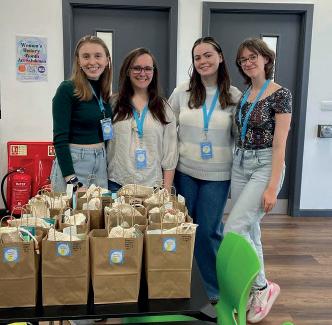
Since then, the Enactus Society has extended the demographic of ‘Soapful Hands’ to all those who are effected by hygiene poverty. Katherine mentioned that ‘YMCA Norfolk was a big part of that, mainly because they work with young mums and young people in general. We realised that it’s not simply that people can’t afford hygiene products,but they might not be able to prioritise getting them.’
The soap itself is made in £5 workshops each Friday in the Warren, with anyone welcome to join and create their own custom soap. Natalie explained that ‘In the workshops, we use a melt and pour soap base and have a variety of scents, colours and moulds that people can choose from.’ The soap is then left to set for a few days before students can collect it, with a portion being donated or sold to fund the project.
After hearing about ‘Soapful Hands’, I was interested to learn about the Enactus competition and how UEA competed with fellow universities. Katherine informed me that ‘I loved the competition, I had so much adrenaline all day! It started with us all meeting up in the morning and then we went over the briefings. Afterwards, we had a flag parade followed by the tech checks for our presentation.’ Natalie continued ‘I was on the presenting team. There were definitely some nerves as there were about 130 judges and 1000 people in total! It was the first time a lot of us had done public speaking, so that was a great experience.’ Katherine also mentioned how pleased she was with the feedback they received, stating that ‘The judges commented on how much they liked how localised it was. It gets too hypothetical when you make it too big at this stage, so it was very much making the impact now and that’s just what we did.’
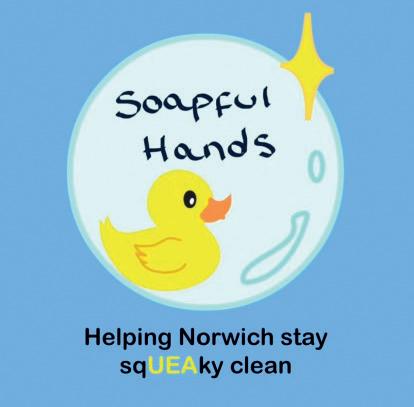
Their success is even more notable when you factor in their competitors, many of which are ‘legacy teams’ who have been running their projects for 10+ years, compared to ‘Soapful Hand’s’ stretch of six months. It was with this goal for longevity that Natalie affirmed that ‘The whole point of this project is growth. This year started off with 3 people and now we have 28! If people join, there’s always that opportunity for input!’ With their position in the top 5 securing them an additional grant of £1000 (on top of their £200 winnings in a ‘Regional Impact Accelerator’ last November) they both assured me that UEA Enactus is ready to expand.
It was Katherine and Natalie’s open -minded and passion attitude that truly shone throughout our conversation and I was curious as to why Enactus had stood out to them when deciding to join the society. Natalie replied ‘I’ve always wanted to make a difference in my life, but it’s hard to pinpoint where. It’s nice to know that I’m doing some good in my free time.’ Katherine mentioned that she had taken an alternative route to joining. ‘It started with my helping with marketing, but then I just got more invested in it. At first, it was something I was a bit intimidated by as I study psychology, not business! Still, when everyone comes together it becomes a lot easier.’ Natalie added, ‘If you want to try business, it’s a great way to give things a go. You’re not using your own money and the support of the Enactus Team is something really special.’
The Enactus Society will run their last soap-making workshops this academic year on the 17th and 24th of May at 12:3013:30 in the Warren. Tickets are bookable on the SU website!
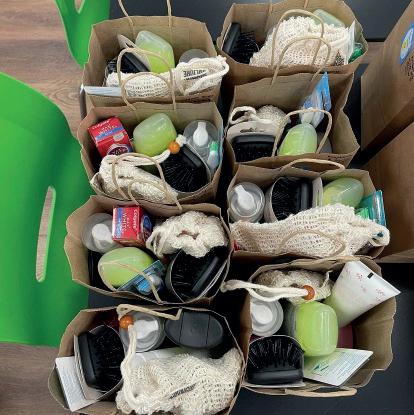
After a couple of days of filling out documents online and hoping I didn’t accidentally mess up my chances of coming to the UK, I submitted my visa documents in July 2022, anxious to hear back from the UK Home Office. In August 2022, I received my passport with my visa in the mail, confirming I was going to be studying at UEA in September 2022!
I remember being so anxious and excited for the journey. I had always dreamed of going to the UK since I was around 10, so receiving my passport with a visa felt surreal. As I’m originally from Southern California, people always ask me, “Why did you choose to come here?” and the answer is always a bit more complicated than simply wanting to pick up and move.
It was a long, hard decision to make. I was going to be leaving my friends and family to go roughly 5000 miles abroad. At first, my parents were hesitant, wanting me to stay in California to be closer to them. Even though I wanted to stay, I also wanted a change of scenery and to be a lot more independent. Still, if I got homesick, my home was not a two hour drive or train journey back and I was going to have to find
a different coping mechanism. My parents eventually let me go, trusting me to not perish the moment I landed in London (even though they were absolutely terrified). Of course, I still get homesick from time to time. The best coping mechanism for homesickness is forcing yourself to do things outside your comfort zone and meeting new people. It’s easier said than done and believe me, I have spent days in my room crying because I missed my friends and family. But it’s easier to cope when you keep yourself occupied.
Being new to the country, I was aware the UK had a national rail system, but had no idea how to use it, because I was used to being driven everywhere my whole life. If anyone’s like me, don’t worry too much, because UEA is good with supporting international students. They offer a pick-up service from Heathrow to the UEA for roughly £40, and advertise UniKitOut to help international students get settled in, which provided students with essentials such as towels and kitchenware. To explore the city, getting to Norwich centre is quite simple: take the 25, 26, or 26A bus lines from the main bus stop on campus and they will go directly into the city centre. There’s so much to see, from the market to the alleyways with cute coffee shops.
For any future international students, take it from me: all you need are two
suitcases with clothes to last you 2-3 weeks because you will accumulate a lot of stuff when coming to university. Just wait until you arrive in Norwich to buy all the things you need for the kitchen and bedroom. TKMaxx, Argos, and Poundland will be your best friends when buying things for your flat (rest in peace Wilko, you will be missed dearly), and don’t miss out on charity shops as well! They have cute, durable kitchenware for reasonable prices!
Having accessible public transport was a culture shock for sure, but what was more of a shock was the lack of sunlight during the autumn and winter seasons. For anyone who comes from a sunny climate make sure you bring your Vitamin D tablets! Luckily, these are easy to come by at Holland & Barrett, in the city centre or online and make sure to take them every day! I fondly remember the time I thought the sun was going to make an appearance after 3 days of some very overcast weather . Very naive.
Despite this massive culture shock, my time here at UEA has been fulfilling. I have met so many wonderful people and there’s always something to do on campus or in the city. It’s definitely hard being away from home so many miles away, but it gets easier as time goes on, especially with British summer coming soon.

Matthew Stothard
Co-Editor-in-ChiefWelcome to my last Concrete Archive feature! I’ve so loved doing these - diving into our amazing archive each issue and exploring the hidden gems it has to offer. For my last exploration, forgive the self-indulgence and join me on a trip down memory lane as we venture back to those bygone days of October 2020, and my first ever contribution to Concrete.
Of course these were the times of Covid, and so that naturally dominated the content. The front page by Deputy Editor Matt Branston explored UEA’s decision to reduce their food delivery cost for students self-isolating on campus from £18 to £12 per day (for three meals), following “intense backlash.” Meanwhile, in his editorial fellow Deputy William Warnes reflected on the new world of online seminars and breakout rooms – the less said about those the better!
It wasn’t all doom and gloom
though, and Venue still provided lots of engaging arts coverage! The first article in Arts reviewed the Wonderglow festival that UEA put on for Freshers, comprised of a series of light displays around campus, including the ‘Gaia’ Earth model in the Sainsbury Centre. In hindsight it maybe wasn’t the most exciting Welcome Week event, but I certainly remember it fondly from a time with limited options.
In Books the top story was a debate asking ‘Is poetry inaccessible?’ with Leia Butler arguing against, writing “it’s the mystery and uncertainty that makes me love poetry so much,” and Tristan Pollitt arguing for, suggesting the form is elitist. Both arguments are well-written, but if you love poetry like I do and decide to dig it out, be prepared to be annoyed by the ‘for’ argument!
Moving to TV and I was struck by the inclusion of a Venue favourite: ‘How Streaming Redefined Television’. In various forms articles about
the competition between streaming and linear broadcasting have dominated the section throughout my time here – I even wrote one myself in 2021. Maybe I’m too optimistic, but for what it’s worth I do think linear is now on slightly better ground than we thought it would be in 2020, albeit still with some huge challenges.
Turning the page, we come to the reason for this article – 200 words from me on why Doctor Who is the best science-fiction show. My central thesis was clear –“Doctor Who is hopeful… In its world, nobody, not even the Doctor, is perfect, but anyone has the capacity to be nice, a message which will surely never lose its value.” It wasn’t particularly long or groundbreaking, but it was my first step into this wonderful world of Concrete that has been such a big part of my life over the last four years. So, if you’re still at UEA next year and have never written for us, why not give it a go – you never know where it might take you…
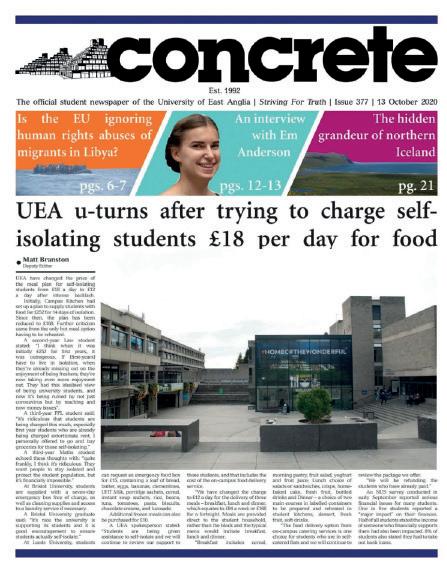
Talking about mental health can often feel particularly perilous. With every experience being so varied, it means that, more often than not, there’s an exception to every claim made. It is this level of nuance that makes public conversations so vital for creating awareness of struggles different to our own. With this in mind, I met with one of the heads of UEA Wellbeing, Jock Downie, and had the privilege of talking with him. It was from a small room in the Wherry Building, on a Friday afternoon in April, that I was able to gather a fascinating insight into student mental health in 2024.
Would you be able to tell me a little bit about your role in the Wellbeing team?
Certainly! So I’m one of the heads of Wellbeing. My particular role is to think about how students access our service. I run the embedded teams, which are a small group of people who are attached to each faculty. They get to know the staff in that faculty and run a mailbox for students reaching out for support. Within that team, we also run an online referral system. So that’s a few questions online that a student will answer so that they don’t have to retell their story. That feels really important to me because it’s such a common experience for people to get bounced around different services. At each of those points, there’s a chance of someone dropping out.
Generally, we find that the form system is where we get most of our students. This academic year alone we’ve had roughly 1700 referrals, which is a huge amount. We aim to respond to everybody within 48 hours so that they know what’s going to happen (although truthfully it’s normally more like 24 hours!).
Would you say that you see a difference in students who reach out early on in their struggles with mental health than those who wait longer?

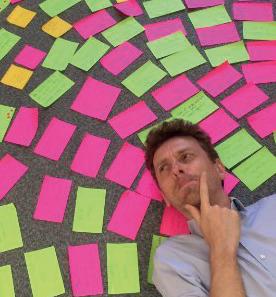
I think the way that students perceive when they contact us is really interesting. Students will sometimes say ‘I’m sorry I’m bothering you, I know that people have got much worse problems’ and then you get the flip of that, which is when students say “I feel really bad, I’ve left it too late’. No one ever feels that it’s 100% the right time to reach out to us.
We’ve purposely designed the service to help with students, whatever stage they’re at. There’s a team of people who work on early intervention, a team for those who already have diagnoses and a team for those students who might be deep in crisis. You help people through their ups and downs and it’s always really rewarding to see them get their qualifications. Ultimately, it means that quality of life really improves for them.
Do you think that students approach their mental health differently today than say, five or ten years ago?
The answer is yes, totally! I started working in this industry twenty-four years ago and I don’t think I ever expected how dramatically things would change. People say about there being a ‘mental health crisis’, but I think we’ve just become better at admitting what we struggle with. Where we need to get to is the next stage of the conversation, which is looking at how we teach people to build themselves up. How we install skills in people so they can acknowledge that they might be having a bad day, but that doesn’t mean that tomorrow will be the same.
I also find it really heartening to see celebrities discussing their mental health and having that conversation, it can make a big difference.
I completely agree! It was actually listening to George Ezra talk about his journey with mental health that made me want to properly seek help with mine.

I love that! I love that every generation has their person that does that for them! I grew up in the 90s and I was really into grunge and Pearl Jam. They were men talking about mental health and it started to speak to me and I think that’s the reason why I do what I do. I’ve worked with so many students who tell me about artists coming forward. It just fills people with confidence to go-‘ I’m not alone’.
When we went into the pandemic, what was so great was the amount of media that was about making sure you have these conversations. It became an expectation that families would talk about this kind of thing and that felt really wonderful to me.
So would you say that COVID had some positive effects on mental health? Or were there a lot of negatives as well?
It did both and I think we’re still to see the after-effects of that. We each had different reasons why it affected us. I mean for some people it was a nice break for their mental health!
As a Wellbeing service, we learnt a lot. One of the biggest takeaways was providing online appointments, which ended up really working. That’s why we continue to do both in-person and online to this day.
What would the differences be in having an online or an in-person session?
It’s about getting the students to the service really. I mean walking through the door can be nerve-wracking. I think giving the students the option to do it online gives them a level of safety. Once you’re in the session, it’s really similar. It’s about being heard and feeling that there’s trust and I think that can happen in both.
Are these sessions mainly talking therapy based or are there a whole range of different treatments?
It comes down to what’s best for the student. We’ve got a talking therapies team, in which we have a whole range of practitioners who use different techniques. However, we also have a wellbeing advisor team, which might focus on more practical stuff, such as helping someone who’s getting support externally. We’ve got people who are qualified social workers, mental health nurses and occupational therapists.
How many are on the team?
Around 40 practitioners, which is a decent amount, but that’s because it should be. It’s a pretty consistent team as well. I mean we do have people who come and move on, but overall we’ve got a large group that really understands the university, which is a huge benefit. It also means that we’re in wait time targets across the service, so students should expect to be able to access an appointment for any aspect of the service within 10 working days (often sooner). For any student experiencing a crisis, this would be much sooner, sometimes on the same day.
In terms of types of students who access the Wellbeing Team, would you say that there are some who are more likely to than others?
We probably have slightly more females than males, which is something that we’re conscious of and trying to work on. We’re continuously looking at who’s not using our service and what we can do to improve that. As a team, we get together every two weeks and have a morning session where we look at equality and diversity.
I think that different groups find accessing help difficult in different ways. We’re aware that Norwich can feel like quite a white community and when we have students of colour who come to the university, they can often feel that there won’t be anyone to understand their experience. To combat this, we try and have conversations with students on how we can improve our services.
We also spend a lot of time looking at this with trans students. We meet many trans students who have just moved away from home and feel as if they can be themselves for the first time. It’s so beneficial that they can be heard.
We use our training sessions to make sure that our staff know about these struggles so that students don’t have to explain everything to
concreteuea.co.uk/category/home-of-the-wonderful/ |
them. For example, they know what transition means or what racial microaggressions are and they can focus instead on how the student feels.
On the website, you mention that group sessions are also available. What are these like to be a part of?
Our therapeutic team look after our group sessions and that’s something that might be suggested when you get in contact with us. For example, we have a bereavement group. We’re aware that for some people a shared experience can be incredibly healing. It’s not just a staff member trying to solve something, it’s encouraging students to look after each other.
I mean, mental health can be so isolating without others who share the same experience.
Absolutely, loneliness is a huge thing for people.
Especially at uni. Do you get many students who contact you about that?
I’m glad you’ve asked that. So many people speak to us about loneliness and think that they’re the only ones experiencing it. There’s just this huge pressure to be able to go out and make friends. Across the board, I’m sure that everybody experiences it, at least in those first two months. What we try and do is get to every first-year student and do a session where we talk about mental health and wellbeing. In that talk, I get up and tell a personal story. Do you mind if I tell it?
Of course you can, that would be brilliant.
I joined the UEA Welfare Team five years ago from Norwich City College, where I’d done about fourteen years. When I started I felt lonely and isolated, but I didn’t do anything about it, I didn’t even talk about it. For about six months my mental health took a real toll. I got to a point when Claire, my boss, sat me down. She looked at me and said ‘You’re not ok’. I went to a GP and felt so embarrassed and so alone. I ended up taking two months off and I got myself healthy again. It was because of that, that I realised that this must be the experience of some students when they come to this uni. I mean, if I’d worked in mental health for twenty years and didn’t see it happening to me, how do you expect a student to understand it?
What was it that you did to recover from this feeling of isolation?
Probably the first thing I did was have conversations with my partner and my boss. I knew that talking about it would help me. I also knew that medication would help get me moving. After that, I took the time off, which is an option for students here as well. I let myself process it, not putting too higher expectations on myself. Some of that was just being miserable for a few weeks and crying on the sofa. After a while I started to think about the things that I had lost that I enjoyed doing, what are the things that make me ‘me’. I went back to playing guitar, got my skateboard out. That was both exercise and interaction.
In a much smaller way, I can really relate to that. When I started at uni I also felt a bit isolated. What I did was walk through the library, simply because I love books and it was a way of reminding myself who I was. When you say ‘what makes me ‘me’- that really resonates.
I really love that!
It was very much the mindset of ‘Actually, I do know who I am’.
That was it. 100%. My journey was really equating myself with my hobbies and it was after this that I could judge whether I wanted to go back.
You mentioned that students can take breaks from education. Is there a time frame for that?
Yes, so you can take a year out from September or you can retake the year once you’ve already started. Most of the time what we want to do is to help you make decisions on how you’re going to look after yourself in that time. Still, if you’re in a really bad place you need to be kind to yourself and set expectations. If you feel like that, it can take a lot of effort to get up and shower every day, but something to build on.
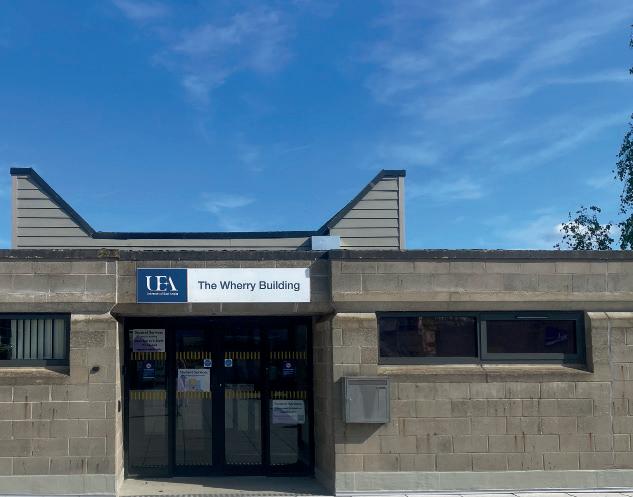
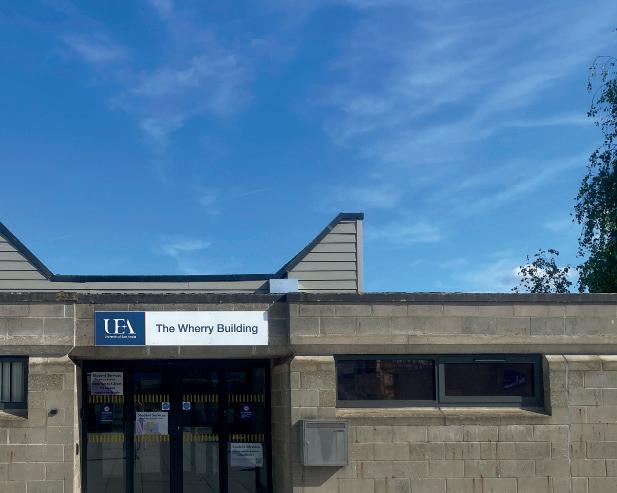
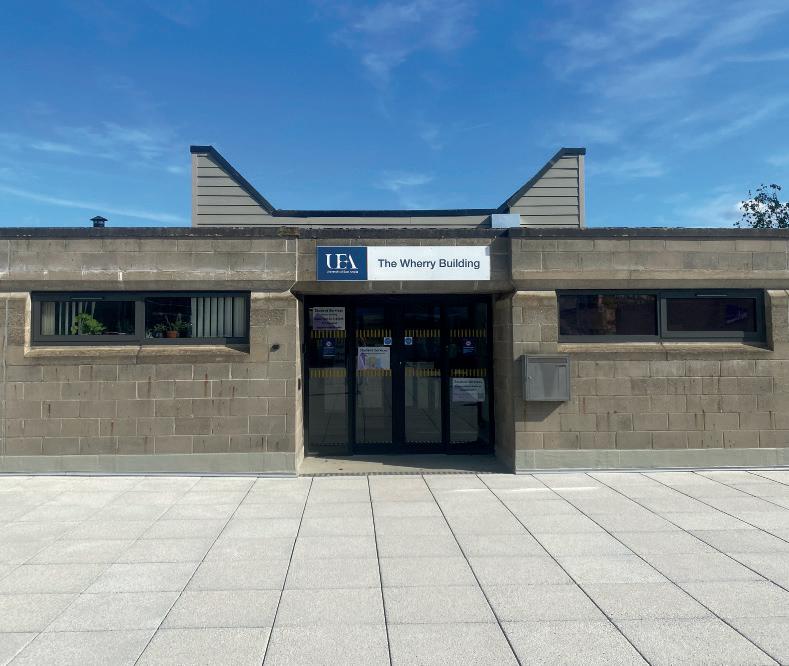
Since we’ve talked about isolation being one major problem, are there any other similar challenges that might directly affect students?
Anxiety is probably the one. There is definitely a rise in people saying ‘I’m anxious’, but there are two different things in that. One is being anxious about an event, the other is having anxiety. I think we can get a bit confused about this. I mean everybody feels anxious about things and that’s ok. Anxiety on the other hand, is there all the time or when you have to do a specific thing. It’s crippling.
It’s often good to just examine what’s going on. A classic thing that people often do is disasterising, which is when your brain tells you the worst-case scenario. It’s something you turn over and over in your head and you can’t quiet that voice. Sometimes just naming what the thought process is can help you deal with it.
As in distancing yourself from the thought?
Absolutely. You can realise that it’s just a part of something going on in you.
So that’s a really nice way of starting to have that conversation about anxiety. There are also some pretty good online resources out there where you don’t even need to speak to a person.
I’ve seen the UEA Wellbeing Podcast. It looked great!
Yeah, it is great! What I really like about the podcast is that you can have it whenever you need it, it’s just that little reminder that you’re not alone, that people are there and are really wanting to help. There’s loads of great stuff on YouTube as well, such as ‘grounding’. You basically focus on each of your senses, such as what you see, hear and smell. It’s about bringing yourself back to the present and moving away from that disastrous thought about the future.
Lastly, do you have any piece of advice you’d like to give students?
If you are going to come and have a session, plan to celebrate it afterwards! That can simply be just getting a chocolate bar or having a night where you do nothing but watch Netflix!
It can feel very hard to come and start the conversation, but it’s an amazing feeling when you do. Come and give it a go, if it doesn’t work for you then it doesn’t work for you and that’s ok.
Home of the Wonderful would like to thank Jock Downie, Claire Pratt and the UEA Wellbeing Team for the time, sensitivity and knowledge they have given to this interview.
Ifyouwouldliketofilloutareferralform,thiscanbefound onthe‘Wellbeing’pageoftheUEAwebsite.Otherwise, they are contactable at studentsupport@uea.ac.uk.
“I think we’ve become better at [...] admitting what we struggle with. Where we need to get to is the next stage of the conversation, which is looking at how we teach people to build themselves up.”
On 24th April, the BBC Radio 4 Quiz show, The 3rd Degree was recorded at UEA. Hosted by comedian and comedy writer Steve Punt, the quiz pits three students and three academics (referred to as ‘dons’) from three different subjects against each other in a series of specialist and general knowledge rounds.
After the show I got to chat to Steve about his visit to UEA (his second for the show which first came in 2011), and he remarked “what a pleasant campus it is.” He told me that he particularly likes the 60s/70s style, and that the trees which were quite small when he was at university have now grown, meaning that “these campuses have really grown into how the architects originally saw them, and it has such a lovely feel to it.”
One of the rounds in The 3rd Degree is called Highbrow-Lowbrow, where contestants are given the choice
between answering either type of question. On which he would opt for, Steve suggested that, “if I was on the dons’ side they actually get more points for lowbrow so I would probably try and risk that.
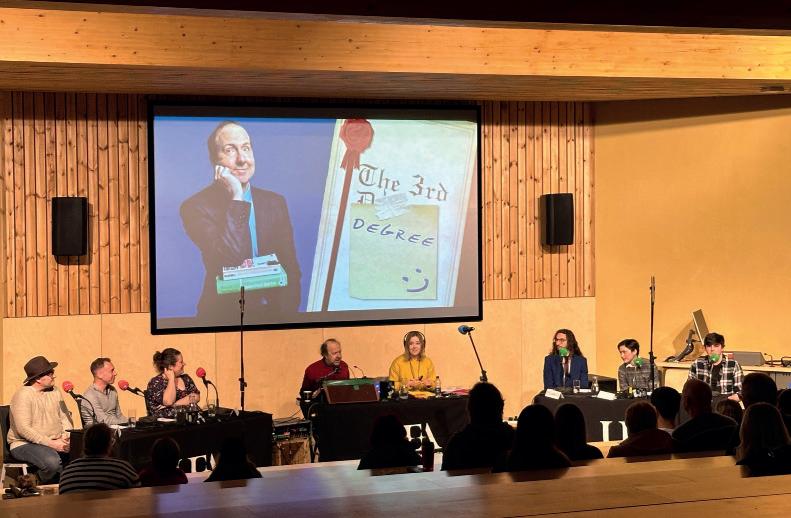
“There are areas of lowbrow that I would feel reasonably good on, but then there are others like soaps that I don’t know much about, so it’s always a risk to go lowbrow. Then again it’s also a risk to go highbrow, because having done English [at Cambridge], it might be a question about a Victorian novel or a piece of metaphysical poetry, in which case I’d be fine because I’ve done that, but you just don’t know what’s coming up.”
Steve said the inclusion of pop culture and contemporary questions in this round is done to, ”deliberately rebalance [the show], because it’s inherently unfair,” but that the contestants are given the choice whether to take them or not. He highlighted how “it’s always great when a university professor is confronted with a question about Coronation Street that just completely stumps them.”
Considering how he would have fared on the show during his own university days, Steve remarked, “Oh I would have been terrible I think! English is basically just about how much you’ve read and I always did a lot of comedy and theatre at college, so I think it’s fair to say I probably hadn’t read the full reading list. I probably would have done quite poorly on my specialist subject.”
Steve has had a long and successful career, and one of his jobs was as a writer (and occasional performer – you may remember him from the ‘I’m A Knight’ song!) on the original 2009-14 run of Horrible Histories,
which last month marked its 15th anniversary. Reflecting on that milestone (apart from it making him feel old!), he told me that “I remember going to the first writer’s meeting where the producer said ‘do not think of this as a children’s show, think of it as a comedy show,’ and we actually watched a bit of Monty Python and the Holy Grail,” to help with the aim of not consciously writing for kids. “The producer was a comedy producer who had previously
done Armstrong and Miller, and most of the writers were comedy writers rather than children’s TV writers. The original cast were also the best young comedy actors in the country at the time, so it was something I think they got exactly right.”
The 3rd Degree will be broadcast on BBC Radio 4 later this year, and all episodes of Horrible Histories are available on BBC iPlayer.

Physics
PhysicsStudent:WilliamPik,MAPhysics
PhysicsDon:DrRobertFerdman,AssociateProfessorin Physics
How did you find the experience of being on the show?
WP: Going on stage, seeing people and knowing you’re going to be on a live broadcast was obviously quite scary at first, but then when I got on there and started answering a few questions, it quickly became quite easy - not necessarily to answer the questions but to be there.
RF: It was fun, and showed that our students are very knowledgeable, particularly on the subjects of their degrees!
How did you find your competition?
WP: It was great - Dr Ferdman has lectured me a few times and is a wonderful person, so it was fun!
RF: Excellent! In fact, I found the topic-specific questions for my physics student counterpart to be more challenging than my own, and he handled them extremely well.
Why did you want to take part?
WP: It was getting closer to the time and it seemed no one from Physics (as quite a small school) had put themselves forward. So I was discussing it with my other Masters’ cohort and thought ‘yeah, why not, it might be fun!’
RF: To be honest, I’ve always wanted to be on a quiz show. I also felt this would be a good showcase of the quality of our students at UEA!
Did you do anything to prepare for the show?
WP: Unfortunately I did nothing because I’ve been a bit busy with my dissertation and so forth, but I did listen to two episodes of The 3rd Degree the night before.
RF: Apart from my usual watching of University Challenge, I didn’t do anything in particular to prepare.
History
HistoryStudent:MarloweNorth,1stYearHistory
HistoryDon:DrGeoffHicks,AssociateProfessorinModern BritishHistory
How did you find the experience of being on the show?
MN: Being on the show was really good fun. It felt relaxed and low-stress, but I’m very competitive so I still wanted to win!
GH: Thoroughly enjoyable, with the exception of the history round; I didn’t want to appear as if I didn’t know about my own subject while on national radio... but, fortunately, it went fine. And it was great to be on a team with colleagues from the Sciences, whom I’d never normally get the chance to meet.
How did you find your competition?
MN: The “dons” knew a lot, but I think the difference between our scores was much smaller than it usually is on the show so I’m pleased with how we students did.
GH: They were very impressive - I thought they played much more confidently than we did. Mind you, they had a much nicer question on the list round!
Why did you want to take part?
MN: I love quizzing. I’m on the committee for Quiz Soc; I spend my Wednesday evenings quizzing and most of the rest of my week writing rounds for the quizzes! I was also intrigued by the format of the show, with the students versus the staff.
GH: I’m always up for a quiz - I’m on a regular pub-quiz team. And I couldn’t say no to doing one on Radio 4!
Did you do anything to prepare for the show?
MN: My weekly quizzing has probably helped hugely, and writing rounds actually involves a lot of research too, so that’s always good for the fun facts!
GH: No - I didn’t think there was much to do except cross my fingers and hope the questions would be ok!
Biological Sciences
BiologicalSciencesStudent:AlessandroPinto,2ndYear PhD
Bio.SciencesDon:DrKellyEdmunds,AssociateProfessor
How did you find the experience of being on the show?
AP: It was a lot of fun, I had a really good time and the energy in the room was quite nice. Thanks a lot to my friends who came out to support me.
KE: It was much more fun and much less terrifying than I was expecting!
How did you find your competition?
AP: Well Kelly’s really knowledgeable and she lectures on a huge range of subjects. I think she is a better birder than me [which helped on one of the questions].
KE: Everyone involved in the show was great and it was a really close contest. The biology student knew answers to some questions that I wouldn’t have got right and it was really good to see everyone getting points on the board. Without giving too much away, it is a high scoring episode.
Why did you want to take part?
AP: Well I just love a good quiz really, it’s a lot of fun.
KE: I enjoy getting involved in public engagement and have done several events around that but this was something unlike anything I’d done before and I thought it sounded fun and it was!
Did you do anything to prepare for the show?
AP: I went to the pub quiz the night before the recording actually - we came fourth though so maybe not the best practice!
KE: I listened to a few episodes from the latest series and was reassured when I knew some of the answers! I also had my husband and family ask me random questions but thankfully Nobel prize winners didn’t come up during the show as that wasn’t a topic I knew well!
On Friday 22nd March, the Student Union hosted Trans Pride Day in the Hive, where students had the opportunity to visit a range of LGBTQ+ friendly stalls, as well as talks from Norfolk LGBT+ Project on intersectionality, and self defence classes from the MMA Society. This was organised by Ethical Issues Officer Alice Bethell, and built upon an idea originally brought to Union Council last year by Erin Whitby, former SU LGBTQ+ Trans and Non-Binary Officer, and former PrideSoc Vice-President. The idea was to establish an annual event at UEA to celebrate transgender students and to offer support and community in the midst of a continuously difficult socio-political climate.
Speaking to Alice Bethell, she described how last year, Erin Whitby had suggested organising an event related to Trans Pride. ‘I reached out to her and asked, “are you okay with me putting this forward as a motion at Union Council and trying to pull something together?”’, to which Erin was more than supportive. Alice reiterated that though the event was suggested around a year ago, ‘regrettably, [the government’s treatment of trans people] has not gotten any better. Doing stuff like this is more pertinent than ever, but I’m grateful that UEA has helped me[...] especially the people involved in the SU’, who she described as helping create a ‘safe space’ for trans students.
Fen Llewelyn, the SU’s Part-time LGBTQ+ Officer, also described to me how the event came about in an effort ‘to cover up some transphobic stickers in the [Hive] bathrooms’. As someone who makes stickers, he was more than happy to help Alice’s cause by creating stickers for the event which would celebrate transgender people, as well as the rest of the LGBTQ+ community. I picked up a sticker myself from their stall which featured a mug full of hot chocolate with the phrase, ‘Trans Rights’, but this was amongst a whole host of handmade stickers with different flags to represent a number of sexualities and identities. It reminded me how important these shows of representation can be to students coming to terms with their identity or seeking community.
The transphobic stickers which Fen described to me as having been ‘plastered all around the [Hive] stalls’ were ‘anti-trans, anti non-binary stickers’, which Alice was able to get funding for through the SU to cover over. I questioned who would want to distribute any discriminatory stickers amongst campus, and if the SU had any idea who had been responsible for them, but the consensus was that it was unknown who had spread them around campus.
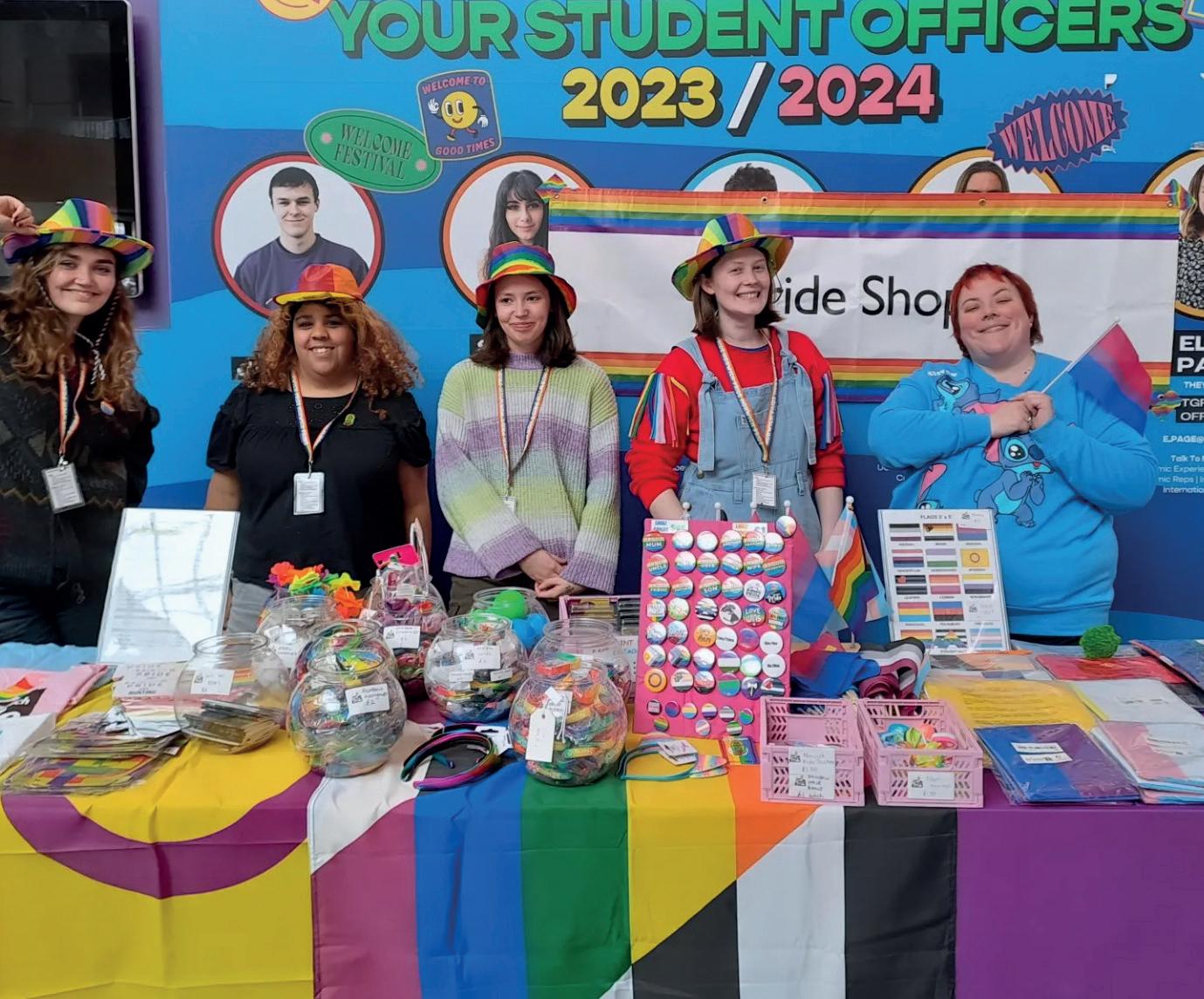
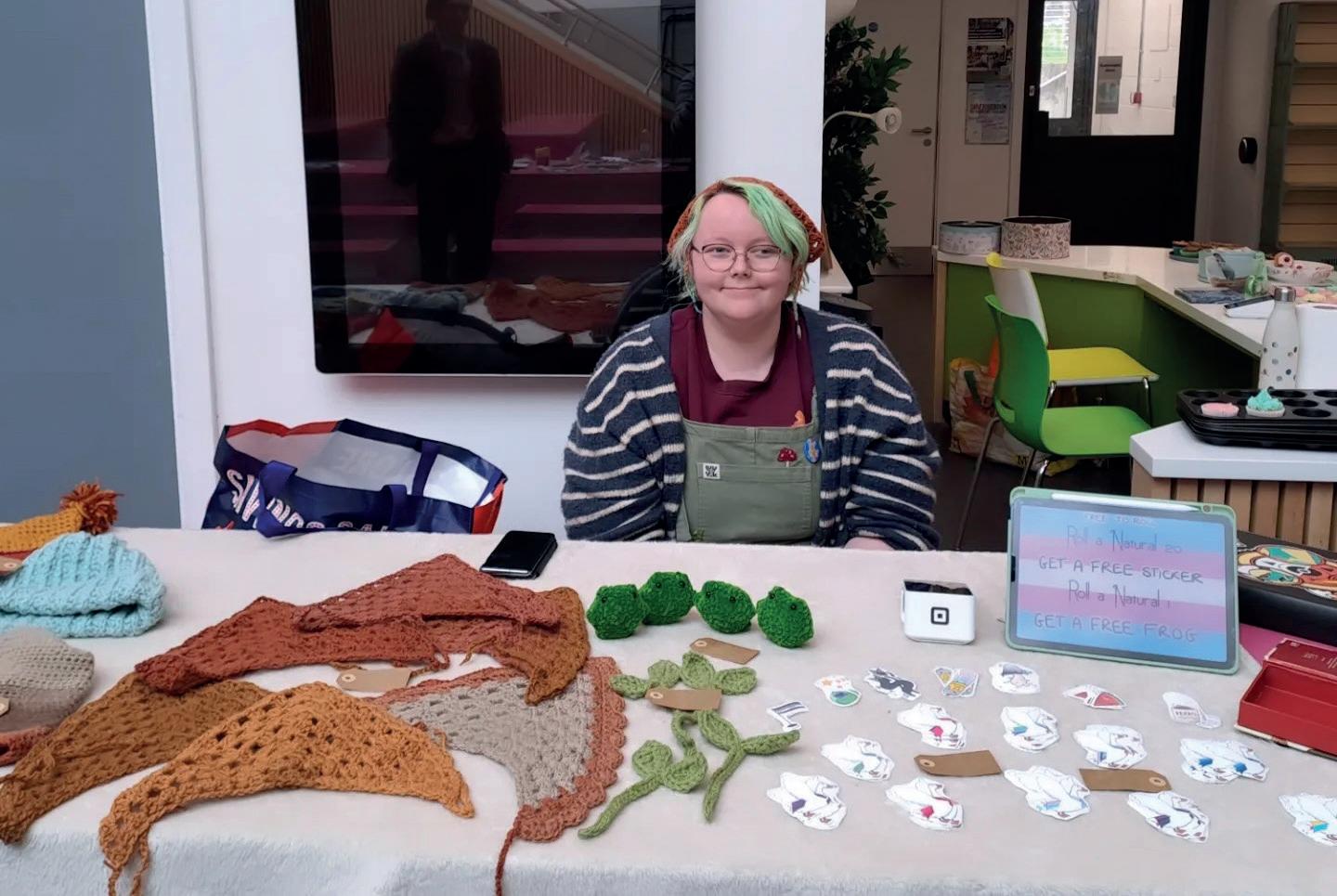
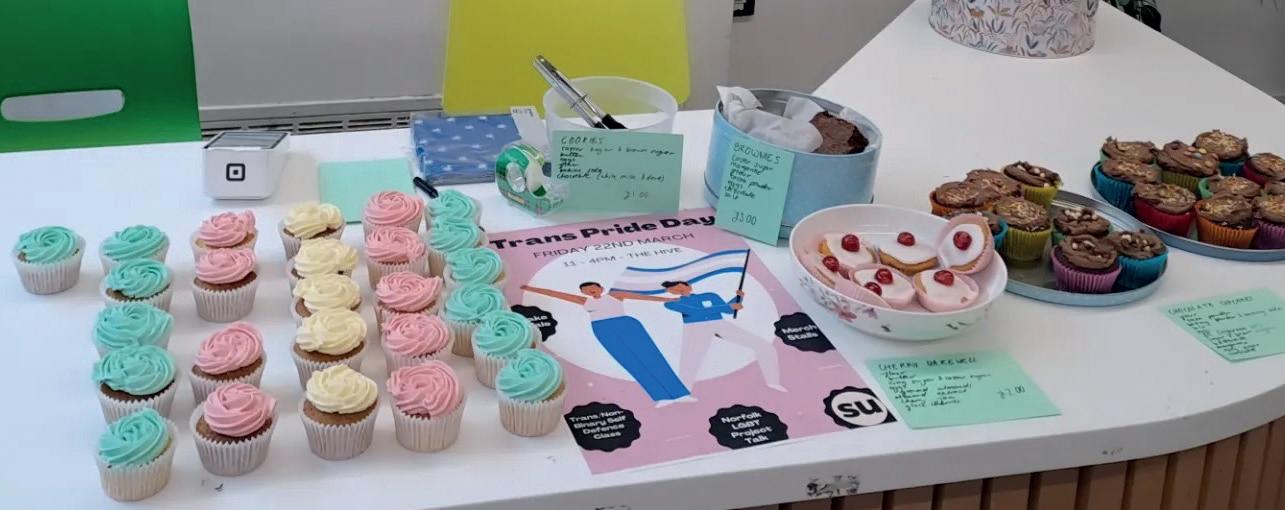
Sportspark as well with leaflets,’ Fen told me. ‘[...] But because the Sportspark is public, we can’t do anything about it[...] because it’s counted as free speech’. He told me about an anti-trans protest that happened near the Sportspark in February, and another one planned in May. ‘PrideSoc are trying to share as much about [the protest] as possible so people are aware. I know some people are planning to do an anti-protest.’
‘There’s been some incidents at the SyedHamza
This issue of ‘free speech’ was something that came up repeatedly in conversations on Trans Pride Day. It made me consider how trans students must feel when their safety and identity is always made into something political, instead of being seen as a human rights issue. Erin Whitby, a trans student and activist, described to me how there ‘seems to be a view from
the Vice-Chancellor sometimes that free speech takes precedence over people’s safety [trans people specifically].’ She reiterated that ‘Whereas free speech is obviously very important, it doesn’t necessarily mean that [people] should be allowed to go and dehumanise [others].’
Concrete reached out to the university for comment, to which Vice-Chancellor Prof David Maguire responded he is “proud of the principled stance the UEA’s Student Union has taken on this important matter and for the leadership they have shown in supporting trans members of our University.”
The Vice-Chancellor reiterated: “We want UEA to be a welcoming and supportive place for all trans people, and as a university we will do our very best to support
trans staff and students. Our priority is to keep all our students and staff safe and to ensure the wellbeing of everyone on our campus. We do not tolerate any bullying or harassment based on gender identity.”
“We also stand strongly for freedom of speech within the law and will do all we can to uphold the core principles and practices of academic freedom and freedom of speech. However, freedom of speech does not take precedence over the rights of trans people; we need to support both simultaneously.”
Fen described to me how differing views on free speech also affected day-to-day teaching, with the level of support trans students felt depending on ‘what school they are in.’ ‘I know [from a survey Fen conducted for the SU] multiple trans [...] students[...] have transferred courses because of how transphobic [they felt] staff are.’ He claimed most schools are supportive, but that trans students are still being affected by negative attitudes.
Where trans students do seem to feel supported is within the SU. Erin holds a great deal of trust in the SU, describing them as ‘here for trans people’. ‘No matter what goes on with the university or on campus with transphobia, the Student’s Union is a safe place, and for years to come, I’m sure it will remain that way’. Alice, an SU officer herself, confirmed this, reiterating that ‘Trans people have definitely got friends in the SU. I like to think we’re very much on their side[...]’.
With Pride at the centre of this day, I was alsokeentoaskthoseinvolvedabouttheir personal experiences and how they’ve been able to find community within Norwich.Fentoldmeabouthow‘inclusive’ theyfoundNorwichincomparisontotheir hometown in the Welsh Valleys. ‘I don’t think I’ve ever felt safer,’ they told me. Erin also backed Norwich as a ‘really accepting city’, despite experiences she’s faced with transphobia on and off campus.
Those involved with the event stressed the importance of joining UEA societies, with Fen promoting GeekSoc for being ‘very queer and neurodivergent’ and ‘helpful in making friends’, and Alice advising new students to ‘Make a beeline for UEA Pride and any hobbies you have’. She also recommended GeekSoc, as well as BurlesqueSoc specifically for Sapphic students.
I also spoke to Amie Marland, Head of Retail at Norwich Pride, whose stall offered students colourful rainbow flags, badges and leaflets on LGBTQ+ mental health. Though not trans, she spoke to me about her gravitation ‘towards the bi flag’, and her experience with coming to termswithhersexualityafteranunhealthy relationshipendedforher.‘Istartedlooking
at myself more,’ she told me, and she described how liberating this period of self reflection was. ‘All of our volunteers give up their time and are committed to supporting Pride[...] being inclusive and inviting everyone in, no matter who they are. We aren’t just here to sell stuff, we’re here for a chat as well. [...] We’ve all had our own experiences and we’re happy to share them[...] to make sure no one goes unheard.’
Holly Everson, BakeSoc’s President, also boasted a stall full of amazing cakes in support of Trans Pride Day. Again, while not trans herself, she spoke as an ally keen to support her ‘friends who are trans’ and to spread awareness for the cause. There were cupcakes decorated with the colours of the Trans Pride flag – a subtle but endearing nod to the community.
In terms of what made Trans Pride Day at UEA so special, Fen argued it was meeting as many people as possible. ‘I’ve seen a couple of mature students come in who are trans, which I think as a trans person, you don’t get used to seeing anyone older than you who’s trans. It’s not common because you often come out in secondary school or university, and most people who are trans are your age. [...] It’s so comforting to see someone who has been living as trans for most of their life. It’s like, you can be an adult and trans, and live.’
Alice also celebrated ‘seeing everyone come together’, and Erin praised the intersectionality talk by Norfolk LGBTQ+ Project. ‘There’s so much going on in a positive way,’ Erin said, ‘It doesn’t feel like something that has just been chucked onto the sidelines[...] it’s an actual focused effort.’
Looking towards the rest of the academic year, the SU are keen to carry on efforts to support the trans community at UEA. Fen emphasised his motivation to work on ‘normalising disclosing pronouns’ within different UEA departments ‘so that people feel safe to do so’. ‘I’ve redone first year[...] and the difference between my “first first” year where everyone introduced themselves with their names and pronouns, to second year where not even staff did it, and I don’t know why that’s happened.’ Alice, the event’s organiser, encouraged any students troubled by the news of the upcoming anti-trans protest in May, to ‘contact the SU, and if you’ve got any counter protest ideas, run them through us’.
If you have experienced or witnessed a hate incident, discrimination, bullying, or sexual violence, please use UEA’s Report and Support tool to report it: https://reportandsupport.uea.ac.uk/
It had been more than a year since Russia’s invasion of Ukraine when I took over the role of Global Editor for UEA’s Concrete newspaper. I had never imagined that as I wrote down my final thoughts over my tenure as Concrete’s Global Editor, seven months would have passed since recently escalated Israeli –Palestinian conflict.
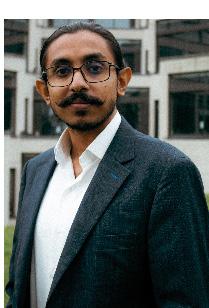
With the growing tensions in other parts of Middle East, specifically Yemen, and recent exchange of attacks between Israel and Iran makes the future of global politics look bleak and unpredictable. In addition to the conflicts, the increase in extremism and racism are of alarming nature and of high concern. Furthermore, the intricate matter involving the killing of Sikh separatist Hardeep Singh Nijjar in Canada is still ongoing. Both BBC and Aljazeera confirmed that Canadian Prime Minister Justin Trudeau has alleged the Indian government may be involved in this case. According to Aljazeera, three Indian nationals have been arrested in Canada in relation to the killing. BBC further confirmed that police have stated that investigations were still ongoing, including into “connections to the government of India”.
In addition to this incident which occurred during the tenure of current Indian Prime Minister Narendra Modi, article 370 of the Indian constitution was also revoked. According to Amnesty International, the revocation of article 370 exacerbated the human rights violations occurring against the people of Jammu and Kashmir. It is also pertinent to note, BBC confirmed that PM Narendra Modi is “eyeing a historic third term” during India’s 2024 general elections. As a result, these issues are not only concerning but reporting on such sensitive matters can also be a slippery slope.
As a result, I would like to thank Co-Editors-in-Chief of Concrete newspaper, Eve Attwood and Matthew Stothard, for providing me with due support and assistance throughout the year. I would especially like to thank Concrete’s News Senior Writer, Jamie Bryson, for guiding me whilst I was working on a deep-dive article on Israeli-Palestinian conflict. I am also grateful to Concrete’s Global Senior Writer, Sankavi Naresh, who contributed to seven out of eight issues of the Concrete newspaper for the Global Section during my time. A special thanks to all the Global writers including Ross Gower, Leo Henry, Kasey Campbell and Marlowe North for providing insightful articles on global politics for which I am highly grateful. As a result, I am proud to confirm that Concrete’s Global team was able to report on issues occurring on various geographical locations of the world including Spain, the United Kingdom, the United States, Iran, Russia, Israel, Palestine, Democratic Republic of the Congo and Ireland.
My tenure as Concrete’s Global Editor is culminating along with Concrete’s 401 (May) issue. Therefore, I am leaving Concrete with a heavy heart but after learning a lot about global politics and journalism for which I am thankful to the entire Concrete team. On a final note, I wish the incoming Global Editor and Global Writers of Concrete newspaper with all the luck. God Speed!
On the 16th of February 2024, Russia’s prison service reported that Alexei Navalny had died at the age of 47. Navalny was a staunch opponent of Vladmir Putin. He accused Putin of trying to kill him and also accused him of imprisoning him on false charges. The Kremlin dismissed allegations and perpetuated Navalny as a Western puppet who was guilty of the charges he was convicted of; which consisted of fraud, contempt of court and extremism. The prison where he was serving his sentence said it was investigating his death.
Alexei Navalny was a significant figure in Russian politics, opposition leader, anti-corruption activist and politician. Born in Butyn, Russia and trained as a lawyer before he got involved in politics. Navalny was the founder of the Anti-Corruption Foundation (FBK) which produced documentaries such as “Putin’s Palace” which alleged corruption at the highest levels of the Russian government. He also accused President Putin and his allies of being autocrats who had led Russia into a devastating war in Ukraine. Navalny was recognised by Amnesty International as a prisoner of conscience (people who have been imprisoned due to their religion, race, political views or sexual orientation) and was awarded the Sakharov Prize for his work in human rights. He organised large scale protests against Putin’s government, advocating for political reforms and an end to corruption.
On the 20th of August 2020, Navalny was poisoned with the Novichok nerve agent and was hospitalised in serious condition. He was induced into a coma at a hospital in Omsk after an emergency landing, Navalny was discharged from the hospital on the 22nd of
September 2020. He accused Vladimir Putin of being responsible for the poisoning however the Kremlin responded to the accusations stating that they were “utterly unfounded” and “insulting.”
According to authorities, Alexei Navalny was reported dead on the 16th of February 2024, after he lost consciousness and died after a walk at the “Polar Wolf’’ Arctic penal colony where he was serving a 30-year sentence. U.S president Joe Biden condemned Russia over Navalny’s death and blamed it on “something Putin and his thugs did.” Navalny’s allies accused Putin of orchestrating his murder and have stated
imprisoned on charges that the West stated were not politically motivated and was poisoned in 2020 with a nerve agent. Reuters was unable to independently verify the Journal report, which quoted sources as saying the finding had been “broadly accepted within the intelligence community and shared by several agencies, including the Central Intelligence Agency, the Office of the Director of National Intelligence, and the State Department’s intelligence unit.”
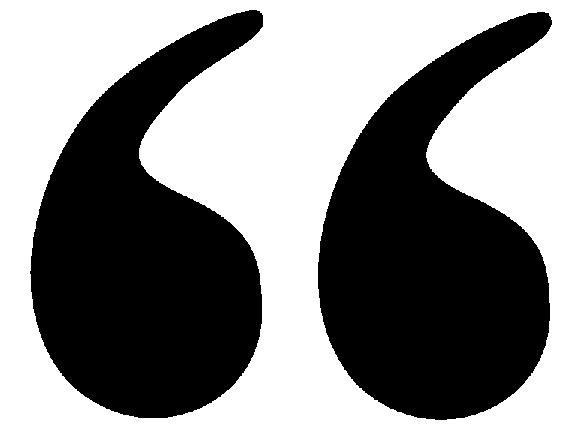
"[Navalny] accused President Putin and his allies of being autocrats who had led Russia into a devastating war"
that they will provide proof to support their allegations.
On the 27th of April 2024, the Wall Street Journal reported that U.S intelligence agencies have ascertained that Russian President, Vladimir Putin, did not order for Alexei Navalny to be killed at an Arctic prison camp in February. Reuters reports that the Kremlin has denied any state involvement.
Putin said Navalny’s death was “sad” and stated that he was ready to hand him over to the West in a prisoner exchange, given that Navalny never returned to Russia. Navalny’s allies confirmed that such talks had been taking place. The Journal reported that Washington had not acquitted Putin of overall responsibility for Navalny’s death due to the fact that he had been targeted by Russian authorities,
The US assessment was based on a wide variety of evidence, including some classified intelligence, as well as an examination of public facts such as the timing of Navalny’s death and how it overshadowed Putin’s re-election in March, according to the paper’s sources.

“Navalny’s allies accused Putin of orchestrating his murder[...]”
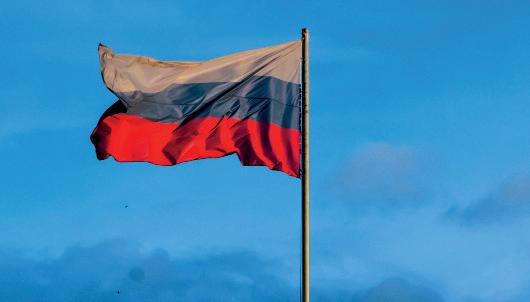
O People of the UK: you are in despair over the state of your country’s politics, and I don’t blame you! The only consolation I can offer is to assure you that Irish politics is just as much of a mess.
Since the establishment in 1922 of what was then the Irish Free State (now Republic of Ireland), only two parties have ever produced the taoiseach (head of government, like your prime minister): Fine Gael (previously Cumann na nGaedheal) and Fianna Fáil. This could potentially make some sort of sense if they could be seen as equivalent to Labour and the Conservatives, or even to Republicans and Democrats in the USA: one party (broadly speaking) on the right and one (broadly speaking) on the left. But Ireland doesn’t have this.
Two parties have dominated our politics for over a century, and they are both centre-right; they are practically identical ideologically. In an exit poll after our 2016 general election, voters were asked to place themselves on a scale from 0 (very left-wing) to 10 (very right-wing). Voters who put Fine Gael (FG) as their first choice averaged 5·84, and those who put Fianna Fáil (FF) as their first choice averaged 5·7. It is pertinent to note that for context, the average Irish voter overall was at 4·98. Furthermore, in 1999 it was found that 39% of Fine Gael members saw no major policy difference between the two parties.
So, if both the political parties are generally the same on economic issues (which they are), and on social issues (which they are), and on issues of Europe (which they are — both comfortably pro-EU), why are these two separate parties? In fact, they used not to be. They both started as splinter groups away from yet another political party, with Cumann na nGaedheal splitting off in 1923 and Fianna Fáil in 1926. The dividing issue was whether to accept the 1921 AngloIrish Treaty. To summarise, the Treaty did many things, amongst them the creation of the border between Northern Ireland and what is now the Republic. It was
a disagreement over whether to accept this treaty and slowly push for more or abstain from the governing of the newly created Irish Free State on the principle that the border was not legitimate and only a full 32-county republic would be accepted. Cumann na nGaedheal really dominated Irish politics in the early years, being the only non-abstentionist major party in existence as there were other parties, but they were not as influential. When it became certain that the glorious fight for Irish independence and unity was not resuming for the foreseeable future, Fianna Fáil abandoned their abstentionism and splintered away, starting to take their seats in the Dáil (Parliament).
Given all of this, you would be forgiven for assuming that Fine Gael and Fianna Fáil are the two biggest parties in the Dáil, but they are not. Of 160 TDs (MPs), 38 belong to Fianna Fáil (FF) and 35 to Fine Gael (FG) — but 37 are from Sinn Féin (SF). If you have heard of any Irish political party, it is probably this one; they are currently the largest political party in Northern Ireland. They were that radical nationalist, abstentionist party that both FF and FG split away from in the ’20s, and they are still abstentionist to this day in the UK. They take their seats in Stormont, but not in Westminster.
It is worth mentioning that this is why the number of MPs needed for a majority changes slightly each time: the number of MPs actually going to Parliament depends on how many seats Sinn Féin get!
The Republic of Ireland is currently run by a three-party coalition — largely as a result of our electoral system, PR-STV (proportional representation by means of the single transferrable vote); you rank your choices, there is not an option for a tactical vote or a safe seat, and the resulting divided parliament accurately represents the divided opinions of the nation. Small parties not only exist but flourish and thrive too. Outright majorities are rare, and coalitions are common — which I personally think is a good thing as it means
a true collaboration between the range of views belonging to the public. But it can get a bit ridiculous, as the 1948 – 1951 government of Ireland was a six-party coalition. The coalition at the moment is of Fianna Fáil, Fine Gael, and the Greens. Prior to 2020, FF and FG refused to go into coalition with each other, and most governments were one of the two, usually propped up by the Labour Party (unrelated to UK Labour) or the Progressive Democrats. But in 2020, the number of Sinn Féin seats were enough to disrupt this. The only sensible coalition was to take two of the biggest three parties — SF, FF, FG — and add one or two smaller parties, and as much as cooperation between Fianna Fáil and Fine Gael can be difficult, nobody will go into coalition with Sinn Féin, for a variety of reasons including ties to the IRA.
We have referendums semifrequently in Ireland, including a divorce one in 1995 which passed at 50·28% “yes” — closer than Brexit (and frequently put down to a storm that stopped many rural, conservative people from getting out and voting)! Two in Mar 2024 failed at 67·69% “no” and 73·93% “no”; this was due to very few people voting except the protest voters who used a “no” vote to show disdain for the government.
Sinn Féin are on the rise on both sides of the border being the largest party in Northern Ireland and comfortably highest in polls in the Republic, there are more Catholics than Protestants in Northern Ireland, and things might be looking up for those in favour of a united Ireland. But the Dáil is only 22·5% women and far-right anti-immigration views are also flaring up in Ireland, so what kind of united Ireland might we be left with if that did happen? And will a border poll ever be called in the first place, with the recent DUPplacating Safeguarding the Union command paper declaring that “the [UK] Government sees no realistic prospect of a border poll leading to a united Ireland”? The requirement for a border poll is in the Good Friday Agreement, but since when do Westminster respect that?
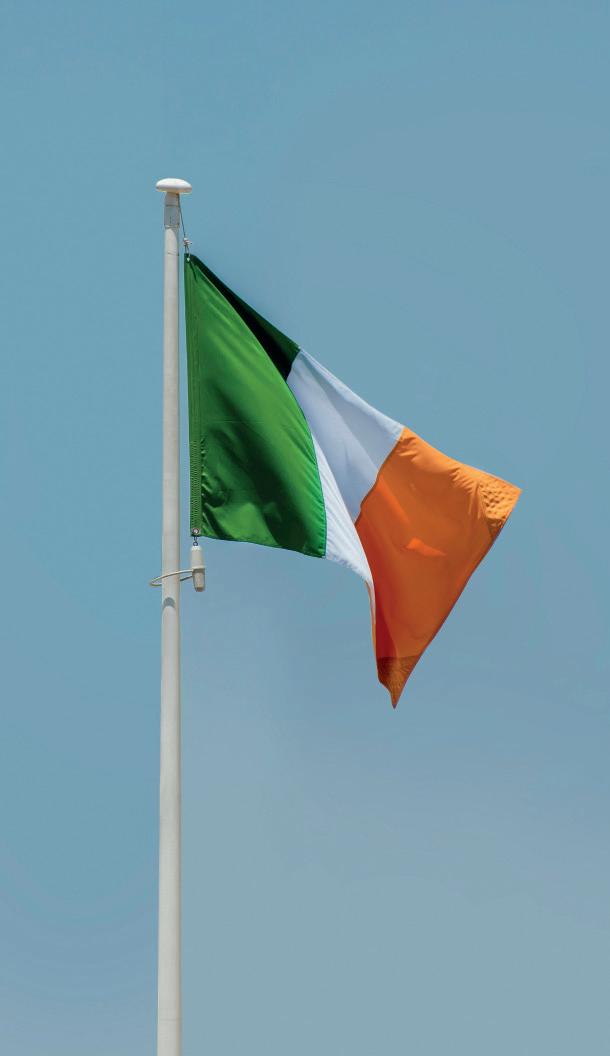
“The requirement for a border poll is in the Good Friday Agreement, but since when do Westminster respect that? “
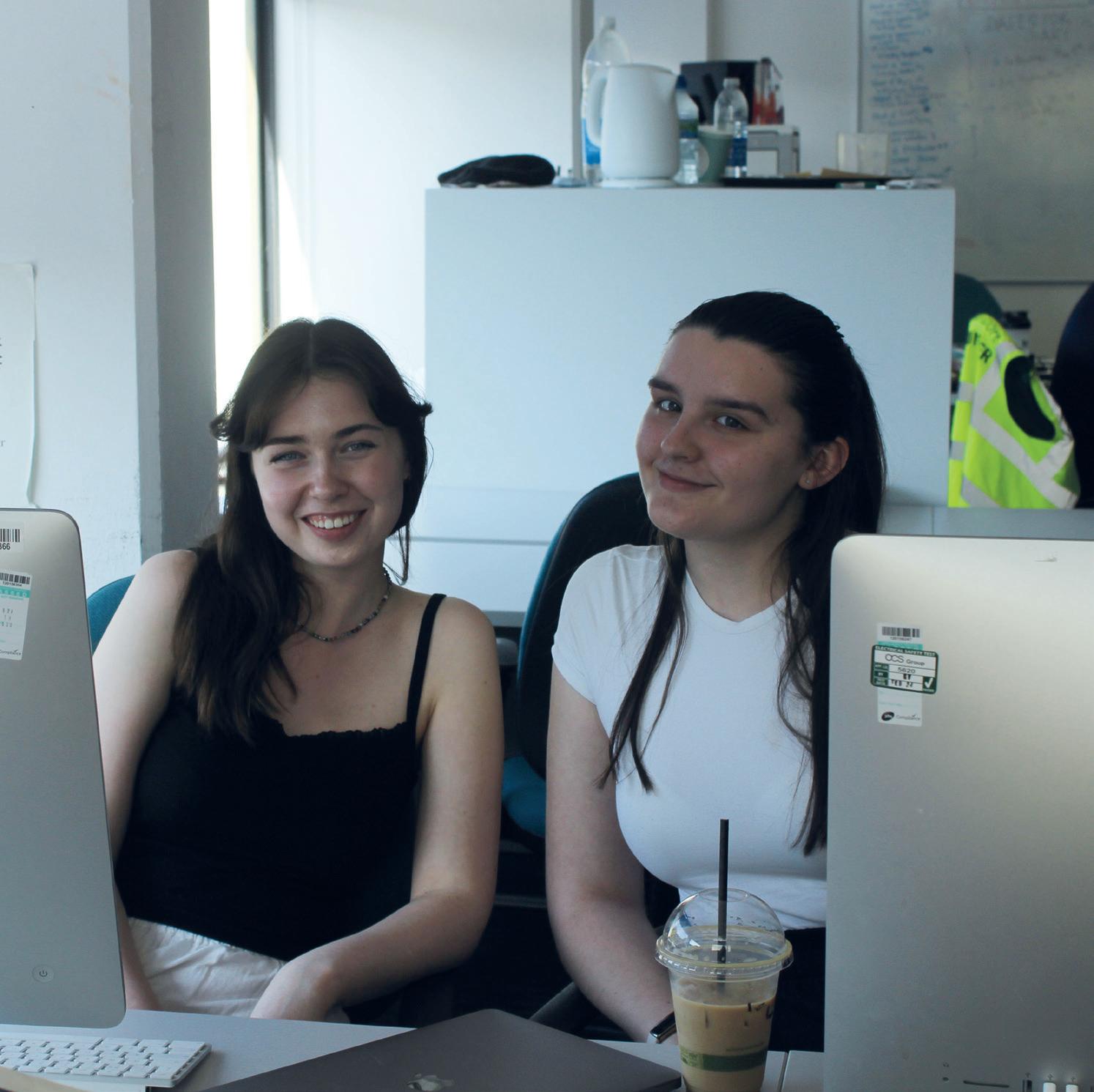
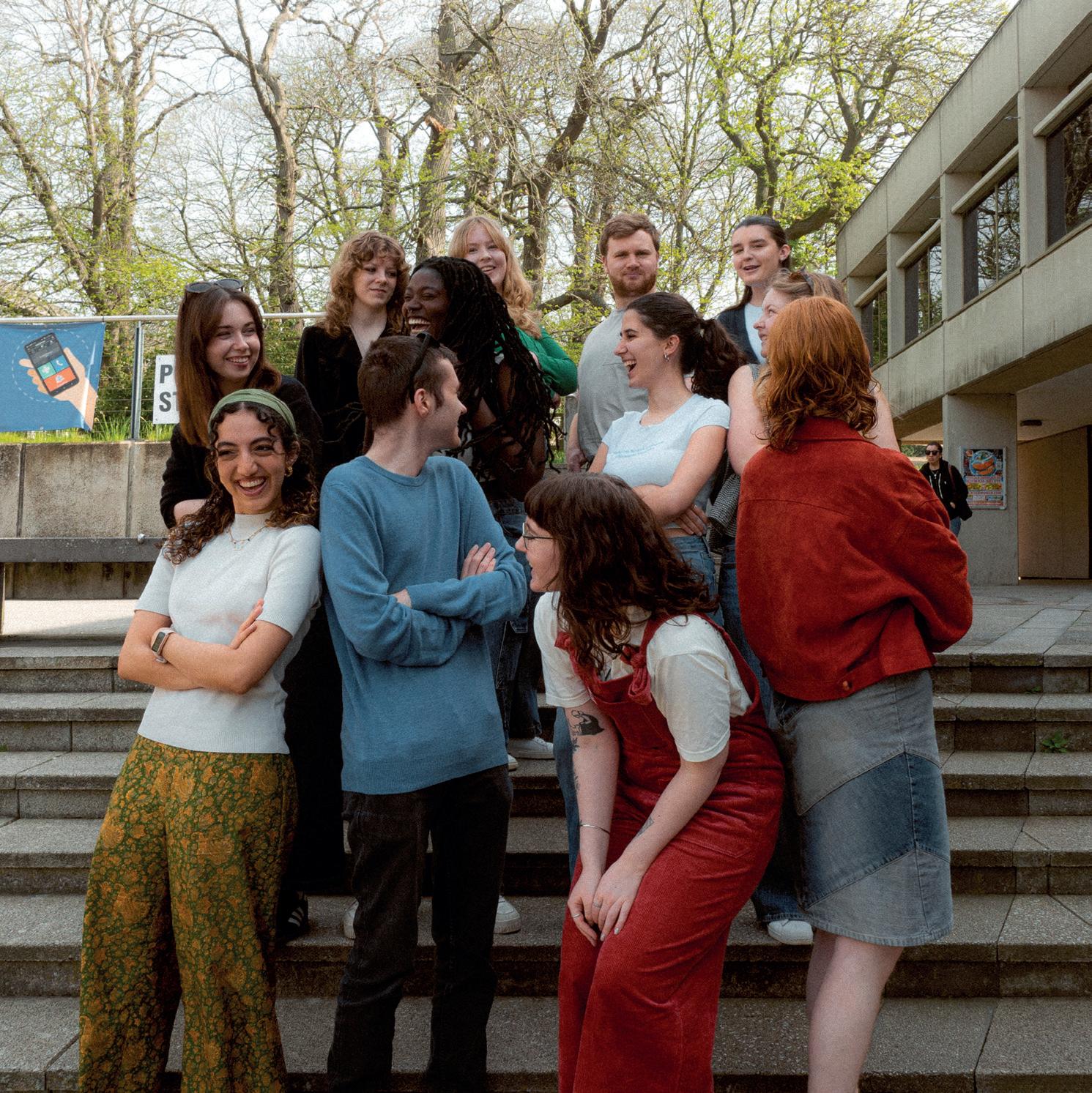
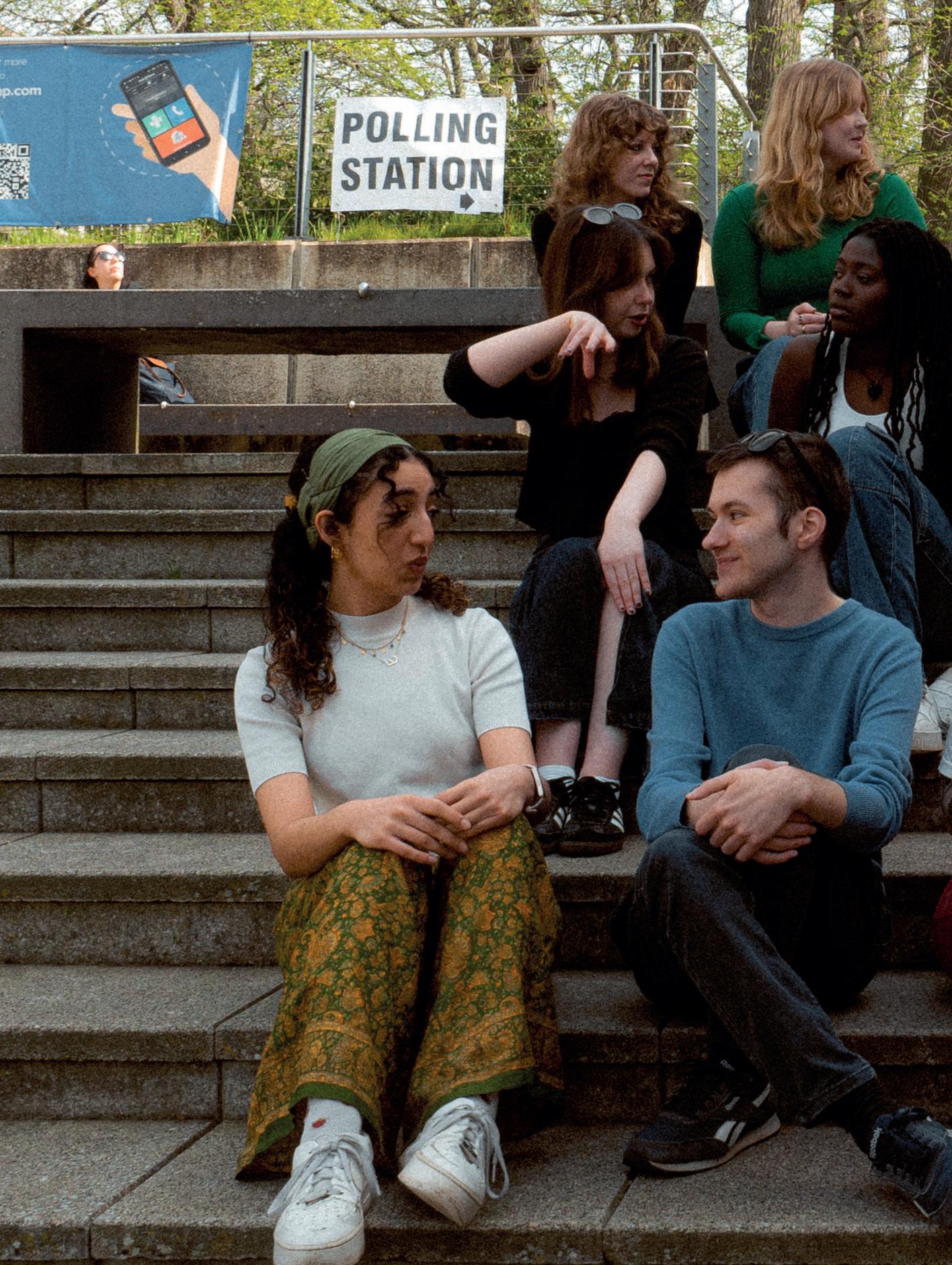
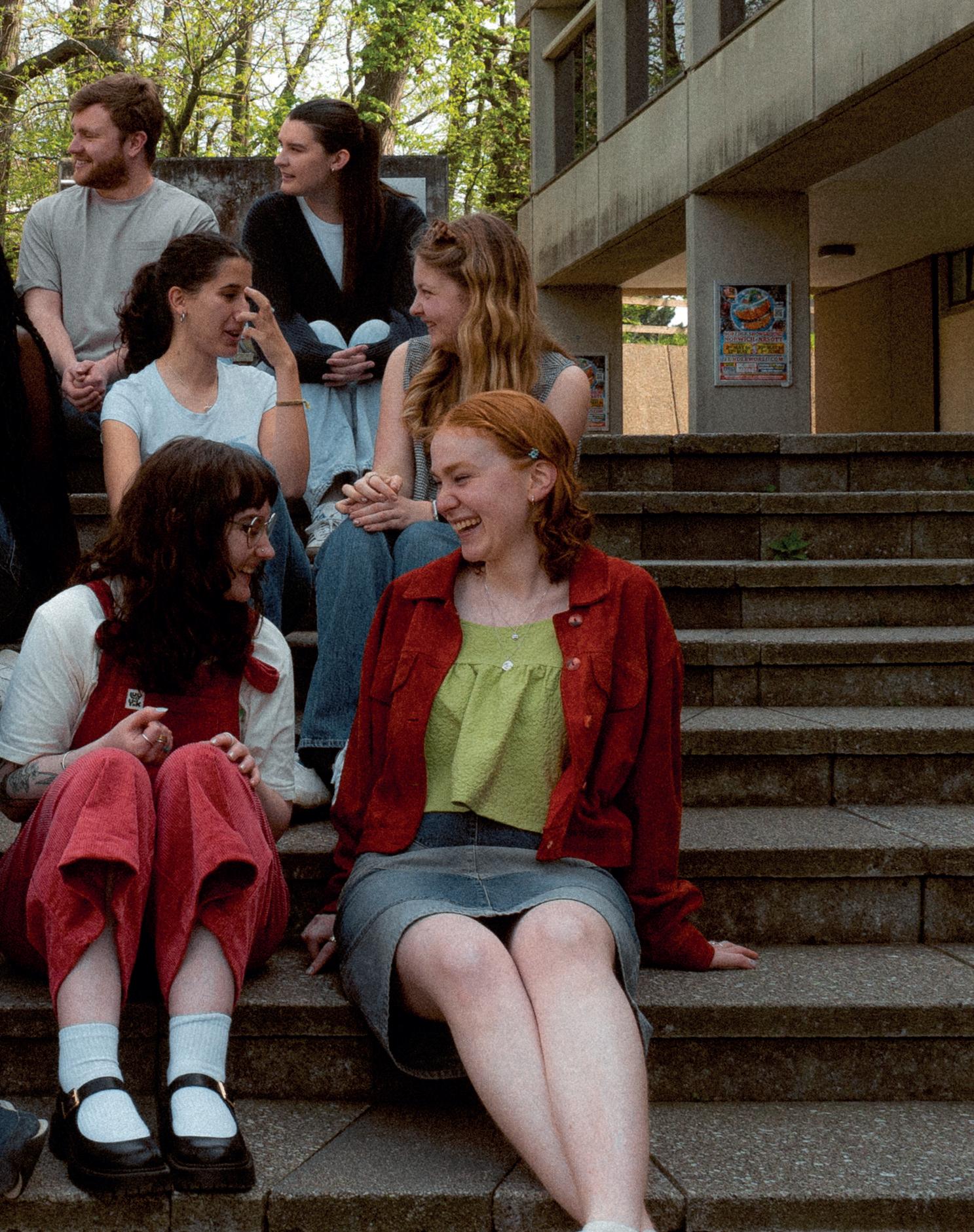
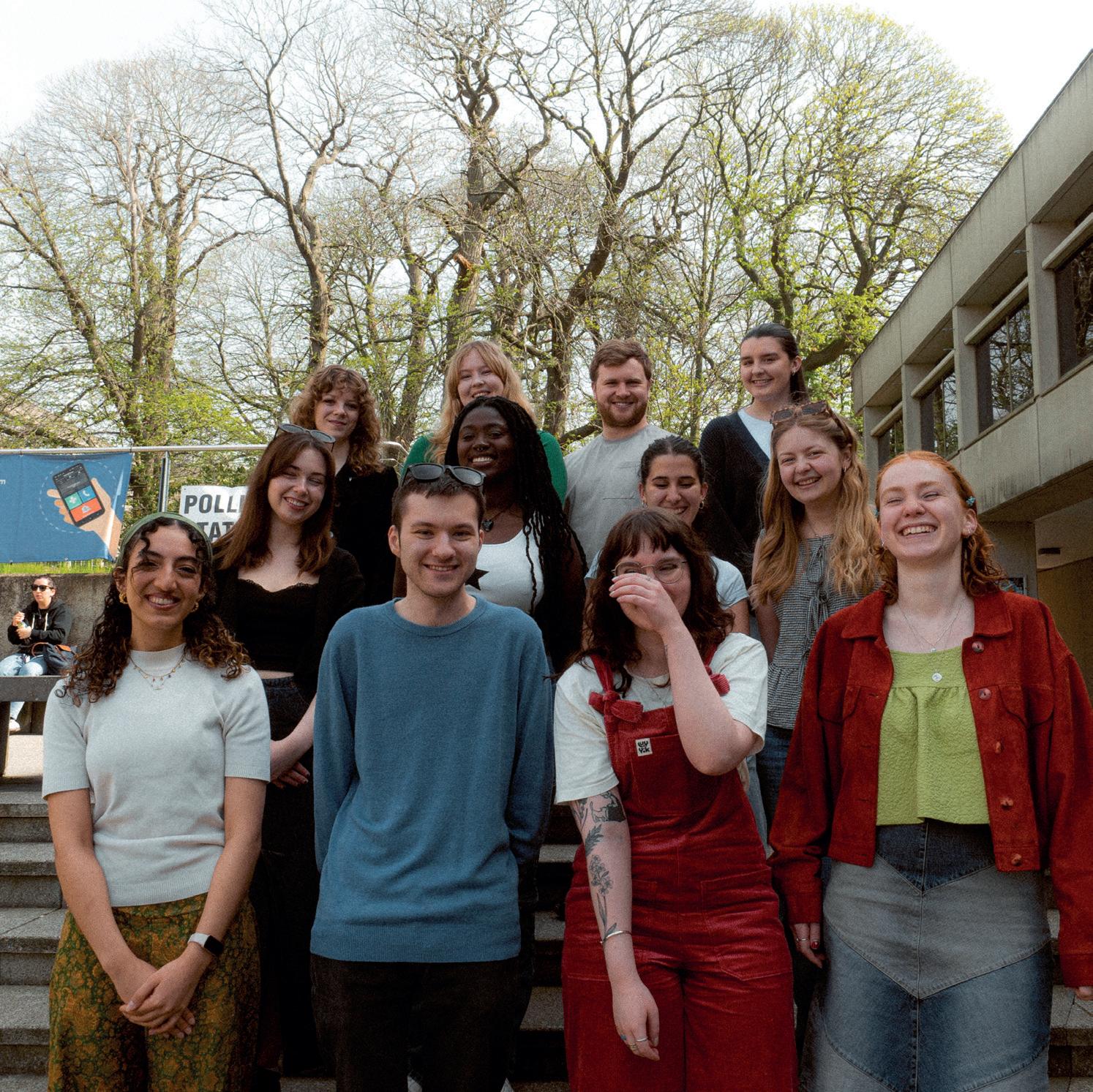
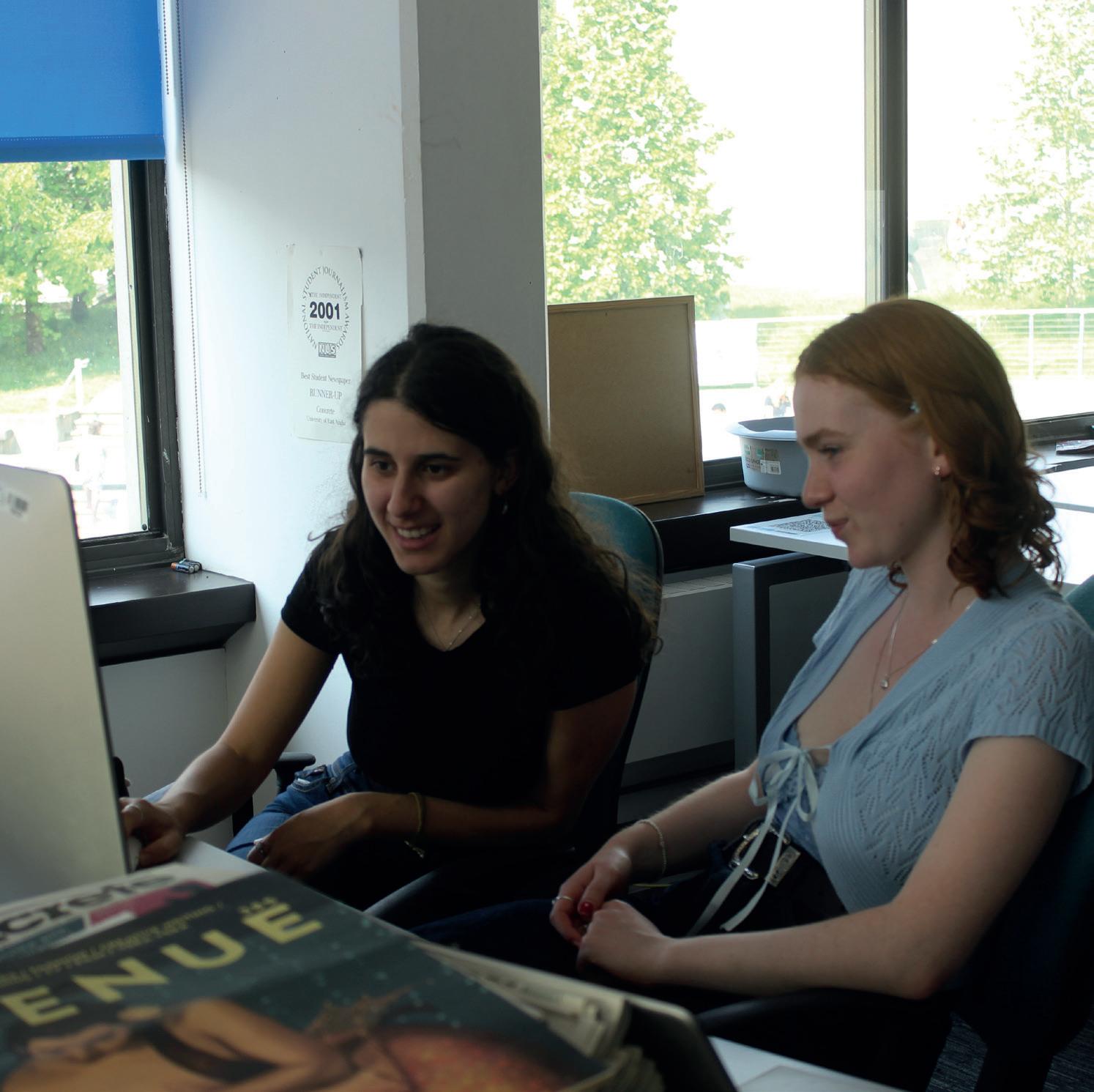
In September, Concrete’s Editorsin-Chief, Matthew Stothard and Eve Attwood, sat down with UEA’s Vice-Chancellor, Professor David Maguire, to discuss his plans for the upcoming year. Since then, the VC has continued to prioritise dealing with the university’s financial difficulties. Boasting a positive outlook on the future of the Home of the Wonderful, Maguire acknowledged from the outset, “We are, I think, in an environment of stability—or more stable than it was.”
The News team sat down with the now permanent Vice-Chancellor to discuss this, alongside the higher education crisis, graduation costs and more. We began by asking Prof. Maguire what elements of the job he enjoys the most, to which he swiftly interjected, “Well, lots of things. It’s a wonderful place, and I’m really enjoying being here. I think the main thing is the people for me; it’s always about great colleagues, inspiring staff and students”. Commenting on the wider environment, he added, “The campus, of course, is lovely - especially this time of year. Norwich itself is something I didn’t really know very much about. Discovering Norwich’s environment has also been lovely.”
Contrastingly, pressed on the more challenging areas of his role, Maguire confidently explained, “I think obviously it’s been dealing with the financial challenges of the university. But at the same time, it’s actually quite satisfying because I think we’ve got it, if not solved, under control” adding, in a keen display of optimism, “We’re progressing positively and going in the right direction. So that’s a big challenge, but it’s also quite good that we’re progressing”.
years at The University of Greenwich, the Professor of Geography is not averse to navigating rough seas in the turbulent world of academia.
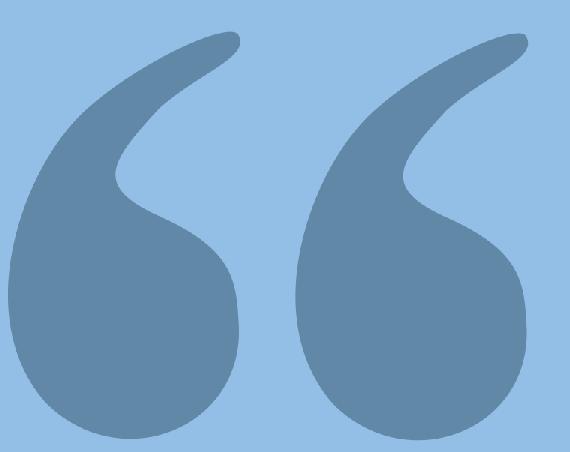
“We’re trying to make change less intrusively”
Asked whether the conditions at UEA were unique, he expressed to us, “They’re more the same than they are different” and expanded, “There’s always a unique set of circumstances for each place - that’s the different thing - but fundamentally it’s about the same sorts of things. Universities are all regulated by the same regulator. We’re all in the same country with the same government. So a lot of the conditions in which higher education operates are fairly similar and identifiable”. Prompted on lessons from his personal experiences, he subtly added, “I could probably walk into any University in the country and understand what’s going on and make up a reasonable sort of contribution; and that’s not because I’m particularly all-seeing and all-knowing, it’s just a fact I think that there’s a high degree of similarity.”
struggles, however, Maguire added, “I can’t promise that to be the case because there are only so many things that are out of our control. We’ve got the government policy changes and fluctuations in student recruitment numbers - it’s a competitive world with everybody else trying to optimise similar sorts of things. The things that we can control - we are controlling - and then we’re seeking to mitigate the externalities which also affect us.”
For clarity, we explicitly asked the VC whether there will be any new significant cuts (in addition to those that were set out in the Strategic Review Programme (SRP) in 2023), to which he responded “No, nothing is on the agenda. I can’t say that might not happen because at some point, who knows”, reemphasising, “Government could change policy and we’ll have to deal with the consequences or something unexpected may happen which we’re going to have to deal with - but there is certainly nothing planned and expected as we sit here today”.
Professor Maguire has often spoken out about the fragility of the UK’s overall university funding model at various industry conferences and with the media. With almost 60 UK universities recently announcing redundancies and other cuts (and a general election ahead), we asked what his message was to an incoming government.
Alongside this, the VC explained to us how the principal source of income for UK universities is fees from undergraduate student fees and how therefore, in his view, “We need the fee cap to be index linked to inflation, because the £9,250 cap (established in 2017) is now worth less than £6,000 in real terms under the current limitation”. Expanding on the tactical effect of this, he emphasised, “We’re trying to deliver effectively the same educational experience and outcomes with only two-thirds of the figure”, and pressed on specific numbers, said, “I’d like to be arguing for an increase to the £14,000, that it would have been worth, had it gone up with inflation.
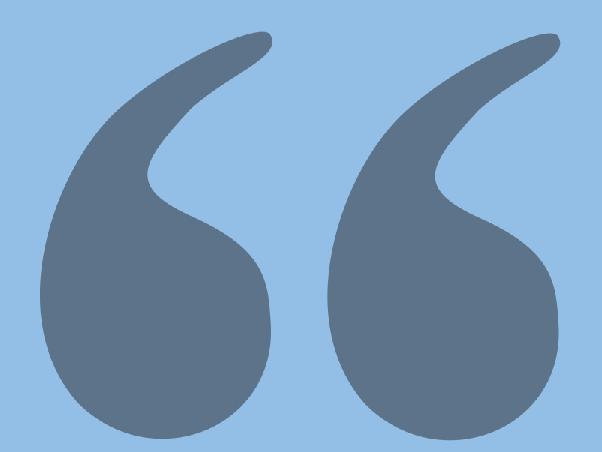
“There is not enough money coming in to fund a world-class education system”
However, that’s unrealistic all-roundbut stopping the damage by index linking it to inflation would be important”.
Finally, the VC explained how reform of the funding model of universitresearch was also needed.
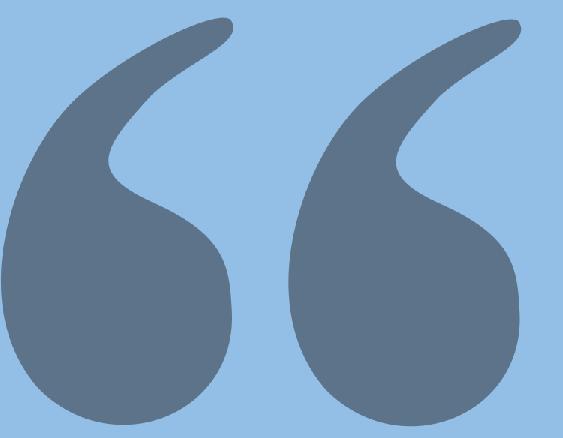
“We’re progressing positively and going in the right direction”
Continuing on the theme of finance, Maguire shed some light on the costsaving measures that staff and students can expect over the upcoming academic year: “Last year was really intrusive, and dramatic and unfortunate in the severity of what we had to achieve in a relatively short period of time. But what that’s allowed us to do is build a platform where we can think carefully and purposefully in an organised way about how to take care of the rest of the problem. And so, we’re trying to make change much less intrusively so that people almost don’t knowwe’re almost trying to do it by stealth”.
Addressing his previous remarks, he said, “I have been quite critical of government policy as I’m seeing its impacts on our ability to do teaching and research - and to support students and staff - every day of the year”. In a rare display of directness for a leading industry figure, Maguire passionately argued, “The first and obvious thing to draw to the government’s attention to - if they don’t already know - is that their current model of funding of higher education is broken. There is not enough money coming in to fund a world-class educational system, so we’re having to reduce what we do and deliver things in a suboptimal sort of way; we need some help with that”.
With specific reference to UEA, Maguire told us, “The research that we do here is widely known because of how we do our accounting; we do it at less than full economic costs. Typically, we get somewhere between 60 and 80% of the actual research cost from the government and other external funders. So, we have to make up the other 20-30% from other sources” and concluding, “Even the government grants we get for research are not covered at full economic costs. We need the government to help us get closer to that.”
Dig a little deeper into the ViceChancellor’s CV, and you’ll discover UEA is not the first crisis-hit university he has been tasked with rescuing. Leading the University of Dundee through COVID-19 after a steady eight
Pressed on specifics, he summed up, “It’s a combination of increasing our income and reducing our expenditure but doing that progressively and iteratively so that it doesn’t have big, dramatic impacts on people”. Upon mentioning the scale of the sector’s widespread financial
Openly proceeding to offer up a “manifesto pledge”, Maguire added, “My number one thing would be an improvement in student maintenance loans and grants because it’s pretty clear that students are really struggling to make ends meet on a regular basis. At the top of the pile would be to put some money into supporting student living costs through maintenance loans and grants”.
This previous interview with Concrete, the VC mentioned a “relaunch” of Arts and Humanities following the ramifications of the financial crisis in the first half of 2023. When asked if he believed this was achieved, he said, “I think there’s been a partial achievement, if I’m completely honest. It was important to get the Strategic Review Program (SRP) behind us. We drew a thick line under that in October when we completed the work that we needed”.
 Photo: Jamie Bryson/Concrete
Photo: Jamie Bryson/Concrete
Once again, emphasising his optimism, Maguire stressed, “We tried to look forward instead of backwards and to concentrate on building places up rather than knocking them down. And I think, to some extent, we could say that we achieved that. Still, I’m also really conscious that there is much more that we can and should do”. Reflecting on the coming academic year, Maguire added, “With Sarah Barrow (Pro-Vice-Chancellor for Arts and Humanities) standing down this summer, we’re in the process of recruiting another Pro-VC to lead the faculty. I think that would be a good opportunity for us to think about what happens next and how we look forward with some new and different ideas”. In addition to this, we also discussed the ”process of rebuilding trust” among staff and students, which the VC addressed at the start of the year. Pausing momentarily, he stated, “Trust is a difficult thing - it’s easy to lose it and hard to earn it. You can lose it in a split second through a mistake or an action, and then it takes a long time to rebuild and earn that”. Expanding on this, Maguire stressed, “I’m a firm believer that with things like this,
‘theory’ is not really all that importantit’s practice which counts. So, what we’ve all been trying to do is to be positive, consistent, open and transparent in our dealings with people and to seek to have deeds and actions which are positive and honest”. In conclusion, he added, “Hopefully - combined with other policies around staff and student wellbeing and support - we’ll start to earn that back.”
Then asked if, on average, he thought staff would now feel more secure in their jobs and that a positive working environment has been restored at UEA, Maguire said, “It’s not easy for me to answer on behalf of the staff, but I hope so. I think we are in an environment of stability - or more stable than it was - and ultimately, the best way to make people feel secure is to provide an environment that financially, intellectually and socially is safe, rewarding and stable. Also, trying to create those sorts of conditions in which people can then feel that this is a place where they belong, that they find it interesting and challenging (in the sense of stimulating for the intellectual nourishment) and that we’ve got a good
package of support measures across a range of different areas to make people feel comfortable and to concentrate on them doing their best work.” e
Moving on to the student costs of living crisis, we put it to the Vice- Chancellor that numerous studies over the past academic year have consistently concluded that the vast majority of students are left with an average budget of £20 or less for a week’s food. We emphasised how Concrete has heard from several students over recent weeks expressing how “upset” and “outraged” they have been about the recently announced £20 graduation ticket fee and that this is not included in their fees.
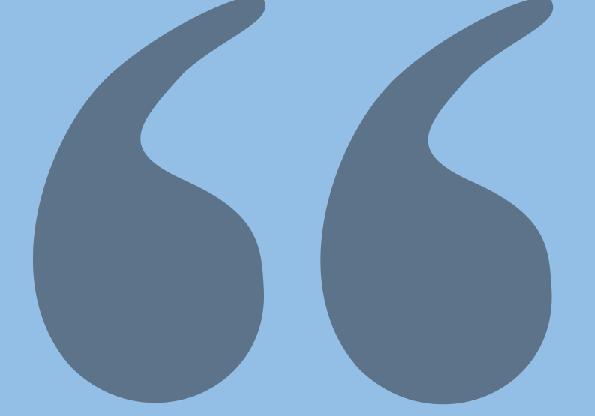
“Trust is a di cult thing - it’s easy to lose it and hard to earn it”
Questioned on the university’s motive for this, Maguire emphasised, “The only thing that’s changed this year is that for family members, there is a charge to attend the ceremony for £20 or to attend the zone outside the hall (for £10), but for students - it’s entirely free”. When prompted about the wider costs of the day, he added “You don’t have to have a gown, you don’t have to have a photograph, and you certainly don’t have to pay for a ticket - so any member of the student community could effectively walk into graduation without spending any money whatsoever - although I do appreciate that family members would now have to pay a £20 fee to attend”.
Expanding on the context of the new fees, Maguire explained to us, “It costs [the university] £1.2 million to put on graduation”, adding, “I wasn’t able to go last year, but I’ve seen pictures and videos, and I’m told it is a spectacular event, so the £20 is a tiny subsidy against that really”. We remarked how the revenue from ticket sales would only cover an estimated one-fifth of his total cost (based on precious attendance), to which the VC responded, “Yes, so you’re actually getting a very expensive ticket for a very small amount of money. Going back to the earlier conversation - the university is in a deficit position. We have to look at all means available to try and reduce that deficit, and this is a pretty modest contribution.
“£20 is a tiny subsidy...You’re actually ge ing a very expensive ticket for a very small amount of money”
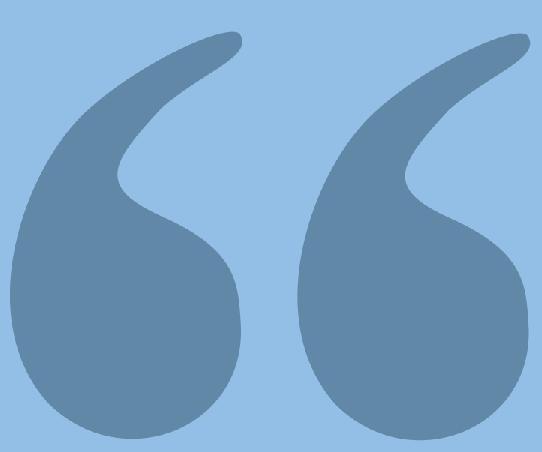
So I hope that when people come, they think it’s a really small modest investment in an important event in people’s lives and want to celebrate their success and hopefully move on to bigger and better things.”
Briefly mentioning suggestions that the Student Union hold an “alternative free-of-charge graduation”, the VC quickly replied, “Good luck. We’ll see how many people turn up for that.”
We finished the interview by asking the Professor if any positive changes were coming to UEA for the next academic year. “Yes, there are lots of positive things!” he responded, adding, “I think one potential thing that we’re hoping to get underway is a plan to refurbish the ground floor of the library…the goal is to introduce more study spaces, and new furniture and to recast it with social learning as well as a learning space. If we can, the plan is to do it over the summer so it’s ready for when students return in October.”
You can read more about Professor Maguire’s experience and the newly developed ‘UEA 2023 Vision’ by going to the ‘Vice-Chancellor’s Office’ tab on the Menu of MyUEA.
“The goal is to introduce more study spaces [...] to recast it with social learning as well as a learning space.”
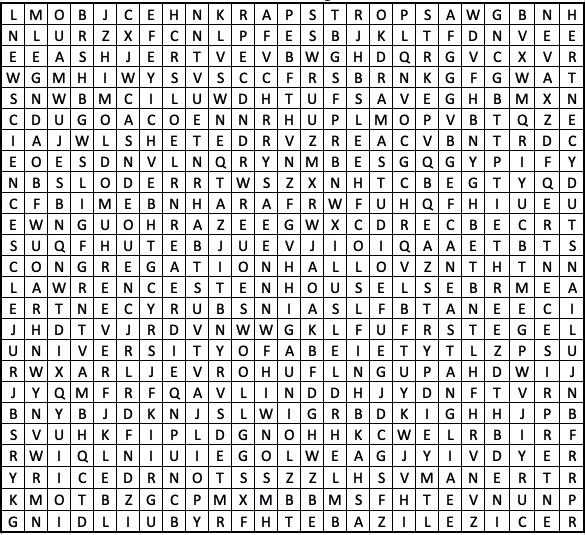

My name is Cal Paul-Moolla and this year I’ve been the Puzzles Editor for Concrete. This is my first year working for the newspaper and I’ve had a great time. It has been particularly enjoyable when I have wanted to distract myself from my academic assignments!
Initially I wanted to do this role as I watched a lot of quiz shows (Richard Osman’s House of Games a particular favourite) and loved to complete puzzles in my spare time. I am very happy that I have been able to share my appreciation for puzzles and games in the university newspaper this academic year.
Words
Blackdale
Congregation Hall
Drama Studio
Earlham Hall
Edith Cavell Building
Elizabeth Fry Building
Enterprise Centre
Julian Study Centre
Lawrence Stenhouse
Lecture Theatre
Library
Music Centre
New Sciences
Queens Building
Sainsbury Centre
Sportspark
Union House

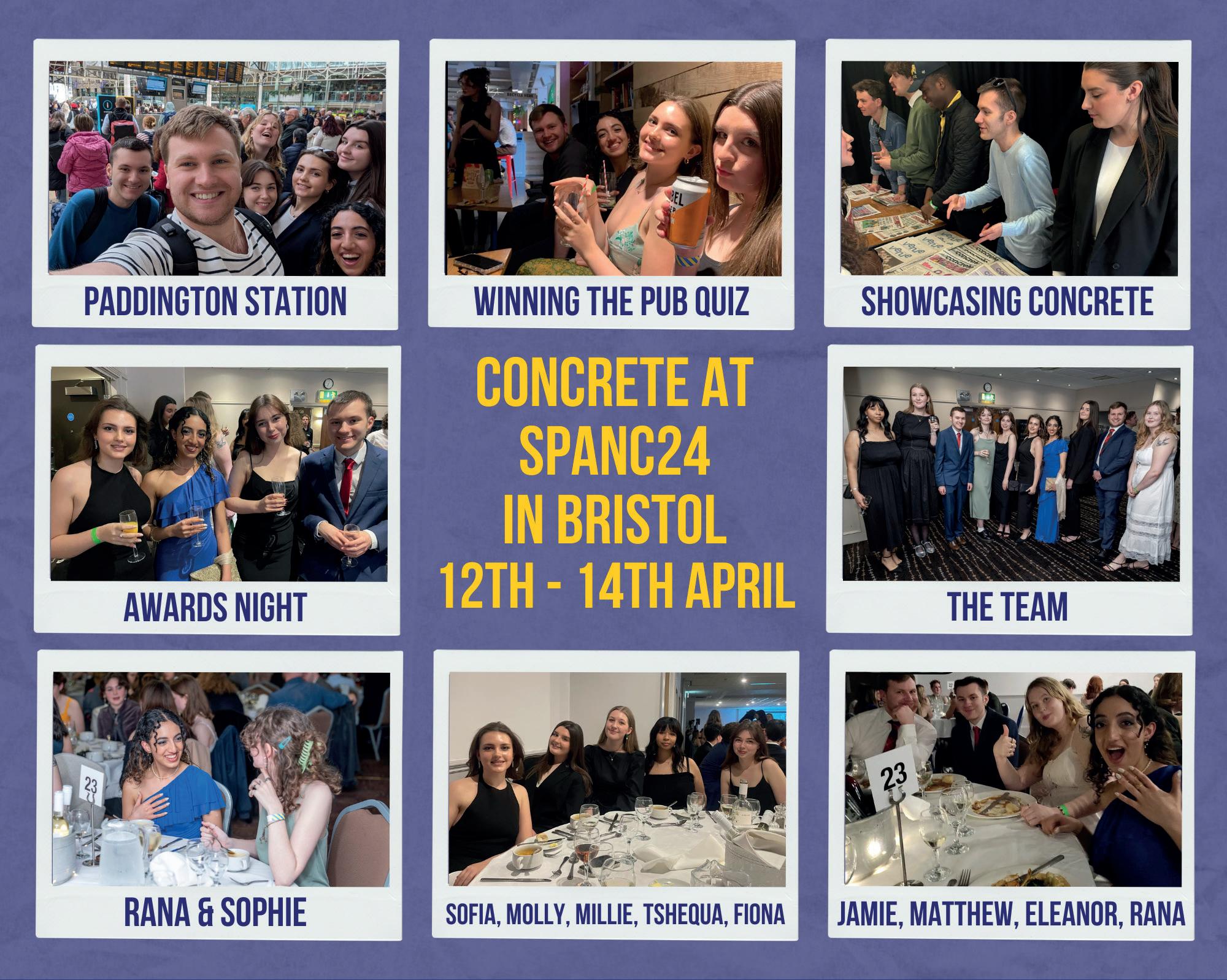
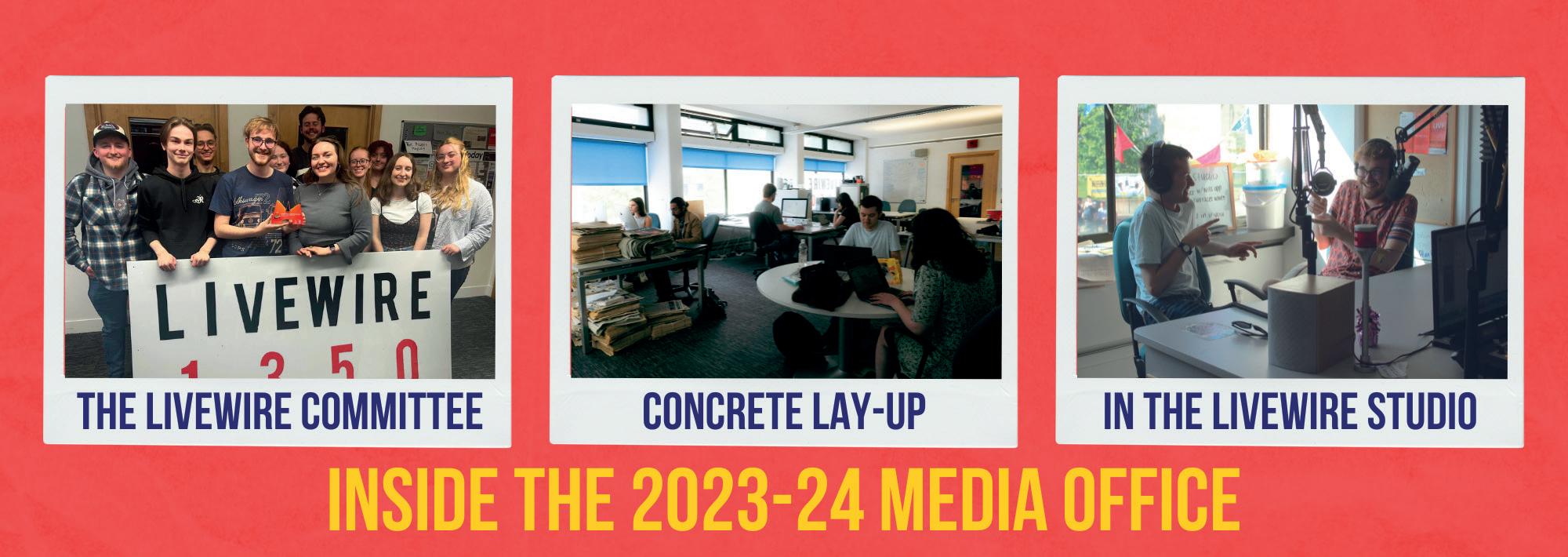

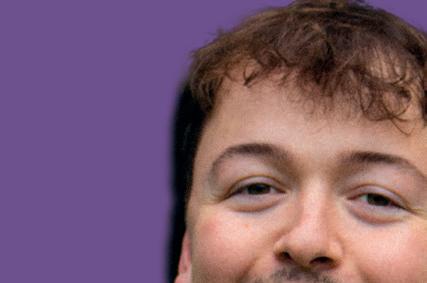

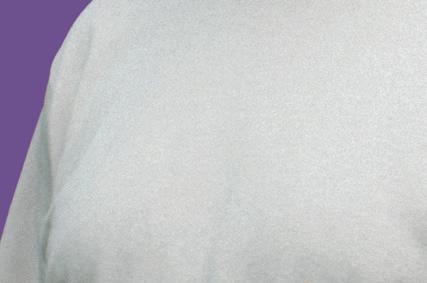


Over the past academic year, Comment has served as a platform for lively debates, critical analysis, and the amplification of a number of diverse perspectives and voices from across campus. From thought-provoking discussions on the experience of UEA’s disabled students, to nuanced reflections on policy coming from the University’s leadership, I hope that each article I have chosen this year has in some way has contributed to a richer understanding by those who read them. As I look back on the myriad topics we’ve covered. I am reminded of the importance of journalists and the press in fostering informed dialogue and driving positive change. In an era of ever-increasing uncertainty and upheaval, student newspapers such as CONCRETE play a vital role in holding institutions accountable, amplifying voices which may not otherwise have been heard, speaking truth to power when it comes to local issues, and fostering a sense of community among students. These are the things that make me both proud and grateful to have been given the opportunity to work here this year Concrete.
It has been a privilege to work alongside passionate writers and editors, particularly our incredible Co-EIC’s Eve and Ma ; who have been far too patient with me throughout the year, and whom without, I have no doubt this entire operation would fall apart within hours. I’m not sure anybody can appreciate just how hard the job you’ve both taken on this year can be unless they’ve seen first-hand how much you have both been working. Both of your contributions have been invaluable, and myself and all of the other editors are so so appreciative of all of the graft that you have put in this year in the face of a number of challenges. Thank you so much!
All in all, I’ve had an absolutely brilliant time this year at CONCRETE. As I reflect, I am filled with both nostalgia and pride, I leave hoping that I’ve done my utmost to promote thought-provoking discussions, diverse perspectives, and our brilliant university. Each article I’ve read through and had published this year has been a testament to the vibrant intellectual landscape here at UEA, and as I prepare to pass the torch to the next comment editor, I am grateful for the opportunity to have served and to have played a part of shaping the dialogue on our wonderful campus.
SamSlade
We’ve all seen the pictures from down the road this week - an outpouring of relief, disbelief and then pandemonium that accompanied Ipswich Town’s return to the Premier League after a 22-year hiatus. Here’s why that could be good for Norfolk too.
For full disclosure, I’m a Tractor Boy, and I’ve been gleefully letting the world know “what we think of Norwich” for the last week - but I come in peace. If there’s one thing canaries and blues have in common, it’s a mutual recognition of how isolating and quarantined a life on the easterly bump can feel at times.
While it feels more welcoming and comforting than anywhere else in the world on a good day, there’s no getting away from the fact that it is economically peripheral at best, and those with dreams of opulence and grandeur normally depart fairly quickly once they get the chance.
port, education, business funds, and recently, a joint trade partnership with Dutch province Drenthe, to trade research and development ideas as well as food trade deals. Generally, when a cash injection comes into any East Anglian location, the whole region benefits.
As far as cash injections go, the one that comes with Ipswich’s return to the top flight is quite possibly the zenith. The intricacies and conditional factors are myriad, but as an estimate, one year in the Premier League could feasibly be worth around £600 million to the area, according to football finance expert Kieran Maguire - if Norwich squeeze past Leeds and win the play-offs, this number will ostensibly double.
beneficial trade deals. Better investment in scientific research and development, so more investment in UEA, and more young graduates and professionals settling in the area. And, of course, an Old Farm derby in the Premier League.
There are, admittedly, a lot of dominoes to be knocked over before our GVA exceeds that of Greater Manchester and the North West, but Suffolk having a Premier League club may provide just enough wind to knock over the first one. If Norwich keep up their end of the bargain and triumph at Wembley on May 26, it could be a rather exciting time to be an East Anglian.
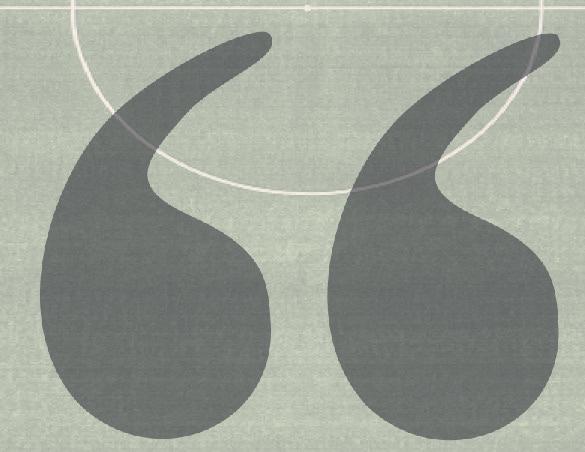
The Cambridge Econometrics Economic Strategy for the East of England concedes that its peripherality comes with inherent patchy infrastructure provision, low levels of innovation, a severe lack of pull for young professionals and graduates, and a lack of diverse or exciting conurbations to attract new ones. Despite our footballing polarity, Norfolk and Suffolk actually work very closely together on a number of economic fronts.
The Norfolk and Suffolk Economic Strategy involves joint investment from both into trans-
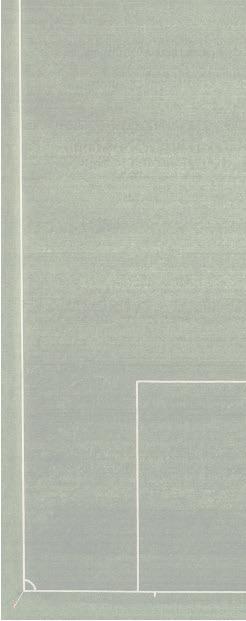
If Norwich squeeze past Leeds and join Ipswich in the Premier League, we
could see a £1.2bn injection into the East-Anglian
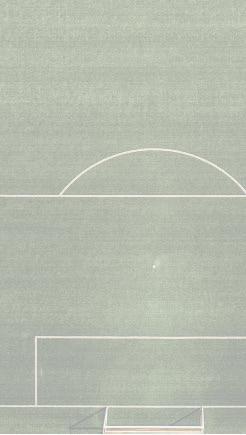
A £1.2 billion injection into East Anglia will quickly see our “sleepy” peripheral home rise in GVA (Gross Value Added) and, if invested well, could be the final straw before we see the East of England overtake the North West in this metric, according to Cambridge Econometrics. That means closer ties to London, so better transport infrastructure. Closer ties to North-West Europe, so more locally
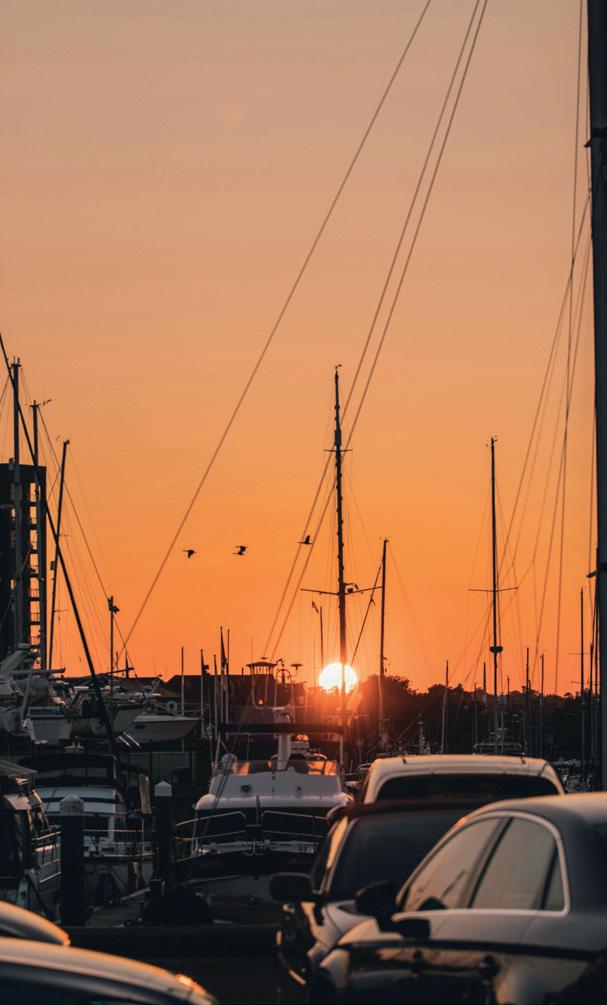
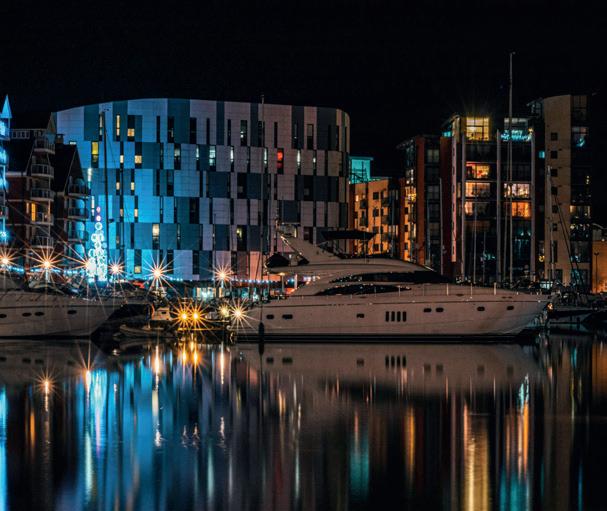

A fine city, with some not so fine landlords Student housing is often described as a rite of passage, an initiation–if you will–into the tumultuous world of adulthood, marked by leaky ceilings, white appliances, and quirky décor.
As students, we often find ourselves navigating a maze of HMOs in search of the perfect balance between affordability and livability. However, the reality is often far from ideal, with tales ranging from outrageous conditions to comical eccentricity becoming the stuff of legend.
We asked you for your best, and here they are (anonymised for the safety of students, landlords, and dodgy tradies).
Student one
This student thought they’d hit the jackpot with their freshly renovated open-plan HMO. Little did they know, they were in for a landlord special.
Imagine their horror when sewage water started seeping through the floor of an upstairs ensuite and onto the carpet inches from their bed. It’s a miracle that their hero landlord was on call to swiftly address the issue, immediately calling someone in to clean the carpet, replaster the ceiling, and fix the plumbing. Just kidding, in fact, they didn’t manage to get round to the former tasks at all. As for the latter, the landlord did manage to eventually send round a plumber straight out of Only Fools and Horses.
He spent more time sat on their sofa, smoking, munching a takeaway, dropping a racial slur or two, and boasting about how he was ripping off the landlord than he did plumbing. Best believe he also didn’t waste any time in announcing to them all that Universities were “useless nowadays” and bragging about how rich he was since starting his own firm (as expected, matey’s companieshouse accounts told a different story).
Luckily he finished and left after a few hours, probably sparing the boys from a conversation that started with something like “You know what, that cabbie in Football Factory had his finger on the pulse didn’t he?” All in a day’s work, as they say.
Moral of the Story: When life gives you leaky, sewagesoaked ceilings, make sure your sofa is comfy enough for a professional lounger who moonlights as a plumber?
Student Two
Picture this: a group of eager second-year students, excitedly anticipating their move into a new house with first-year flatmates. They’ve seen the glossy estate agent photos, complete with promises of a spacious conservatory perfect for late-night study sessions and weekend hangouts.
But as they arrive at their new abode, anticipation quickly turns to disbelief when they discover that the entire conservatory, the centerpiece of their dreams, is nowhere to be found. In its place? A sad patch of dead grass, mocking their shattered expectations.
Resigned to their PetsAtHome enclosure, the student accepted their fate. The Licensing and Management of Houses in Multiple Occupation Act 2007 had other plans, however.
As they bid farewell to their housemates and embarked on their summer escapades after a year, little did they know that change was on the horizon. While they were away, their landlord, faced with the undeniable truth of this student’s postage stamp-sized room, was legally obligated to make it bigger.
In a twist worthy of a Black Mirror plotline, this student returned from their summer escapades to find that their bedroom that had miraculously–and most hilariously, without explanation–been expanded by over a foot in one direction.
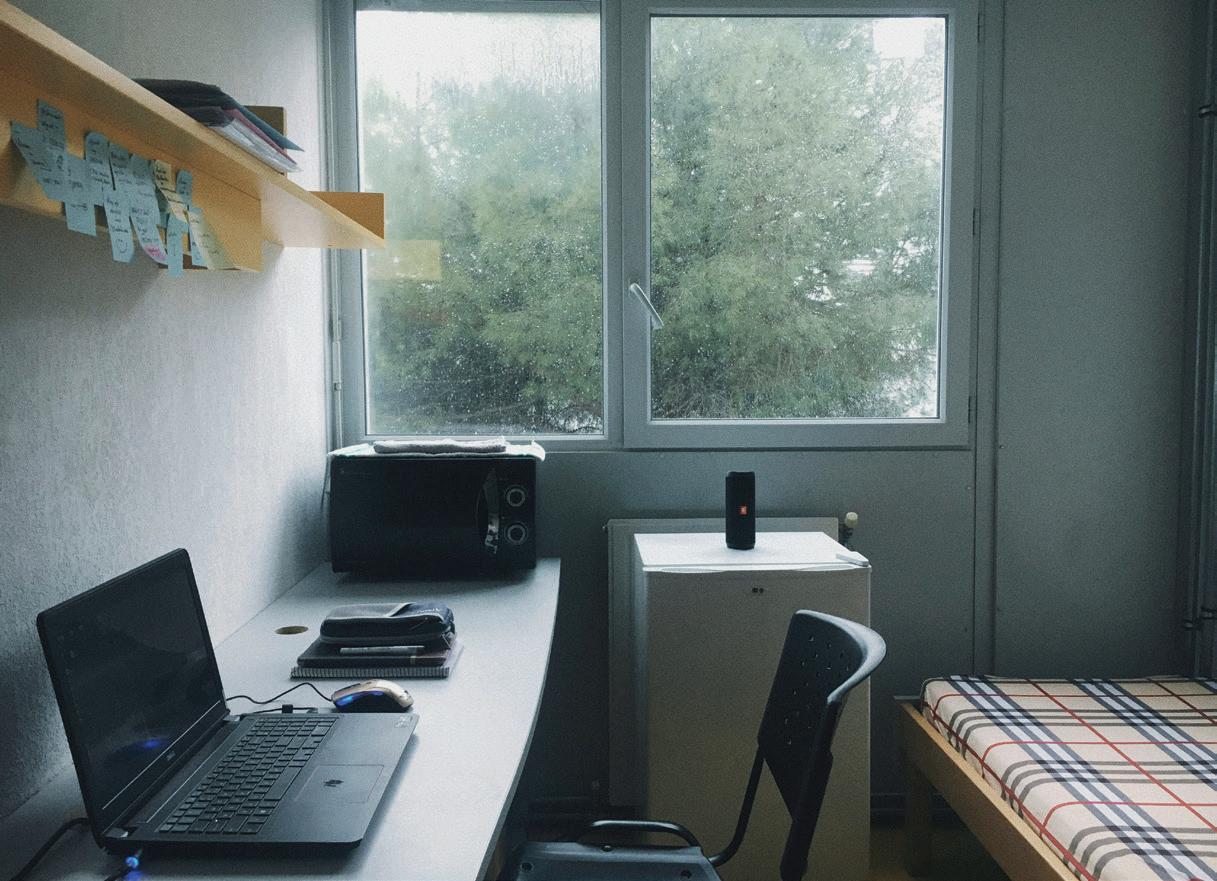
The once-cramped confines of this reptile enclosure were now spacious enough to fit more than just a bed... They now had the potential to accommodate a bedside table as well. A true testament to the omnibenevolent spirit with which our cherished landlords go about their daily business. Yeah, it’s not quite queer eye, but it’s certainly better than nothing.
Moral of the Story: Justice prevails! If you think your landlord is taking liberties and utilising the Vernon Dudley approach to housing, find solace in the knowledge that change is possible.
As they stand in stunned silence, reality sinks in. The conservatory that once held so much promise has vanished into thin air, leaving behind nothing but disappointment and a sense of betrayal. What happened to the sunny retreat they had envisioned? Was it a figment of their imagination, a cruel trick played by the elusive forces of student housing?
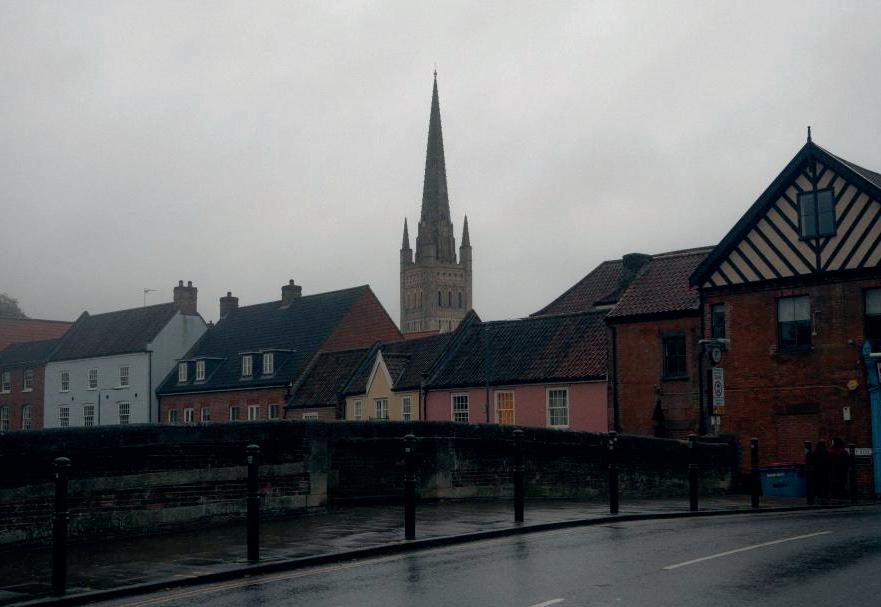
Moral of the Story: For real this time, do not sign onto a house unless you’ve actually been round for a viewing.
Student Three
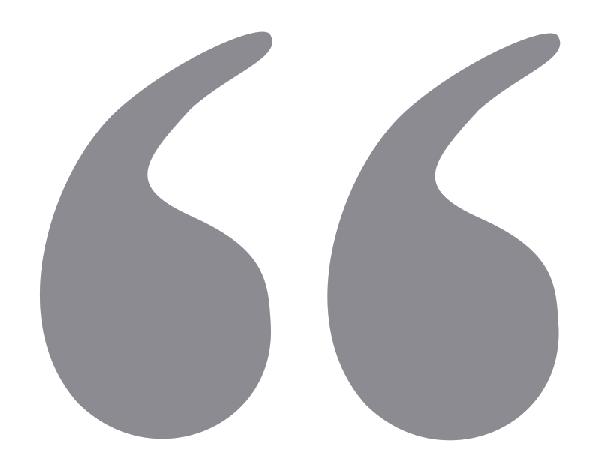
At this point, we’ve all moved into house that promises six bedrooms but delivers something closer to a game of planning-permission Tetris. This second-year student excitedly unpacked their precious belongings, only to realize that their room was actually more akin to a glorified closet than a liveable space.
from their summer escapades to find that their bedroom had, without explanation, expanded by over a foot in one direction”

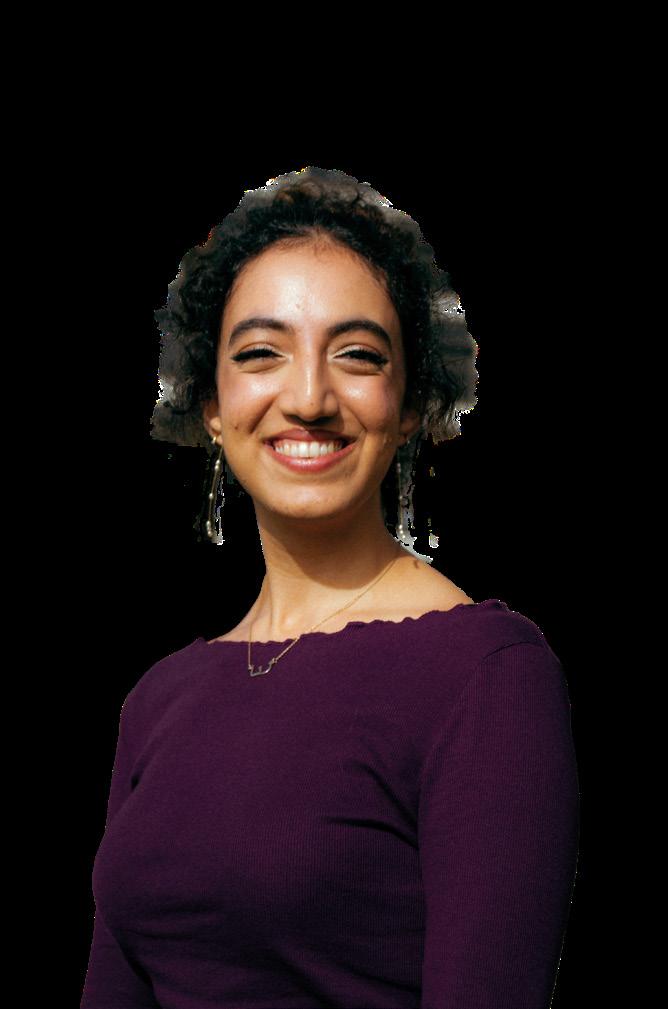
To be honest with you, when I started this job I thought it would be fun to do on the side of my masters. I had no intention of pursuing a career in writing, and embarrassingly I had never even picked up a Concrete paper till my 3rd year (oops).
Now about 8 publications, 2 new subsections, and 1 SPANC later, we got nominated for Best Science Section! Placing us in the top 10 publications in the UK and Ireland, we may not have won BUT I am so so proud of everyone and all the amazing articles I have had the opportunity to edit this year:)
I’ve spoken to so many intelligent people who just think they’re “not smart enough” to understand a concept or “not smart enough” for sciencewhich couldn’t be further from true. If you are curious about something then you are smart enough to pursue it.
Scientists love to yap. And the yapping is full of so much unnecessary jargon, papers and research are often inaccessible to many people out there without a university-level science education, sometimes I have to read them about 3 times to get the point! Yet so much of the research is fascinating and the real-world implications are incredible. Especially the research happening on our doorstep at UEA and in the Norwich Research Park. Science communication is something I think is important and that all researchers should take part in (completely unbiased of course).
I am so so lucky to have had such a lovely and amazing team and an incredibly supportive group of friends. I’ve overstayed my welcome in the media office way too many times (sorry Matthew & Eve!), and we’ve been through so much pain with the uncooperative Mac’s (that take an hour to warm up), the stressful powercut where we thought that we lost 4 hours of work, and battling indesign and its incessant will to cause problems every month when layup week rolls round.
But even then I’ve never met anyone more dedicated to something than Matthew and Eve we all owe them a TON and their efforts have been insane! And I know next year Jamie and Fiona will do an incredible job and I wish them the best of luck.
It’s been fun continuing all the columns this year, ‘This month in science’ was always interesting to read about. But my favourite column has got to be research spotlight, it’s been so lovely to chitchat with the researchers and get to publish what they get up to in the labs, with this month’s article being about my own research lab! A lovely overview written by Joud and Shakeera, both who I will dearly miss alongside everyone else. Although I am the only medicinal chemist in the lab and my research is completely different, in designing and synthesising compounds to inhibit a protein involved in switching segments of DNA off/on (epigenetics), that is overexpressed in cancer, neurodegenerative diseases, inflammatory diseases, etc. Research that has been a task balancing with editing but both have been so rewarding I wouldn’t change it. And I hope that the articles this year introduced you to some cool scientific concepts and made them accessible to
I hope you enjoy this month’s edition, I was really looking forward to the interview with the lovely and accomplished Dr. Dabo as EDI is something that I am very passionate about. The fascinating Brain Organoids article that my housemate Emilia has written, the girl has a passion for brains and has the brains to match. And Max’s article on the new medical courses, he has, by far, the best titles every month and some of my personal favourite articles each time.
Sounding a bit like a speech now but I’ll also finally say bye to UEA as I graduate after 4 long years so I hope you’ve enjoyed the content I’ve managed to mush together, I hope concrete thrives in the next year and I wish the next science editor all the best. A bit soppy but I will miss everyone in the lab and at Concrete a lot and for anyone considering joining the team please do, 5* review from me on TripAdvisor xx
Lots and lots of Love,
Dr. Azzedine Dabo studied a BSc in Biological Chemistry from Aston University, then completed a MSc and PhD in Chemistry at the University of Warwick (in collaboration with Pfizer). Some of his achievements include: GSK Ahead Together/CEO Award 2022, GSK Embrace Rising Start 2022 Winner, 2 Exceptional Analytical Recognition (Gold Level) Awards, Community for Analytical Measurement Science (CAMS) award which enabled him to fund a PhD project with Brunel University and Imperial College London, supporting the Broadening Horizon programme led by the RSC (Royal Society of Chemistry), Supported the UpTree Outreach program at GSK, Hired two students from 10,000 black interns for 6 weeks, Awarded Diversity and Inclusion grant from RSC, speaker at various conferences in London, Cambridge, Amsterdam, Cardiff, Boston such as the Black Pharma Cultivate programme event, as well as virtual conferences. He has been awarded a Chemistry teaching award at Warwick University, as well as a Postgraduate award in Teaching and Learning in Higher education.
What is your current role, and what led you to this position?
I am currently an Investigator, part of GSK’s Method Innovation Team based in Stevenage UK with area of interest in in-silico modelling, quality by design (QbD) method development, using AI/ML for HPLC method development and the transfer of analytical methods and results between chromatography instruments. I am also an industrial supervisor to a PhD student working on AI/ML for HPLC method development. I am also co-leading our ethnicity employee resource group (ERG) called EMBRACE in the UK.
As a winner of numerous awards, most recently a Black British Business Awards STEM Rising Star winner (big congratulations on that!) you are a powerful role model, are there any individuals that inspire you, any role models that you highlight throughout your career?
TThank you. Several individuals have inspired me throughout my life. My parents have always inspired me to always give my 100% to whatever I do both professionally and in my personal life. My wife also played
a huge part in my own personal development. I always reach out to her if I am uncertain of what to do in complex situations. And finally my kids. I feel responsible for making sure I do my utmost to ensure our pharmaceutical industry is more inclusive and diverse so that by the time they’re both adults, they will hopefully not have to face the challenges that I did during my education and professional career. They drive me to be the best person I can be on a daily basis.
During your undergraduate experience, did you know where you wanted to go after, are there any challenges you overcame at this level, especially as a minority ethnic STEM Student?
To be honest I had no idea. During my BSc, I looked for placements and jobs, but didn’t get an interview. Someone told me about fully funded MSc. Before I finished my MSc I was offered 2 PhD positions which was refreshing to be in that situation.
During my PhD, I loved leading the laboratory demonstrations, marking reports, and providing feedback. However, getting a university teaching job was very competitive. The first day I started my role in industry, I was called to interview for a lecturing position with Nottingham University but unfortunately at that point I already moved to Cambridge.
I really struggled to get interviews. I had no mentors or coaches to help me with job applications, interviews or even how to search for jobs. You spent hours and days filling out application forms and not get a response. Looking back, I should have reached out to my university career’s team to help me out. Some of the places I previously worked were also not very diverse. It was hard to be working in a building of over 300 people and only 2 black people are present in the entire building.
You’ve had a varied and widely active role in supporting and shining a light on EDI in the chemical sciences, but what are you most proud of leading?
Creating a more diverse and inclusive pharmaceutical industry is something I am very passionate about. I have always dreamed of creating an outreach program which directly impacts the future of ethnic minority scientists, and I am thrilled to have been able to achieve this by creating and leading the ‘Future Scientist:

Diversifying Pharma’ program. The aim of this project is to provide a group of ethnic minority students, from the RSC Destination STEMM program, the opportunity to gain invaluable hands-on experience using analytical equipment in the pharmaceutical and academia settings of GSK and Oxford University. Professor Claire Vallance was very excited by the program and welcomed my proposal to take the students to experience a day at Hartford College.
Since the missing elements report was published by the RSC, it really highlighted how much more we could be doing to support minority ethnic scientists, how do you suggest we hold organisations accountable and what do you think we can do as students and allies to support each other and our career development?
Certainly. The report clearly showed that more work needs to be done in these spaces and I believe its important our future leaders (you the students) hold organisations accountable. Giving back is what I would advice students to do. There are so many opportunities to work with different resource groups and external charities. I find it extremely rewarding to help others and believe that’s how we can make difference moving forward.
And finally, If you could go back to your undergraduate self, what advice would you give him? Any final ‘words of wisdom’ for our minority ethnic students in STEM?
This question brings back a lot of memories thinking about my undergrad and postgrad studies. I would advise my younger self to network, find mentors, speak up, and be ambitious. I never understood the power of networking until later in my career. I wish I was on LinkedIn years ago, met recruiters and partners at university events and conferences.
Never give up – throughout my studies and career I faced various challenges but one strength my parents taught me is to never give up. This has really helped me to believe in myself
In the Ganesan lab, we are looking for antimicrobial activity from Fungi. The surprise is, that this fungi is collected from the University of East Anglia Lake and River Yare in Norfolk!
This is important because antimicrobial resistance (AMR) is one of the world’s most difficult challenges and threatens a century of medical advancement. AMR has had an explosive rise on a worldwide scale, and a faster than expected transfer from one nation to the next. The number of fatalities from drugresistant illnesses currently account for 700,000 annually worldwide, and if persistent
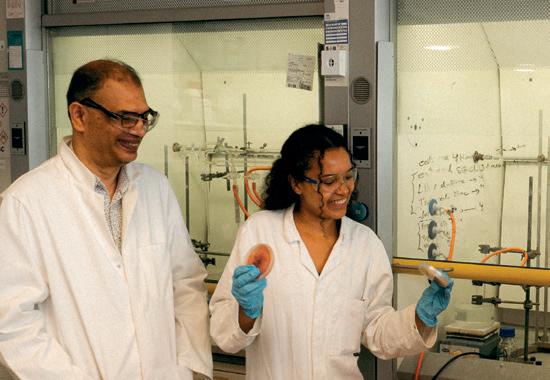 Joud Alshammari, Shakeera Garratt, and Hadeel Almagthali Science Writers
Joud Alshammari, Shakeera Garratt, and Hadeel Almagthali Science Writers
efforts are not made to manage this, deaths from AMR may rise to 10 million by the year 2050.
Microorganisms have become an important source for novel antibiotic compound discovery. These compounds are secreted into the surrounding environment depending on different environmental cues, which may change microbial metabolism, consequently affecting the types of extracellular metabolites.
Our research is aimed at discovering novel metabolites
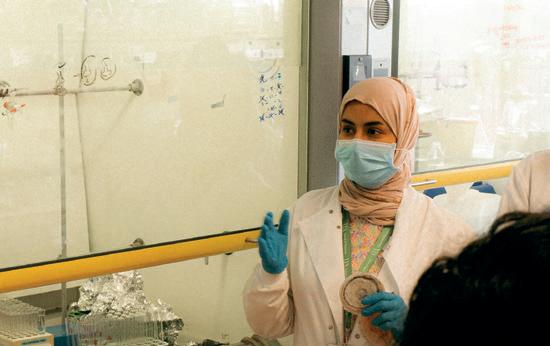
to overcome the issue of AMR. Primary metabolites (a compound involved in organism growth) are vital to an organism’s survival, and secondary metabolites (although not essential), can increase the chance of an organism’s survival. Examples of secondary metabolites include antibacterial, antifungal and anticancer compounds, to aid survival within competitive environments with other organisms.
To achieve our aim, we took water samples from both the lake and river (90 colony samples in total), diluted
the samples, and grew the fungi in various conditions to activate secondary metabolite production. Allowing us to then extract the various secondary metabolites produced. Antibacterial tests were then conducted to identify if the fungi were able to produce antibacterial compounds in certain conditions, then analysed through various analytical techniques to suggest the structures of these bioactive compounds. Similarly, other experiments on fungi, which were isolated from the lake sediment, include growing
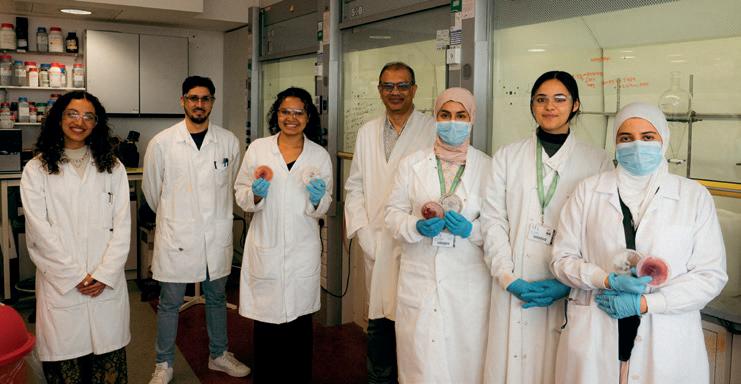
Today, Alzheimer’s disease is the UK’s biggest killer. It is a terrible illness which robs people of their memories, stories, and relationships. Current treatment options for patients with Alzheimer’s disease include a mix of medicines and therapy. However, these treatments only help to alleviate the symptoms of the disease and not cure it. Yet, we should not lose hope! Alzheimer’s disease research output has sky-rocketed in the past few years, with more people than ever working towards finding a cure. Now, one highly fascinating area of Alzheimer’s disease research is emerging: brain organoids.
Organoids are small, threedimensional versions of organs or tissues formed from cells
“...the model will allow scientists to now study how inflammation and stress are involved in brain diseases.... ”
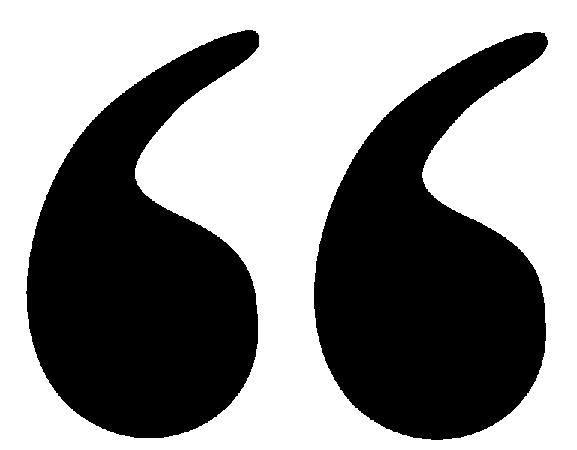

often used in research to better our understanding of diseases. Methods for culturing different types of organoids have been in constant development since 1987. Nevertheless, brain organoid culturing has been around for less than a decade. Most current brain organoids are formed from the neuroectoderm (the outer layer of an embryo that evolves into the central nervous system and other nervous tissues), failing to take into account the other non-neuronal cells that the brain is made up of. This means that these organoids are not able to model brain diseases or functions accurately. Recently, scientists from the Salk Institute in La Jolla, California (USA), published a cuttingedge paper in Nature Biotechnology highlighting their novel organoid model of a human brain.
They were able to create a brain
organoid model containing important brain cells involved in neuronal activity and health that have never been 3D- modelled before. The model was developed by administering drug molecules to the organoid and then observing whether formation of the important brain cells was promoted. The results from this research are exciting as the model will allow scientists to now study how inflammation and stress are involved in brain diseases including Alzheimer’s with better transparency. In addition to this, druggable targets can also be studied with greater accuracy using this model, giving hope for Alzheimer’s disease therapy research.
So, watch this space as brain organoid models of Alzheimer’s disease continue to develop, hopefully leading to new Alzheimer’s disease therapeutics.
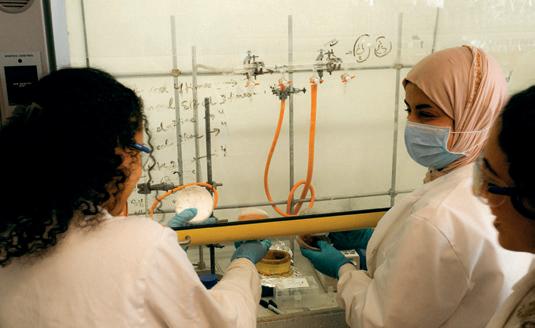
the fungi in different conditions such as adding amino acids, to encourage the production of novel secondary metabolites.
Other work within our lab includes the discovery of antibacterial compounds produced through the secondary metabolites of rare plant species, conducted by Maya Valmiki, Mohammad Alroomi, and Abdulmajeed Alraies . Additionally, secondary metabolites from other marine species were examined, tested and analysed by Abdulrahman Aloufi. And Rana Dawood, working on a medicinal chemistry project, which is completely different with a focus on targeting a protein involved in DNA modifications called HDAC6.
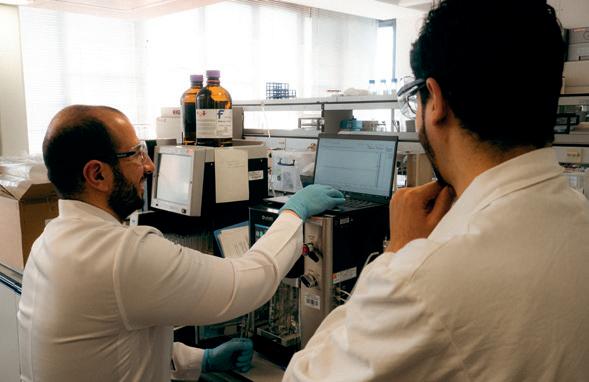
Last month UEA hosted a conference titled “Tackling health inequalities in the east of England,” in which they unveiled ambitious plans for the future of their medical department. The event included speeches from the government health minister, and chief executive of the local state-of-the-art NNUH Hospital.
UEA will now offer graduates across the country the opportunity to complete a medical degree in four years instead of the traditional five, fast-tracking qualified individuals into the sector. This will be at no expense to the quality of training and fill muchneeded spaces in the NHS.
Furthermore, they plan to terraform the ‘dental desert’ of East Anglia. Currently, it is the only region in England without a dental school contributing to the immense inequality of access to routine dental healthcare. The rollout of this program will fill as many as two and a half million appointments in a single year and offer ‘golden bonuses’ of up to twenty thousand pounds for dentists to stay in East Anglia where they are needed most.
This announcement comes at a time when UEA is already preparing to unveil its brand new anatomy suite on campus that will greatly expand teaching spaces and include high-tech facilities.
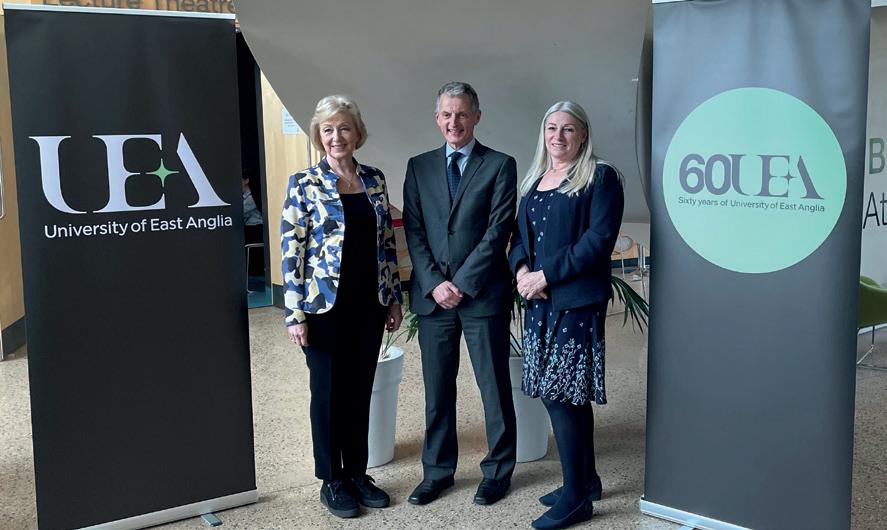
With the academic year drawing to a close, comes a similar ending to my time as the Lifestyle Editor at Concrete. And what a year it has been!
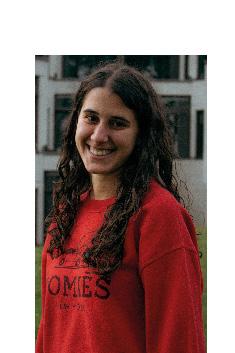
I remember getting the email that I I’d been asked in for an interview, conducted from the bedroom of the AirBnB I was sharing with several friends in a port-village in Scotland next to a sleeping friend (who revealed, after the Co-EiCs Eve and Matthew had hung up, that she had, in fact, been awake the whole time and eavesdropping). I’d always wanted to get more involved in the university community, especially as my first and second years had largely been absent of society extracurriculars. The idea that I’d be able to run my own section was a new, exciting opportunity—and one I have found a particular love and passion for.
As someone who loves a video essay and spends most of her time deep-diving the abundance of microtrends across the Internet, Lifestyle has been a perfect place to discuss a multitude of varied interests, from ‘girl dinner’ to sex positivity to dressing up for Halloween! Moreover, it has been beyond a privilege to receive external pitches from people willing to write about their own personal interests, such as female body hair, the experience of being on birth control, and plastic surgery. Over the year, I believe Lifestyle has become a place of discussion and openness, where any and everything can be written about in a judgment-free way, and it has been so exciting and wonderful to see how many people were willing to contribute to it—to the point where almost every edition has had a surplus of potential articles! Not to ignore the wonderful work of Concrete’s Agony Aunt Jadyn, whose kind, thoughtful, witty advice in Anne Glia has been the cornerstone of every edition. Together, we’ve made a pretty great team, if I do say so myself.
As a third-year English and Creative Writing student, it can be pretty scary thinking about what I want to do with my future. I’ve always loved writing, and I’ve always loved reading, and the dream is to hopefully turn either (or both!) of those passions into a career. But my time at Concrete has opened my eyes to other new potential avenues: writing articles for local publications; getting involved with the more editorial side of things; devising new exciting ideas and pitches. It’s taught me time management, organisation, creativity on a deadline, and wrangling the beast that is InDesign on the SU’s old desktop Macs. More importantly, being involved with Concrete has also brought me many wonderful friends. I’ve been so fortunate to have such a wonderful team this year, and I can’t express how grateful I am to have been a part of something so lovely.
Micah Petyt Lifestyle WriterIn an age of constant posting and so-called relatable content, it is no surprise that What I Eat In a Day (WIEIAD) videos are insanely popular on social media. These posts, revealing everything the creator ate in the span of a day, are often accompanied by pictures of the food, along with nutritional and caloric intake.
However, with the ever-present push for specific body types by Western beauty standards, it is no surprise that these posts can be mentally hurtful.
In exploring the WIEIAD hashtag on TikTok, my feed was immediately flooded with content that promotes unhealthy eating habits, often complete with a shot of the poster's flat stomach at the beginning of the video. In these
Why are we so much happier now that the sun is out?Ella Hamlin Lifestyle Writer
As the cold winter days slowly fade into a fog of memories, that first sight of the sun in spring always feels like a literal representation of the light at the end of the tunnel trope. We have the same 365 days on repeat every year so why is it that when the sun decides to make an appearance, we all collectively feel a little more positive?
The most glorious days in winter are those that have a cold bite in the air and the sun shines strong. But how common are they really? Most winters consist of opening the curtains to grey skies or rain or grey skies and rain. It feels like Groundhog Day, and I don’t help that feeling with the fact that I have the same conversations, regarding the state of the weather, on repeat to those around me. It’s almost like my way of coping with the bleakness of a British winter is to talk about said bleakness. But everything changes when spring finally decides to rock up.
For me, the sun makes me forget all the previous days' problems. It makes me feel ambitious,
determined, and gives me a sense of drive to break my lifelong habit of sleeping in too long. I am more of a night owl, yet the summer sun makes me want to wake up early with the birds, prepare a juicy bowl of fruit and sit outside soaking up the sun from as early as possible. Whether I ever get to achieve that idealistic routine is another matter.
Ultimately, the Vitamin D that the sun shares with us is a good explanation as to why our mood suddenly flourishes in the warmer months. As well as increasing our supply of this vital nutrient, sunlight also is known to help improve sleep and
general well-being by boosting moods, relaxation and decreasing depression.
Whether it’s the heat, the glow or the endless opportunities that the sun provides, it’s hard to pinpoint exactly what it is that changes our mood in such a short time. I think one of the reasons I swoon over the first sight of the sun is because it represents the months of excitement to come: time away from academia, holidays, light evenings, beer gardens, exploring the outdoors and a general community buzz.
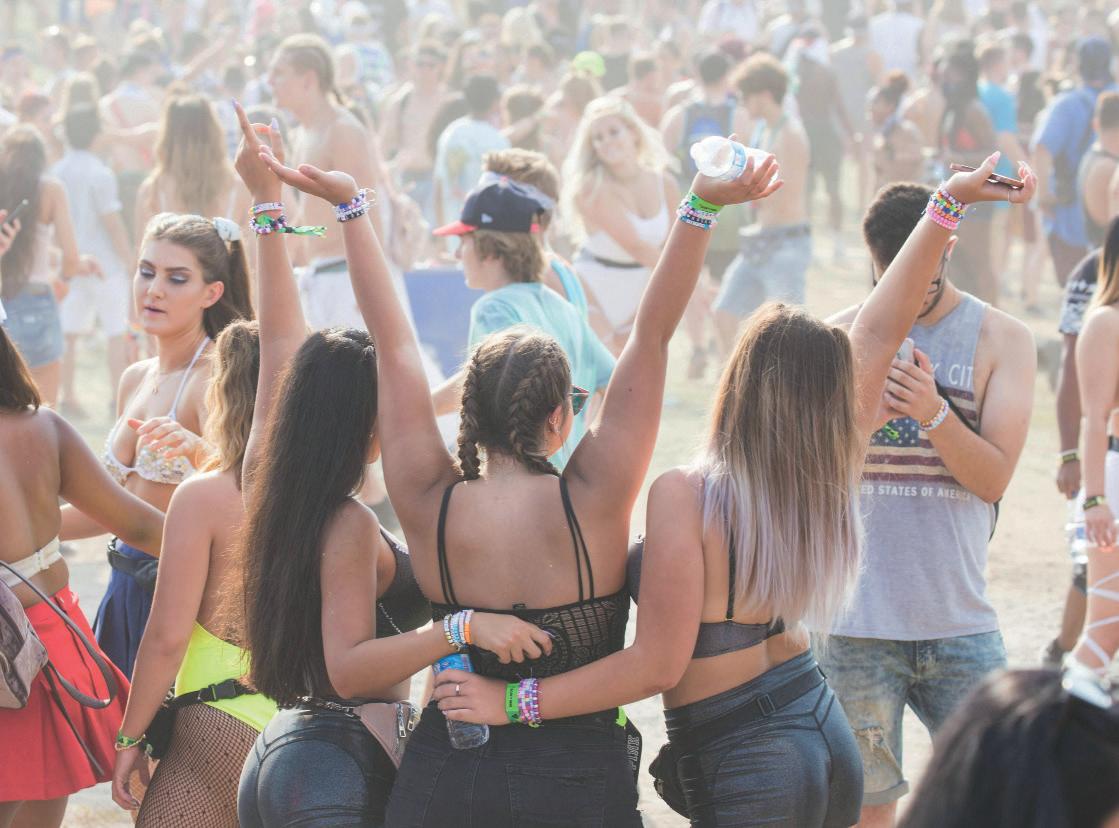
posts, the content creators provide the number of calories that accompanies each meal, often rounding out the day at a number that is far lower than the 2000 calories recommended for an adult.
Considering the fundamentally competitive nature of eating disorders and the easily impressionable minds of teenagers who frequent apps such as TikTok, it is no surprise that such posts can often have extremely damaging or triggering effects on the viewer.
Despite this, and the caution that needs to be applied when discussing the topic of eating on the Internet, I find that What I Eat In A Day videos can also be beneficial, particularly those where creators post their meals as part of eating disorder recovery, encouraging their audience to do the same. These videos provide a
“What I Eat In A Day:” Does TikTok’s favorite food trend do more harm than good?
realistic approach to recovery, particularly when paired with honest conversations about how difficult recovery can be, and remind the audience that there is no such thing as a ‘good’ or ‘bad’ food day.
Furthermore, as simple lifestyle videos, when accompanied by no information other than images of the meals themselves, WIEIAD videos can serve as meal inspiration or cooking aspirations, which is particularly helpful when showing easily accessible meal prep, especially when curated by and for university students.
To name WIEIAD videos as outright helpful or harmful is to disregard the nuances that come with the topic of food on social
media, and thus it is important to recognize that the way food is portrayed is entirely up to the
and the relationship they have with it.
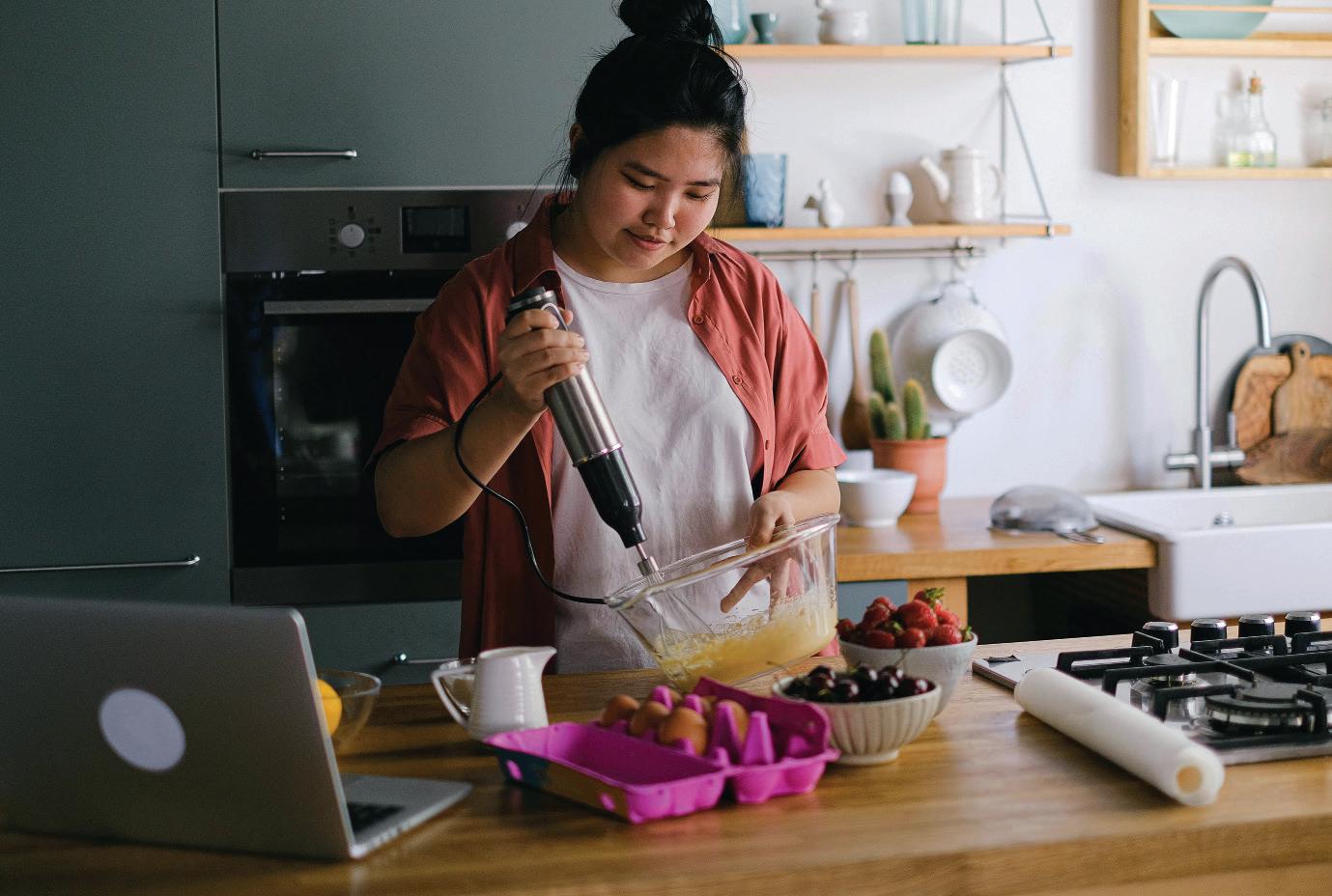
Q: My friend has got a new boyfriend, and ever since I feel like she’s been neglecting me, we never see each other anymore and when we do she only ever talks about him. I miss her but I’m afraid I’m being selfish! What should I do?
A: The age-old dilemma of ‘am I being unreasonable or is she being a bad friend’! We’ve all been there. This is a complicated situation, but I will begin by saying: your feelings are always valid. If you’re feeling hurt and neglected, that is totally valid, regardless of whether or not they’re ‘selfish’.
Firstly, it is always tough to feel

"Your feelings are always valid"
like a friend is drifting. You may feel caught between wanting to
be happy for them in this new relationship and feeling left out yourself. I call it the ‘grace period’ -- the period of time they’re allowed to be annoying. (Because yes, people in new relationships can and often are annoying.) Be kind to both yourself and your friend. From what it sounds like, she has found a partner she is happy with, if the fact she talks about him non-stop is any indication. That’s really exciting! Of course she will want to talk your ear off about him – if anything, the fact she is talking about it to you means she values your friendship and your opinion.
However, you are also more than allowed to feel left out. If this feeling persists, try talking to her about it. You don’t have to be aggressive or confrontational: you can simply be honest, and express that you miss her, and you feel like you haven’t properly hung out just the two of you in a while. It can be tough navigating this sort of thing, especially because you don’t want to come across as unhappy for her, but if your communication is present and kind, I trust you will be okay. (Plus, give it two months – you just need to push past the
honeymoon phase.)
Q: I’m graduating in less than two months, and feeling unsure about my future. I don’t know what I want to do, and I don’t have any jobs lined up. Thinking about what’s going to happen come July just makes me stressed and anxious. What should I do?
A: You are not alone in this. As someone who is also graduating this year, with little idea what they are going to do next year, thinking
"Be kind to yourself and take it day by day"

about life post-grad fills me with dread. But this doesn’t have to be the case!
There is this common belief that by the end of university, you should have your life figured out. Not only should you know what career you want, you should have already landed a job to jumpstart that career. You should be ready to officially move out and rent nonstudent housing within the year.
But this is not true. For one, it is extremely common to graduate and still feel unsure about what the future holds. I have so many friends who are graduating, only to go back into education and take courses extremely different to their degree, because halfway through their time at university they realised they wanted something different. Similarly, I have friends who are content to keep working their part-time hospitality jobs pouring pints or making coffees, just to have an income while they figure out what they want to do.
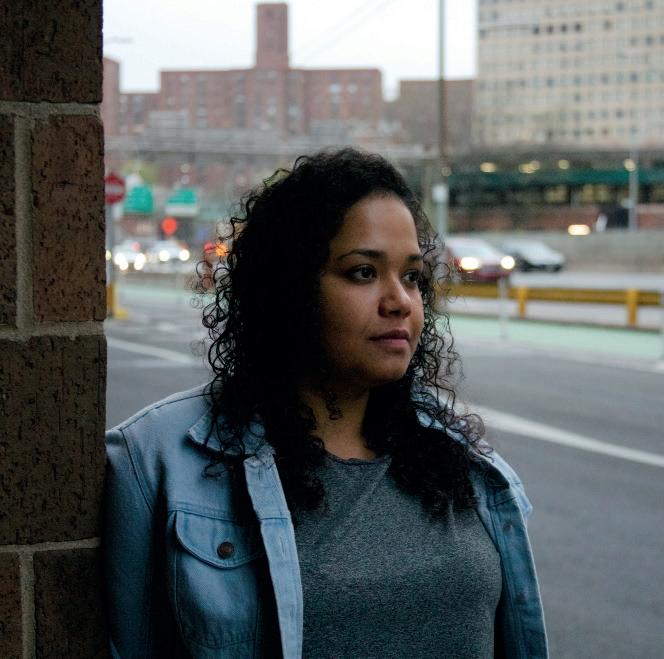
and a partner is steadily becoming exposed for what it is: a fallacy. Of course, there are some people who will have achieved this, but they are the exceptions, not the rule. My advice is to just be kind to yourself and take it day by day. The future is long and bright, and you have plenty of time to figure it out. For now, just appreciate the last few weeks of university in the sunshine.
As the years pass, it is becoming increasingly common for young adults to move back in with their parents in their twenties. The fallacy that by twenty-five you should have secured a job, a house
Balancing being Co-EiC of Concrete and doing a Master’s over the last year has certainly had its stressful moments, but one thing that helps me to switch off is listening to podcasts. Here’s five of my favourites…
Off Menu
Off Menu is the most popular podcast on this list, and for good reason! Hosted by comedians Ed Gamble and James Acaster, on each episode a celebrity guest is invited to enter a ‘Dream Restaurant’ and select their favourite ever starter, main course, dessert, side dish and drink (not in that order). It’s the perfect combination of an inciteful celebrity interview, surreal elements (particularly from James who is a Genie Waiter) and a clearly genuine friendship between the hosts.
The Rest is Entertainment Hosted by Richard Osman and Marina Hyde, this
podcast is fascinating for anyone with an interest in the entertainment industry. Releasing two episodes a week
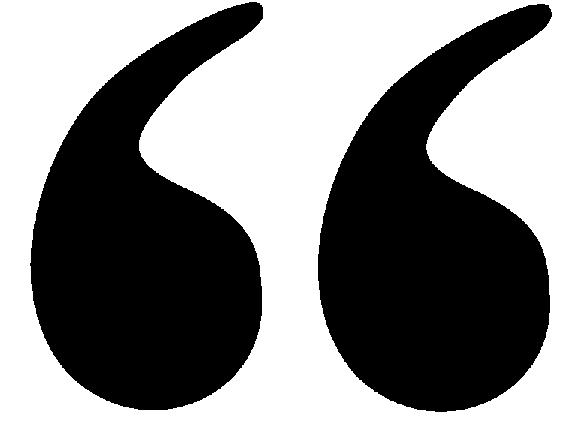
"The industry insights given by the pair are genuinely revealing"
– one discussing the latest entertainment news and one answering listener questions –the industry insights given by the pair are genuinely revealing, properly lifting the lid on the worlds of film, music, literature and journalism. The best bits, though, are Richard’s insights into the TV industry, drawing on his years as a producer and then host – particularly expect lots of behind-the-scenes details on TV quiz shows!
Out of the Broom Cupboard
This one’s a bit niche, but if
you’re up for some childhood nostalgia it’s lots of fun and genuinely fascinating too!
Hosted by Chris ‘Yonko’ Johnson, formerly of the CBBC Office, each episode features an interview with a big hitter from late 2000s/2010s children’s TV - think Iain Stirling, Ed Petrie and Hacker T Dog. Not only will listening to it remind you of childhood memories buried deep in your brain, but much like The Rest is Entertainment, it’s a really interesting delve behind-thescenes of an industry we’re so familiar with, but really know little about.
We Are History As a History student and enthusiast, there are lots of history podcasts for me to choose from, but my favourite is this one from comedian Angela Barnes and writer John O’Farrell. Each episode tackles a different topic, and it does so in a way that is fun and engaging! It doesn’t take its subject matter too lightly (this is still history done well
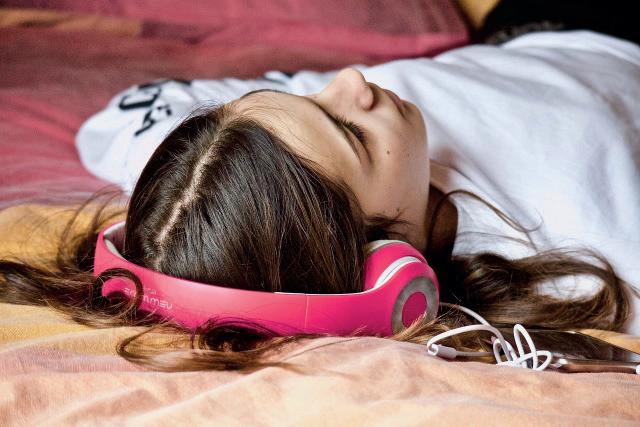
"It's clear that the hosts genuinely love exploring these topics"

and in depth), but it’s clear that the hosts genuinely love exploring these topics and that love is infectious.
A Week in Concrete A bit of shameless selfpromotion to conclude, to remind you that our very own podcast is available on Spotify (with more episodes coming soon)! We talk about all the best bits of the paper, and have a laugh along the way, so why not give it a go the next time you need something to listen to!
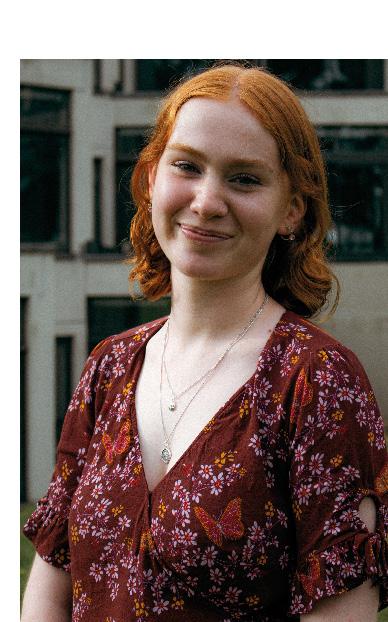
This is it, our final issue of Concrete for the year, and my last section as Travel Editor. How are we here already? Around this time last year, I applied to become the Travel Editor for Concrete whilst I was studying abroad in New Zealand. I’ve always loved travelling: the opportunities it gives you to meet people from around the world, to immerse yourself in new cultures, and experience adventures which you would never normally expect to have. I wanted to bring forward my ideas to the travel section, and encourage others to share their experiences, stories, and suggestions. I had always wanted to be involved with such a great team of writers and editors, and as both travel and writing are two things I love deeply, it felt like the perfect role for me.
And what a year it’s been! From coming up with content ideas and reading over articles, to long sessions spent staring at InDesign; I’ve loved my role as Travel Editor and all that it’s taught me. One of my favourite aspects about the role has been reading the work that the travel writers have written for my section and collecting inspiration from their travel suggestions and stories.
A personal highlight was putting together the sex issue, and getting to read all the sex and relationship travel stories that were anonymously sent in. They provided me with some great entertainment and laughs, and I hope they did for all of you reading too! Some were shocking, funny, and slightly scary, and which, thanks to all of you, made it an engaging read.
Another highlight was the Concrete archive issue, where I was able to read back over the previous issues from the last twenty years or so. I chose an article from the 2009 issue on exploring the local area around Norwich which travel writer, Ella Hamlin, responded to with their article ‘What to do on Our Doorstep.’
Reflecting on the year, I think my favourite article to write for travel was ‘Christmas in the Sun.’ I had so much fun researching for this piece, learning from my Australian friend about how they spend Christmas by the pool with a barbeque, and being able to share my own experience of Christmas in sunny Los Angeles.
So, as this last issue of the year comes around, it marks an end for me: the culmination of my role as Travel Editor and my three years at university. I’m taking so much away with me from the role. My love for travel and writing is as strong as ever, and I have lovely new friends from the Concrete team, plenty of new ideas, and more fascinating knowledge that I’ve learnt from reading the articles you all created.
Thank you to everyone that wrote for travel and took part in making this section what it has been this last year. I’ve loved being editor and it’s something I’m so proud of. I can’t wait to see what next year’s Travel Editor will create!
If you were to tell me years ago that I would’ve solo travelled to various countries, I would’ve shaken my head firmly. Firstly, why would I ever want to travel alone? And secondly, is it safe for a girl to solo travel? Well, the second question you can’t ever really guarantee, although there are precautions you should always take. But the first question? Let’s unravel that. At the age of twenty-two, I’ve been lucky enough to have travelled alone to Iceland, New Zealand, Australia, and part of Mexico. And although I might have made the journey there alone, and with the expectation of them being predominantly solo trips, I’ve never really been fully alone. In this article, I want to share my own experiences, and tips and tricks I’ve learned along the way. Plus, what it’s like making that leap with an already anxious mind badgering you about everything that could possibly go wrong.
How I started:
Often the fear to solo travel can stem from a fear of judgement and being independent. This was certainly the case for me. Fresh out of school, a breakup, and stuck in a job I hated, I desperately wanted to get away. But I didn’t really know how, or where I could go. Could I, the person that felt anxious sitting alone eating lunch on the bench outside work, really go alone to a whole new country, somewhere I didn’t know anyone, and survive, let alone enjoy it? But I desperately wanted to go, and Iceland had always been on my bucket list. Going without
an objective felt too scary, so I searched online and discovered a sustainability organisation called SEEDS; I booked a two-week course, a one-way flight, and all my holiday from work which was left for the year. Then I left. And coming from someone who thought they would never be able to do it, there I was 3 months later living my best life amongst the other volunteers who have become lifelong friends.
Your first solo trip:
So, if you’re ready to take that leap into the unknown and make your first solo trip, I have some suggestions. If you have the desire to meet other people on your journey, I’d recommend volunteering. It’s a great way to have a solo adventure, yet you are guaranteed to meet others, and it gives you projects to throw yourself into. Besides, it gives structure to your travels; knowing where you’ll be, and who you’ll be around. In terms of safety, doing the first trip can feel the most overwhelming, so choosing somewhere where you’re guaranteed to meet other people is always reassuring.
Finally, why solo travel?
It’s not always easy travelling alone. Some days I struggled to make the trip from my dorm room to a restaurant or food vendor downstairs. But most days, I was swimming in the ocean with friends I had met days before, dancing on a rooftop, climbing mountains, or sharing deep conversations with people I ended up knowing for a day, a week, or the rest of my life. I’ve made connections with people from all around the world, and these are friendships that have formed when I pushed myself to travel somewhere alone. It’s all about taking precautions, choosing an activity or place where you’ll meet people, and proving to yourself that you can do it if you want to. You may not think you are capable, but you are.
However, if you plan on travelling around a bit more then choosing the right place to stay is important. Hostels are likely where you’ll meet the most people. But choosing the right hostel can be difficult. It may sound obvious, but always read the reviews. It will tell you everything you need to know, especially if you are a female traveller. Choosing a hostel with a bar and activities, or with reviews confirming it’s sociable, is a good way of guaranteeing you’ll meet people. Through the door, and someone will be chatting away to you. There is normally the option for a female only dorm, which I always choose when travelling alone. Your safety as a female traveller is also dependent on the country; if you’re anxious, check the area you’re booking in and read online suggestions from other female travellers to help you make the best choice.
Photo: Cordelia Gulbekian Faram
As the year anniversary since I spent three weeks in South Korea approaches, I find the trip circling my thoughts frequently. I’ve wanted to write about my experiences, the culture shock, the fun, the food, the beauty and the laughter for so long, but was without adequate words to describe the wonder and joy of it all. We dressed in Hanbok, visited palaces, tried adorable cafes, watched the sun set on Han River, overate at food-markets, wore cute costumes at lotte world and stayed up until the early hours in Itaewon. It was all so breath-taking. However, I also contemplated at length how I may relay any of it without falling into ‘Westerner Discovers Asia’ terribleness. This genre of tourists I observed more frequently than not.
Korea is not always kind to its tourists, especially those who are black or brown such as myself and my friend Verity, who I travelled with. However, tourists are also often unkind to Korea. It would be untrue to claim we never experienced hostility; however, I do wonder upon how much of this was deeply inspired by the west. I often witnessed moments of disrespect, entitlement, fetishisation, stereotyping, and general lack of cultural and social consciousness in those three weeks. There is such an undeniable air of socially ingrained racism, prejudice, xenophobia and general superiority
in the temperament of some western tourists. Korea undeniably has its own biases to attend to, however this trip opened my thoughts to what travelling should and does mean in terms of this. Obviously cultural research should always be done preparatorily; but it’s become clear to me that taking time to reflect on global hierarchy and our taught societal and cultural biases is not spoken about enough.
It was disheartening and alienating at times to be treated as glaringly different. But these incidents were minor and fleeting and I didn’t allow these to jade the trip or the respect and conscientiousness I was determined to maintain. Overall, being kind is something I will always advocate for, and being respectful granted us some of my most memorable moments overseas.
Both Verity and I are by no means masters of Korean, but we made every effort to attempt communication in Korean, to express correct manners, and were always conscious of our place in another continent/country. This awarded lovely interactions as a result, despite some of our negative encounters.
My love for women and the warmth shared between women especially, grew twofold. Of all the demographics, our kindness and appreciation were
most reciprocated by the local older women, who often cooed over us and were always patient and excited to help (or feed) us.
My most fond encounter was on a very hot weekend in Busan. We had decided to do a coastal walk but couldn’t quite figure out where the trail began. After minutes of blindly walking, turning around, and condemning Naver map for its uselessness, three older women in hiking gear approached. Once I’d built up the courage, we stopped them to ask for help and were received with smiles and kind eyes before even speaking. I greeted them and apologised for my bad Korean to which I was immediately met with chuckles and a chorus of 'no no not at all!', 'give it a try!,' and gestures to go on. I showed them a photo of where we were trying to go and asked if they knew where it was. The next two minutes consisted of the three putting their heads together to ponder the location of the image, and then bickering with one another about the direction. Something about this memory warms and amuses me even now. In the end they pointed us the correct way, but not without calling us cute and giving us ginseng hard boiled sweets. I still have the sweet wrappers stuck in my journal.
The coastal trail wound up being
an arduous but gorgeous 3.2 kilometre uphill hike in blazing heat, but it was one of my favourite days of the whole trip, and I think I will forever be grateful to those women. We experienced hostility, but there were so many more moments of sweetness.
I hope travellers can be more aware of these things as they embark into the world. I miss being able to learn, and I would love to
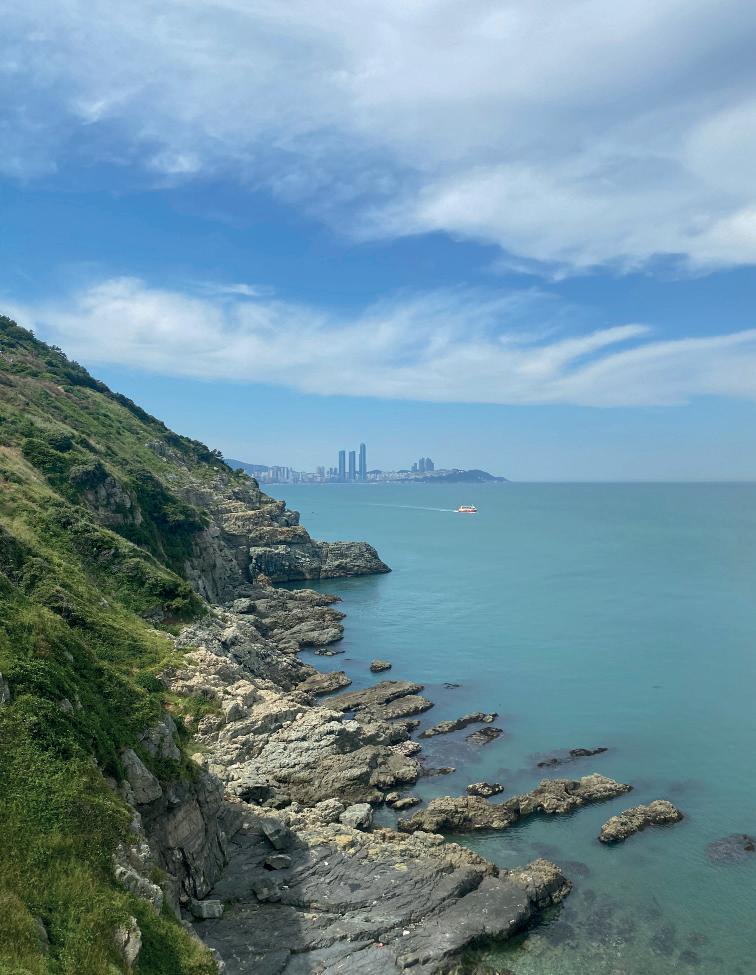
go back with my steeped knowledge now. I hope to never be a ‘westerner on exploration and conquest,’ but rather continue to project the ‘human discovering connectivity and the world.’ Of course, we were not perfect and probably still won’t be, but I wish to be consciously practising this always - even whilst at home. I wish so sincerely to encourage others to do the same, and to always look both inwards and outwards when contemplating travel.

I’m sure those of you that are avid travellers have had plenty of experience with hostels. Which, obviously, comes with a lot of good, and a lot of bad. There’s the dread of stepping into a hostel room with blood-stained sheets, hairs on your pillow, and some old man snoring in the corner. But with the best moments come meeting new people from around the world, making new friends, and spending time with people who may not normally cross your path. Some of the best adventures happen with people who you spend a day, or a week with, and never see again. But they gave you those funny moments that you will always look back on.
Speaking to a friend, I asked about her worst hostel experience. She told me it happened when she was with a group of friends in Brisbane, Australia. The hostel was
dodgy, dirty and with some questionable characters staying there. One of which was an intimidating middle-aged man who was staying in her room. One evening when she came home, she found him fast asleep in her bed. Understandably, she was too afraid to wake him! Another evening, she was brushing her teeth in the communal bathroom, and halfway through he came in and simply said ‘out.’ She left.
My best experience happened in Puerto Vallarta, Mexico.
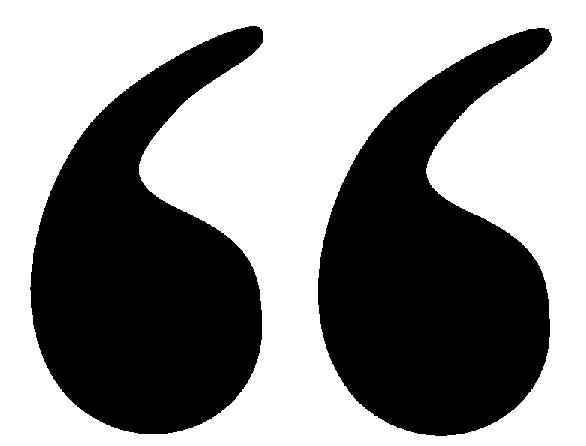
'Some of the best adventures happen with somene you spend a day with'
When I arrived at 7am after spending the night on a bus and struggling on 2 hours sleep, I was sat waiting for check-in and made instant friends: a group of people of all different ages and life experiences. There was the Swiss man who was obsessed with techno music, the Danish girls who had been backpacking for a month but still had the most stylish outfits, the schoolteacher from Texas, and many more characters. That was the ideal hostel – it had organised day trips every day to beaches and waterfalls, and a bar that opened in the evening. Everyone was sociable, and there would always be someone to sit and chat with at any time of day, even though I had arrived there alone.
There really are ups and downs to hostel life, but one thing’s for sure – they give you the best adventures and the most interesting stories.
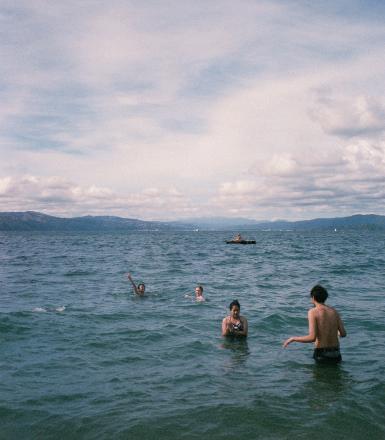
When it comes to Derby Day, it is not a topic that is taken lightly amongst the sport teams of UEA, even more so when the traditional Derby Day points system had been changed this year in favour of the University of Essex. For UEA, the goal was simple: prove that even at a scoring disadvantage we could still take home a glorious win for the tenth year in a row. With 39 sport teams competing this year, all was to play for. With Essex in their most competitive form in years, it would be a close call on the sporting front. The result? A 2728 victory to UEA.
9:00AM
On a day that gave us wind, rain and shine, it was baseball that headed to the pitches of Essex first, batting for glory. In a pre-match interview with Team Captain, Louis Wibberley training and preparations for Derby Day were happening only “a few days ago” after their nationals’ tournament. Wibberley stated: “We got to play Essex there and see what we were up against… but obviously, the whole year we’ve been going pretty hard [in training].” Wibberley and Co were confident going into the match with a competitive but fun edge. With the team eager to win, they are all aware of their love for the sport, not just the winning. “I think we’re going to win,” Louis tells me. More importantly? “We’re just going to have fun today.”
Across Essex’s campus, Women’s Dodgeball were in the midst of their first half when Ryan, a member of the 2’s Men team explained that both teams have “been training for quite a while”. With the pressure on, the team member stated that the teams were “really hoping not to let the uni down since this will be the tenth year in a row.” Although Ryan sits on the sidelines for this year, “There’s no pressure.” He proudly adds: “I love supporting my team and friends.” At half time, Falcons player Izzy Laws provided an update. “It’s going really well so far and we’re up a set to Essex, so it’s a really tough game but we’ve got this.” Laws felt confident going into the second half after garnering a sense of how the competition played, “we know how they play now so we can just calm it out. We know which players who are difficult and the ones we need to pick out.” How long does it take the team to acquire this information?
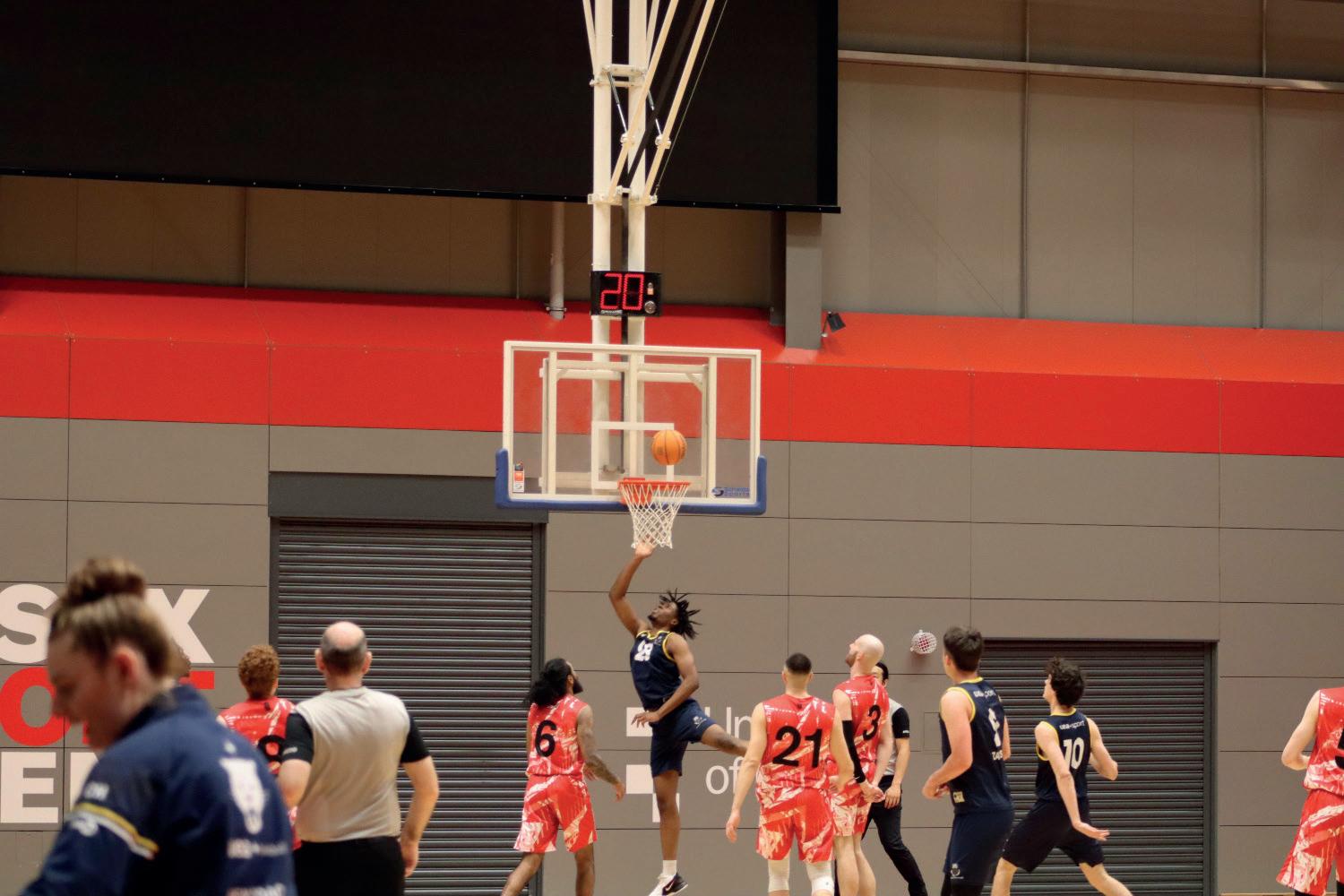
DERBY DAY SCORES
WOMEN’S DODGEBALL: 14-8 WIN BASEBALL: 12-8 WIN
WOMEN’S VOLLEYBALL: 3-0 LOST
CHEER DANCE: 1-0 WIN
CHEER STUNT: 0-1 LOST
DODGEBALL MEN: WIN
WOMEN’S RUGBY: 72-7 WIN
MEN’S FOOTBALL: 2-2 WIN (PENALTIES)
MEN’S SQUASH: 4-1 LOST
POLE FITNESS: 2-1 LOST
MEN’S VOLLEYBALL: 3-1 LOST
MEN’S BADMINTON: 6-2 WIN
WOMEN’S BADMINTON: 6-2 WIN
“Within the first two sets... it’s about halfway through the sets and you can kind of then decide and just work against them.” The Falcon’s tactics and dodgeball knowledge proved to pay off after both teams dodged to Derby Day glory.
12:00PM OVERALL SCORE: 1.5-1 TO ESSEX
It was over to the pitches for the large (and slightly tipsy) crowds of Men’s Football. With anticipations high for one of UEA and Britain’s most loved sports, spectators from UEA were rather confident in this year’s team. “UEA is going to win obviously,” says one spectator “I reckon we’re going to thrash them. We could good 5-2.” 3’s team squad member, George Boswell was confident in the team’s abilities, stating: “I think it’s going to
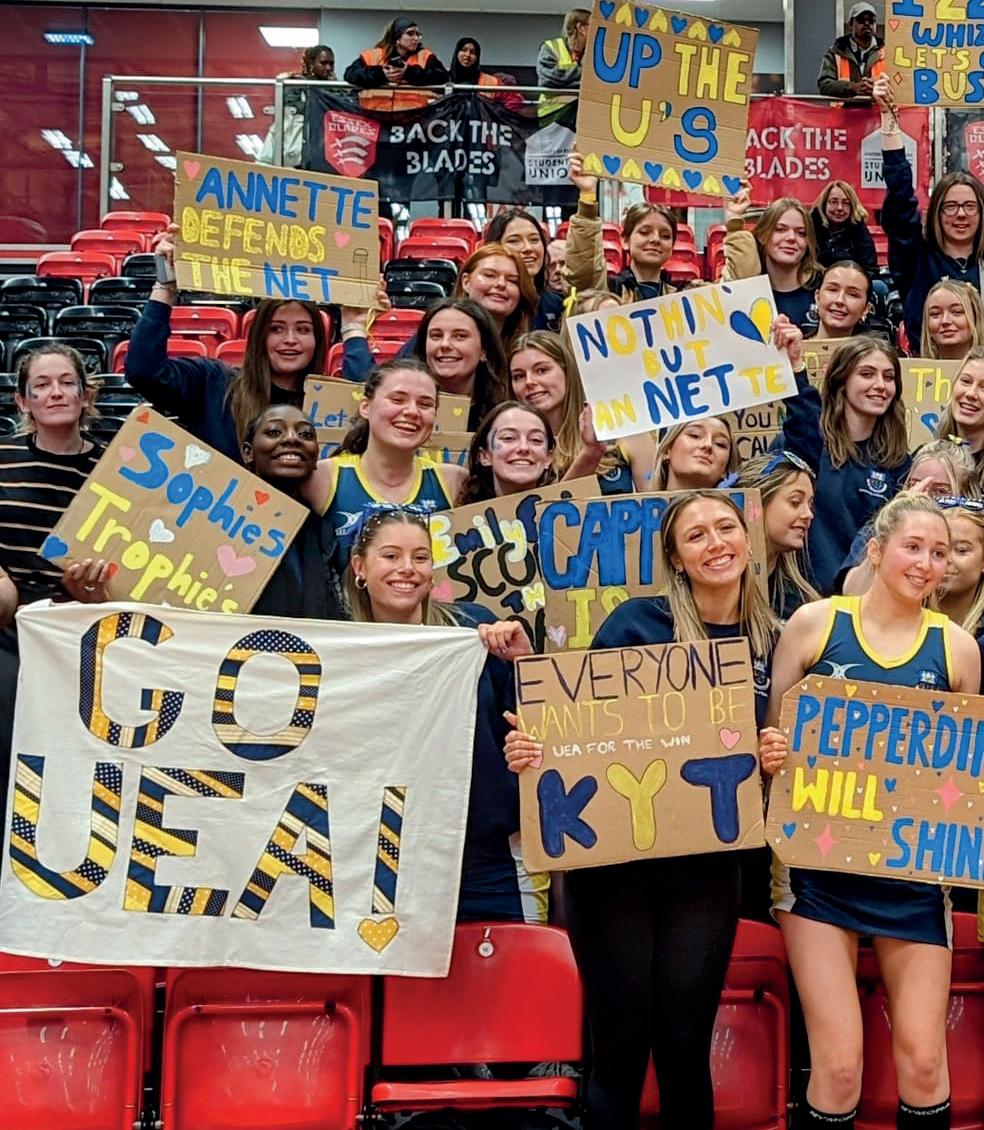
go quite well; they’ve really put some effort into the preparation because of the last few years. They’ve really put some work in and this year they’re really determined to get the win.” What has training been like? “They’ve been putting a lot of hours into training, and they’ve really focused on Derby Day because they all know how big of a day it is and how much it means to everyone that is part of the uni, not just the football club. I think they’ve put that into their work and have worked really hard.” Speaking to players Shareef Ali and Sultan Dousa, during training the team had been “focusing on ourselves and not too much about the opponent. We kind of narrowed it down to the fine details and we’re just going to go out there and really enjoy and express ourselves.” says Ali. Predictions for the match? Whilst both players have faith in the team, they’re realistic: “It’s
going to be a tough game,” Dousa states, “but we’re here for the win whatever way we get it.” After a 2-2 score by full-time, it was down to UEA to score a win in penalties with the help of Jack Stringer’s incredible goalkeeping and Lewis Oakes’s sensational winning penalty goal. After a spectacular win, striker, Jack Bowring spoke to Concrete’s News Senior Writer, Jamie Bryson. “It’s honestly one of the best days of my life- it’s a great feeling. We were composed as usual at the end there, which was really important, and we smashed it.”
Into the afternoon, all was still to play for as scores were close between UEA and Essex. It was an hour to forget for Squash and Men’s Volleyball, however there was still hope for Pole Fitness. Whilst the scores were being counted, I spoke with team members Charlotte, Abby and Ellie to discuss the competition. “Everyone did absolutely amazing,” Ellie tells me, “I’m so proud of them all!” With sports like pole fitness, training can be out of the ordinary but more importantly, gruelling. “We’ve been practicing 5-6 nights a week for the last couple of months.” Charlotte adds, “It’s exhausting.There were blisters, there were cuts, there were falls, but everyone pulled through and really smashed it today.” When it came to choreographing routines, Abby said “It’s quite hard to come up with a routine. You kind of doubt yourself, you want to think what’s best- what do the judges want? But
On their 40th anniversary of winning gold at the 1984 winter Olympics, Jayne Torvill and Christopher Dean have returned to that same sight in Sarajevo to announce,
skate program that set a new standard for world class figure skaters, achieving a perfect score of 6.0s across the board in artistic impression. This program went
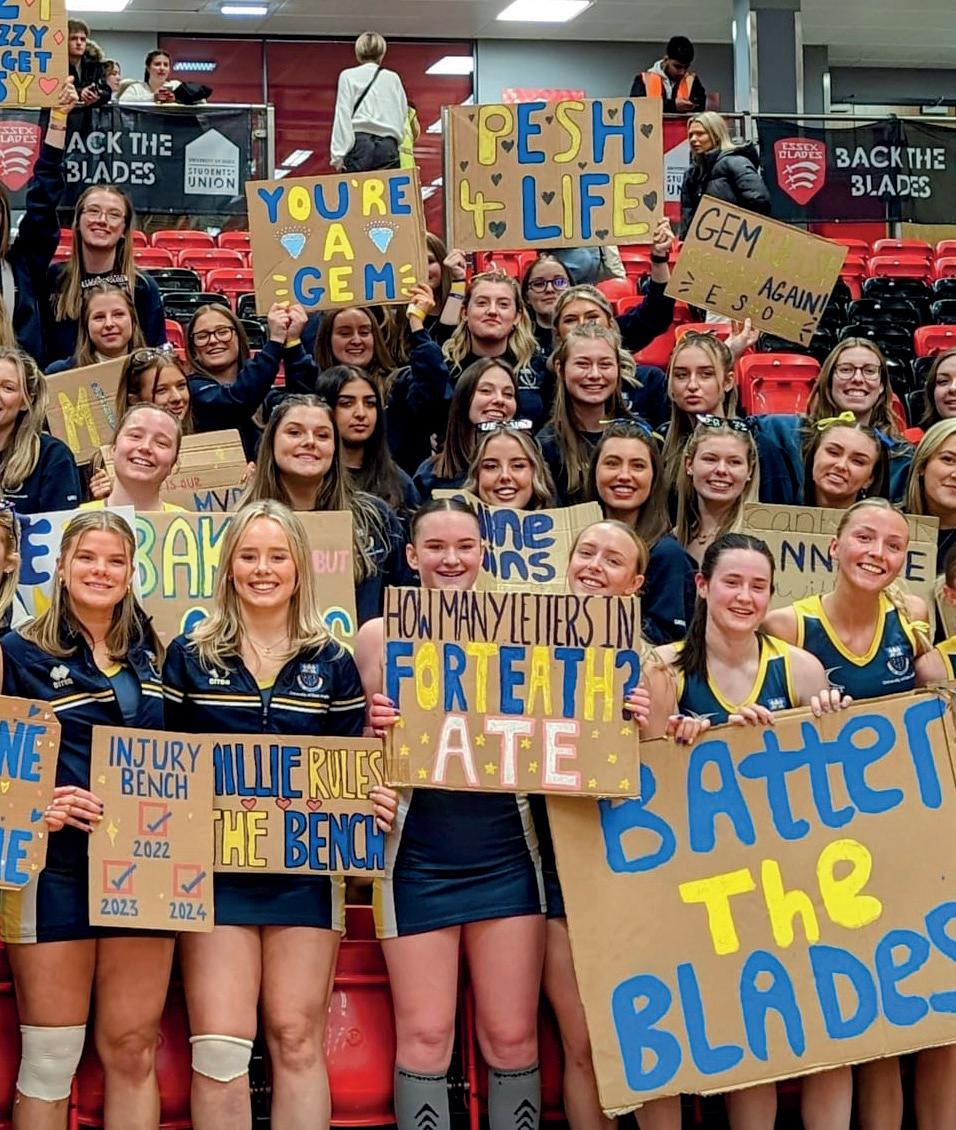
overall, you’ve just got to do what’s best for you, and it always comes out good.” As results were released Pole Fitness celebrated in 2-1 victory. However, after the scores had not been ratified, Pole Fitness’ win was sadly and undeservingly short-lived. But with the immense dedication and passion the team has, there is no doubt that next year, they’ll go for gold on UEA turf.
14:00PM OVERALL SCORE: 8.5-10 TO UEA
Tensions were high over at the sports arena for Netball, which had the crowds of UEA screaming at deafening decibels. With signs for motivation and swarms of yellow and blue, it was epitome of UEA’s support when it comes to their beloved Netball team. As the end of the match was near, roars and cheers
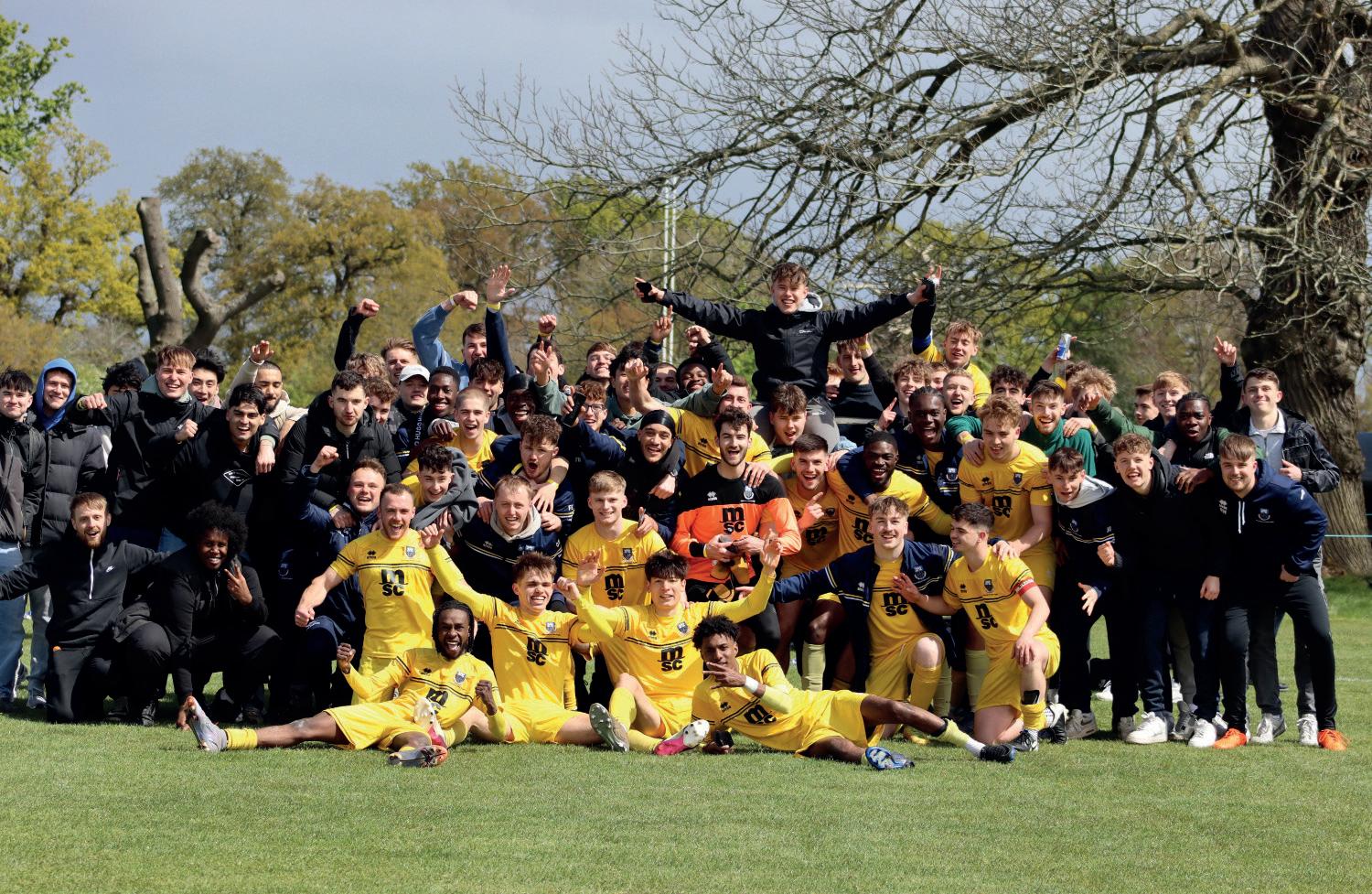
DERBY DAY SCORES
NETBALL: 45-40 WIN
WOMEN’S TENNIS: 5-1 LOST
AMERICAN FOOTBALL: 28-8 LOST
POOL:37-25 LOST
JUDO: DRAW
ATHLETICS: 77-135 WIN
MEN’S HOCKEY: 1-8 WIN
WOMEN’S HOCKEY: 1-1 WIN (PENALTIES)
MEN’S BASKETBALL: 95-82 LOST
WOMEN’S BASKETBALL: 82-52 LOST
MEN’S RUGBY:17-20 WIN
CRICKET: 53 ALL OT- 54-1 WIN
MEN’S WATERPOLO: 14-11
from the crowds only got louder as members of the team scored point after point in what can only be described as a netball masterclass.
Scoring a thrashing victory against Essex, Team Captain, Mia Pepperdine described how she was “just so, so happy.” She continued, “we all put in so much work throughout the whole season, but that work rate out there was incredible. I don’t think we’ve ever put that much work into a game. [Essex] really brought it, but we got it over the line at the end of the day!” For Vice Captain, Abbie Richardson it was an emotional win,
“I can’t stop crying!” When it came to training, the team didn’t hold back, having a “whole week of a Derby Day camp”, Pepperdine tells me. “Everyone was giving it their all and also just training throughout the whole season… we’ve always got this in the back of our minds.” Whilst the
girls played an incredible match, it’s the coaching team that suffer on the sidelines during the nail-biting matches. Netball Coach, Sophie Thomas stated “This was a really tough battle… we’ve had a couple of battles throughout the box season, so we knew it was going to be well contested. We came away with quite a big win against them last year, so we knew [Essex] would want to try and take us.” What does she have to say about her team? “I’m really, really proud of every single one of them… Also, the support from the sidelines was just as incredible.”
15:00PM OVERALL SCORE: 13-13 ALL
Heading further into the day,
the cricket team arrived in Essex preparing to hit and run for another UEA win. Speaking with player, Lewis O’Donoghue his new position of fielder for the day was a contrast from his usual bowler role, but did he feel the pressure? “No, I’ve fielded before for pretty much every game… Obviously, it’s a big day, so it should be quite fun.” With lots of preparation going on, the team had “trained all off-season, so from September pretty much straight through to March… we’ve recently gone outdoors, so I’ve done a bit off batting… I’ve also done a lot of catching so my hands are a bit bruised, but I’m still ready to go.” With the likelihood of batting for the team would O’Donoghue stay cool, calm and collected? “I’ll be bricking it, but apart from that I’m quite calm. I know I can hit a ball when I need to so it’s just about staying levelheaded.” Calm must have plagued every player on the team considering their smashing victory, leaving no doubt at all on these players abilities, or as O’Donoghue puts it: “there’s no
question about it.”
16:00PM OVERALL SCORE: 17.5-19 TO UEA
It was time to go back onto court for Men’s hockey. In a pre-match interview, I spoke with Callum Conlon who was preparing to play his first match against Essex. In preparation the lads “had a two hour session with our head coach and it was quite intense,” he tells me “we’re all a bit sore but we’re going to translate our skills we’ve learned from that into our game today.” After a fantastic match last year, which saw UEA beat Essex 14-0, Conlon felt confident going into the match given the intense circumstances. Confidence clearly didn’t falter amongst the team given their 8-0 success but definitely showed the Essex were more up to the challenge this year, giving more fight.
Speaking with Jamie Bryson, midfielder and captain, Ned Clarke said: “It was a harder game than expected, but we came through; we committed through to the end. Everyone played well even with the weather affecting us a little bit.” Although the team were not as rich in their scoring this year, Clarke is evidently proud of the team, “allaround, good performance from everyone!”
Back on UEA soil, the water polo teams were battling it our for gold in the Sportspark. For Men’s Water Polo it was a bittersweet end to Derby Day after a close battle from Essex which resulted in a 14-11 loss to UEA. Getting off to a slow start, the team managed to pick themselves up further into the match as they attempted to close the gap between themselves and Essex. Features Editor, Eleanor Radford spoke with driver Patrick Shimmin, who, despite a loss was “very proud of the boys.” He continues, “we came back from a really negative position, and saw some grit and determination, which at the end of the day is what Derby Day’s all about. I’m proud of all of us.”
All eyes were on Men’s Rugby, who played a strong match throughout, despite Essex showing strength at points. Resulting in a 17-20 victory, it was a close call but the Rugby teams victory was one to be celebrated by all. In a post-match interview with the team, Captain Tom Coker, was evidently proud of his team stating: “we trained really hard, I was never in doubt; all the way through I thought we’ve got it at the end, so well done boys.”
At Women’s hockey, UEA supporters
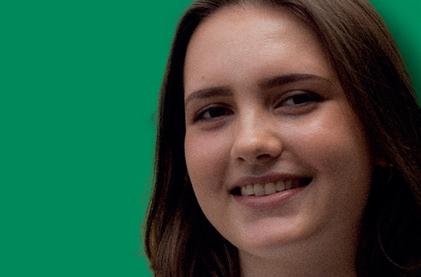
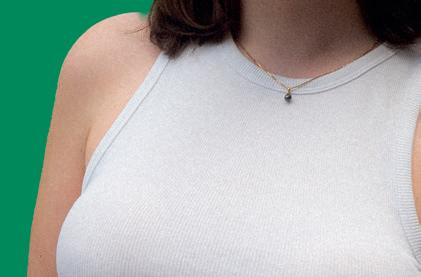


It’s hard to believe that this year is nearly over. The months just blend into

It’s hard to believe that this year is nearly over. The months just blend into one and before you know it, the year and your time in the role is over! It goes without saying that being Sports Editor has been such an amazing opportunity. Not only has it enabled me to write about the sports I am so very passionate about, but I’ve also got to learn more about others and what sport at UEA truly has to offer.
If you have been a regular reader of this section; firstly, thank you. Secondly, I hope you have enjoyed my ‘F1 Recap’ series. I’ve got to write some great articles about such an incredible sport, whilst (hopefully) engaging and encouraging a bigger fan base and interest. That’s not to say I haven’t enjoyed writing about other sports, such as Wimbledon, the Women’s World Cup and more importantly discussing the sexism within sport on campus. Every article holds a special place in my heart (and portfolio).
What I aimed for when I started this role was to provide a variety of articles to cater for everyone. Whilst it’s impossible to reach everyone's needs, I would like to think that I’ve done my best. I would say that this section has completely brought be out my comfort zone, especially during the Sex Survey edition with my article titled: “Is sex better than a workout?” Of course, if you want to find out, I suggest you go and read it!
I’ve also loved getting to put my research skills to use. After being wasted on coursework during my first year of uni, it was nice to get an upgrade and finally research things that interest me. A perfect example was for the 60th anniversary of UEA issue back in September, where I got to stalk sportrelated alumni online and find out where they are now. It’s safe to say that they’re doing alright!
If I had to pick a favourite issue, I’d pick this one. “Go out with a bang”, I told myself. Derby Day was such a special memory for me. Being able to commentate and conduct interviews, whilst providing social media content for you all was such an amazing experience and I couldn’t have done it without all the support around me from Concrete! Being able to write up the day and give credit where it’s due, (even though 3 pages just isn’t enough) is incredible to me. I hope you love it just as much as I do! Thank you!
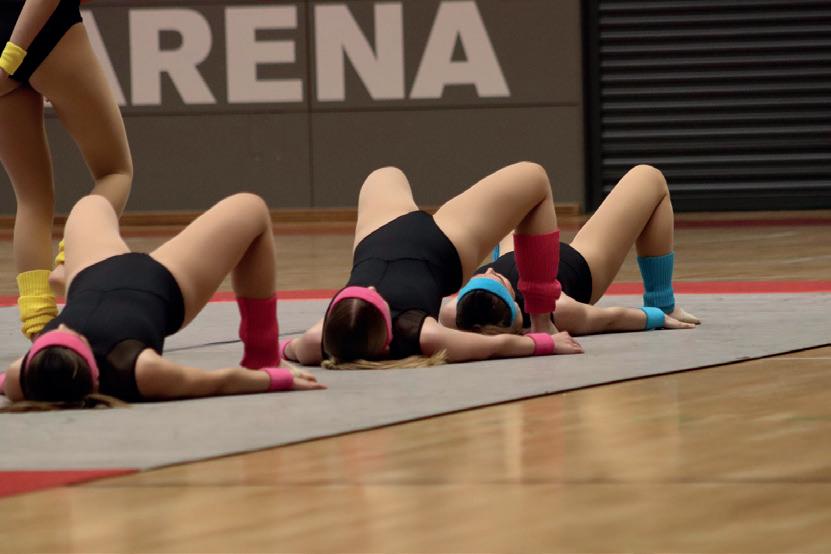
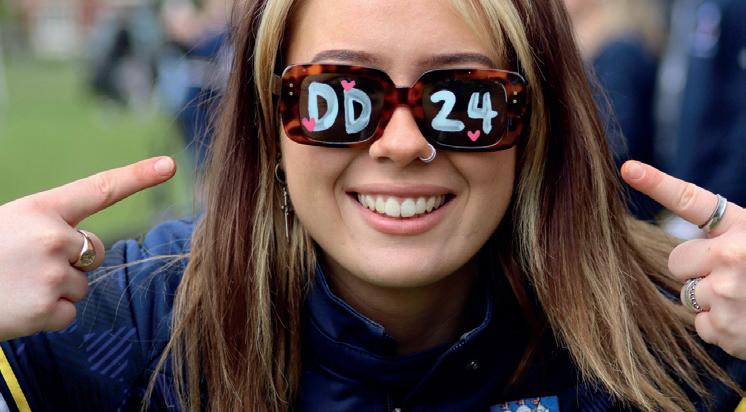
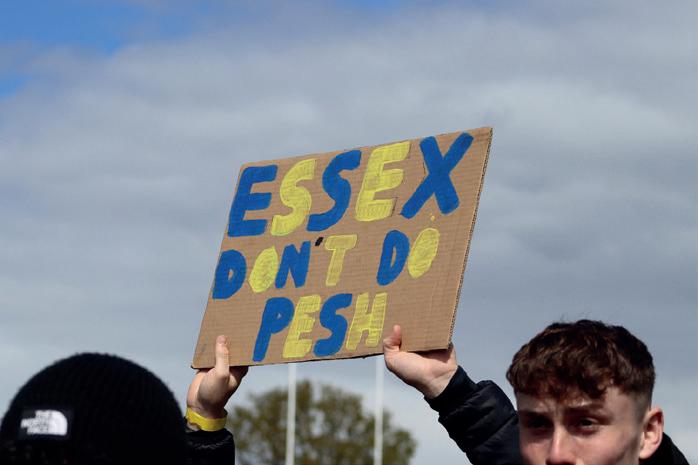
were getting ready to watch a fan favourite. In the meantime, I spoke with centre-forward Molly Brown. As a striker, there is evident pressure for someone in Molly’s shoes. What does she think? “I’m going to try my best… I’m nervous, I’m excited but I obviously feel that the pressure is on when you’re trying to score all the goals for the team.” With Molly’s predictions of a 2-1 victory, by fulltime the score was 1-1, which saw the pressure on more than ever for the girls as they went into penalty flicks. Discussing the tense moment postmatch with Brown said “it was so fun in the end, it was very, very tense but I’m so glad we won.”
Kate Bastow was “still shaken” from her stint during the penalties, whilst Niamh Lenihan was “watching from the halfway line” happily cheering away the team in the teams usual supportive mode. Brown, who was third to shoot for penalties revealed how she was “so scared… I had just watched one of the girls score before me and I just knew I needed to score.” After their superb win, the girls are collectively proud by they don’t forget to shoutout their goalkeeper, Katie McDonnell for what Bastow calls “her fabulous saves!”
17:00PM OVERALL SCORE: 19-21.5 TO UEA
To the final event of the day, it was Dance that was part of Derby Day’s final act. With UEA offering a range of dances from Ballet to Hip-Hop, it was a highly anticipated ending to the day. The pressure was on for ballet choreographer, Alice Pritchard, who, like many other members of the team, was dancing in several numbers. Did it phase her? “I’m really excited. I mean we’ve done a few competitions before so this one is a bit of fun and I don’t mind what the result is.” Alice and her ballet team won over the crowds with a new interpretation of classical ballet, inspired by the musical ‘A Chorus Line’. Discussing the routine, Pritchard stated: “I took a risk, but it seems to have paid off in the competitions, so hopefully the judges will like it.”
Much like the ballet, UEA’s HipHop routine was a crowd pleaser. However, for Ethan Coke that didn’t stop some pre-dance jitters. “I’m feeling a bit nervous, I can’t lie. But we’ve had some good experiences withe my whole dance team so hopefully we can bring it again.” Coke, who has only been doing hip-hop for three years shares his experience of joining the group as “a second home… it’s just a good experience and one of the best uni experiences”. Following an array of different dance genres, Essex put up a fight against
DERBY DAY SCORES:
WATERPOLO WOMEN: 7-19 WIN
WOMEN’S LACROSSE: 4-13 WIN MEN’S LACROSSE: 4-8 WIN WOMEN’S TABLE TENNIS: 0-5 WIN
MEN’S TABLE TENNIS: 8-9 WIN
MEN’S FENCING: 128-94 LOST
ARCHERY: 1583-1656 WIN
GOLF: 3-3 LOST (PENALTIES)
E-SPORTS: 1-3 WIN
MEN’S TENNIS: 3-3 WIN (PENALTIES)
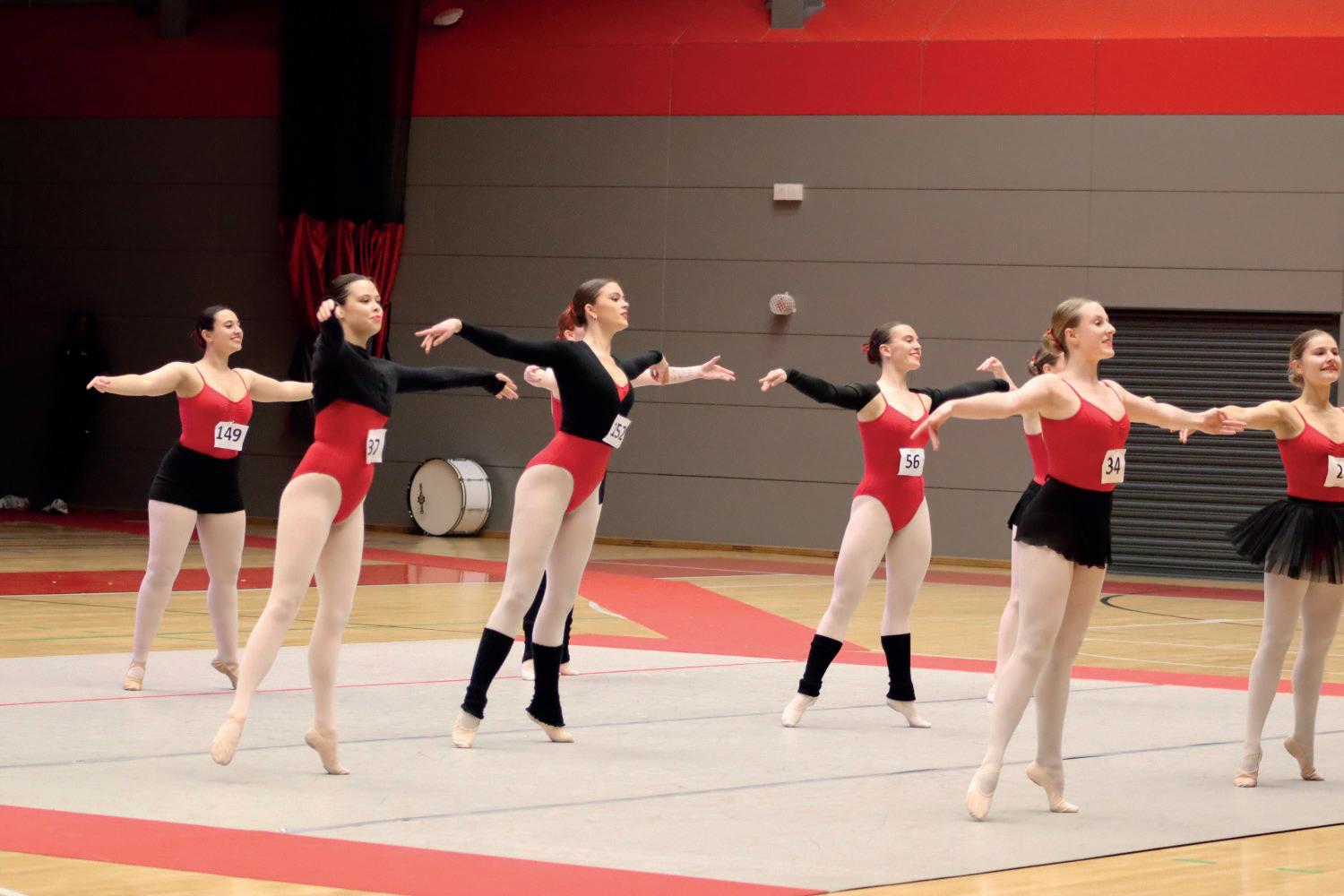
UEA, leading to a draw amongst the judges. A dance-off was inevitable, but also a fantastic opportunity to experience the array of talent within the room.
19:30PM
27-28 TO UEA
After a day of close scoring, tackling, batting and winning; for UEA it was another year of success. However, this years results, more than ever mean the world to everyone across campus as we celebrate 10 consecutive years of Derby Day victories. As an integral part of UEA life, Derby Day is a constant that displays the hard work and dedication every sports person contributes to UEA. So, from Concrete to our sports readers, sports fans and sports players, congratulations and here is to another year of Derby Day celebrations.
